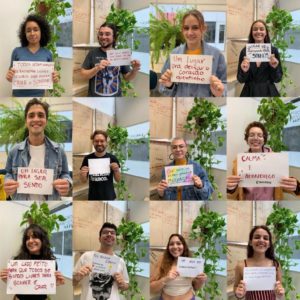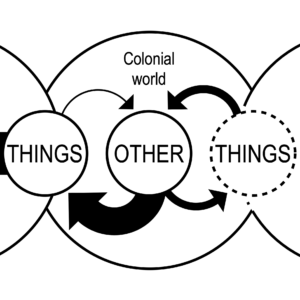-
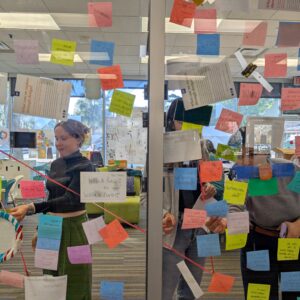
Spring 2025 (Design) Research and Practice
Research and Practice is a 45-hour course at the University of Florida that immerses Design and Visual Communications (MXD) graduate students in the practice of doing design research. The Spring 2025 cohort experienced a full-blown self-managed studio, meaning students managed their studio learning experience with instructor guidance. The instructor played the facilitator and, eventually, the complicator role. […] - Jun 6, 2025 -
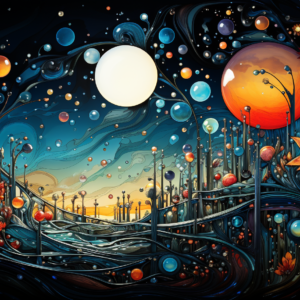 Last summer, while attending and presenting two papers at the Design Research Society conference in Boston, I joined Design As podcast host Lee Moreau for a conversation on the most important thing I saw. I right away said: “The pluriverse.” I am glad he included me in the conversation with two of the most important […] - Mar 17, 2025
Last summer, while attending and presenting two papers at the Design Research Society conference in Boston, I joined Design As podcast host Lee Moreau for a conversation on the most important thing I saw. I right away said: “The pluriverse.” I am glad he included me in the conversation with two of the most important […] - Mar 17, 2025 -
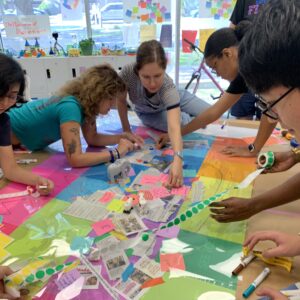 Abstract: Decolonizing design confronts the deep-rooted structures of colonialism that still shape international aesthetics, production, and trade relationships. The coloniality of making divides “thinking” in developed nations and “making” in underdeveloped ones, generating a nostalgic feeling for colonial styles thought and made for others. By fostering autonomous development and critical consciousness, decolonizing design encourages innovative […] - Feb 16, 2025
Abstract: Decolonizing design confronts the deep-rooted structures of colonialism that still shape international aesthetics, production, and trade relationships. The coloniality of making divides “thinking” in developed nations and “making” in underdeveloped ones, generating a nostalgic feeling for colonial styles thought and made for others. By fostering autonomous development and critical consciousness, decolonizing design encourages innovative […] - Feb 16, 2025 -
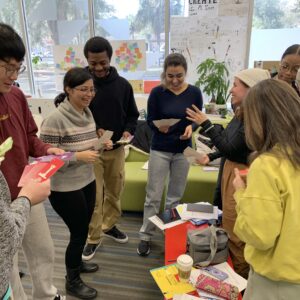
Knowledge self-management in design research
Abstract: What is the difference between knowledge and consciousness, and why does it matter for design? This lecture examines knowledge as a product of consciousness, emphasizing that while knowledge organizes what is already known, consciousness enables the creation of the new. Using examples like ChatGPT—an entity rich in knowledge but devoid of consciousness—it critiques traditional […] - Feb 9, 2025 -
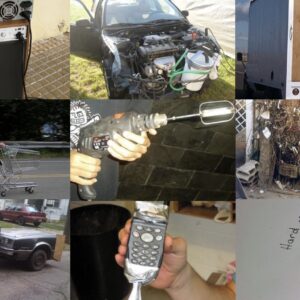 Abstract: Designing from the positionality of a user instead of the designer’s is a must for designing against oppression. By acknowledging oneself as both a user and a worker, this approach dismantles patriarchal, capitalist, and colonialists paradigms that separates managers from workers, and designers from users. Born out of self-management, this approach thrives on collaboration, […] - Jan 27, 2025
Abstract: Designing from the positionality of a user instead of the designer’s is a must for designing against oppression. By acknowledging oneself as both a user and a worker, this approach dismantles patriarchal, capitalist, and colonialists paradigms that separates managers from workers, and designers from users. Born out of self-management, this approach thrives on collaboration, […] - Jan 27, 2025 -
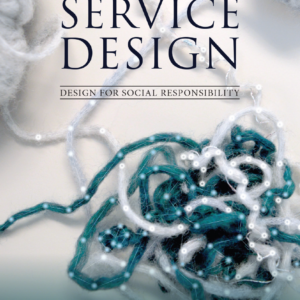
Systemic oppression in service design
Van Amstel, Frederick M. C., Serpa, Bibibiana, Secomandi, Fernando. (2025). Systemic oppression in service design. In: Suoheimo, M., Jones, P., Lee, S., Sevaldson, B (Eds). Systemic service design. Routledge. http://dx.doi.org/10.4324/9781003501039-7 - Jan 22, 2025 -
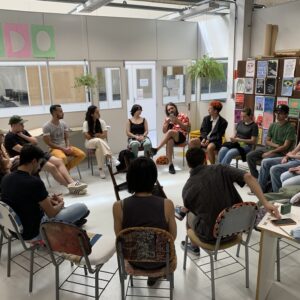 Abstract: Imagine a design studio where aspiring designers break free from traditional hierarchies and redefine what it means to be a designer. In the self-managed studio developed at UTFPR, design students learned that design can serve not just industries but social movements and the public. Inspired by critical pedagogy and radical practices like Theater of the Oppressed, […] - Jan 18, 2025
Abstract: Imagine a design studio where aspiring designers break free from traditional hierarchies and redefine what it means to be a designer. In the self-managed studio developed at UTFPR, design students learned that design can serve not just industries but social movements and the public. Inspired by critical pedagogy and radical practices like Theater of the Oppressed, […] - Jan 18, 2025 -
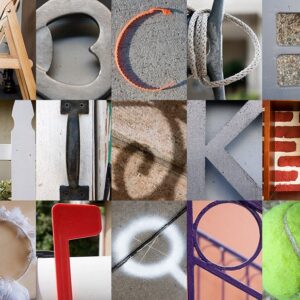
Design + Identity in Everyday Life
Quest 1 course (open to all majors), School of Art + Art History, University of Florida, 45 hours, Spring 2025 This course asks: How does design work as a tool for shaping, understanding, and communicating identity—“the fact of being who or what a person is”—in everyday life? Designed environments, objects, and interfaces allow us to shape the […] - Jan 6, 2025 -
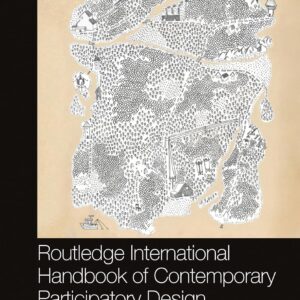
Decolonisation and Participatory Design
Winschiers-Theophilus, H., Smith, R. C., Amstel, F. V., & Botero, A. (2025). Decolonisation and Participatory Design. In Smith, R. C., Loi, D., Heike Winschiers-Theophilus, H., Huybrechts, L. & Simonsen, J. (Eds.). Routledge International Handbook of Contemporary Participatory Design. Routledge. https://doi.org/10.4324/9781003334330 - Dec 25, 2024 -
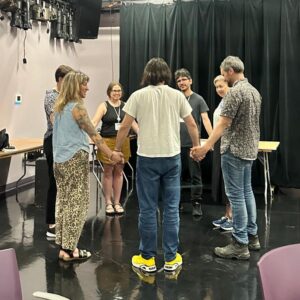
Transdisciplinarity is transgression or it is not
Throughout the 20th century, there were many attempts to make design into a single and unified discipline, similar to (or even engulfing) architecture. These efforts failed as new design disciplines kept popping up and creating distinctive professions. The possibility of disciplinary unification under elusive labels like design studies became less and less realistic as designers […] - Dec 20, 2024 -
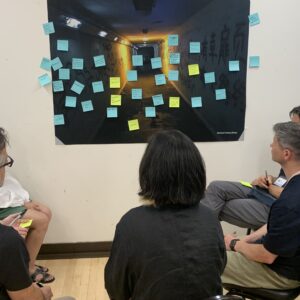 Culture circles is a participatory educational method developed by Paulo Freire to foster literacy and critical consciousness through dialogue. It emphasizes horizontal, dialogical learning, where participants and facilitators engage as equals in analyzing their lived experiences and co-creating knowledge. The term “circle” underscores this horizontal structure, symbolizing equality among participants and rejecting the top-down dynamics […] - Dec 8, 2024
Culture circles is a participatory educational method developed by Paulo Freire to foster literacy and critical consciousness through dialogue. It emphasizes horizontal, dialogical learning, where participants and facilitators engage as equals in analyzing their lived experiences and co-creating knowledge. The term “circle” underscores this horizontal structure, symbolizing equality among participants and rejecting the top-down dynamics […] - Dec 8, 2024 -
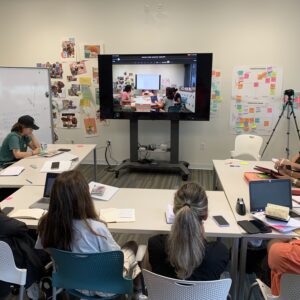
Fall 2024 (Design) Research and Practice
Research and Practice (Fall 2024) is a 45-hour course at the University of Florida that immerses Design and Visual Communications (MXD) graduate students in the practice of doing design research. Students explore qualitative, quantitative, and mixed methods through discussions, case studies, writing, fieldwork, and presentations. My approach emphasizes participatory and critical learning, treating students as design researchers rather than […] - Dec 4, 2024 -
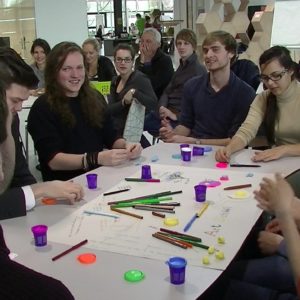 Democratic design experiments, as explored by Binder, Brandt, Ehn, and Halse (2015), are participatory processes that bridge the boundaries between “parliamentary” and “laboratory” practices. These experiments bring people together to explore and discuss the controversies around a thing or a matter of concern. Instead of aiming at creating products or solving problems, these experiments turn design […] - Dec 4, 2024
Democratic design experiments, as explored by Binder, Brandt, Ehn, and Halse (2015), are participatory processes that bridge the boundaries between “parliamentary” and “laboratory” practices. These experiments bring people together to explore and discuss the controversies around a thing or a matter of concern. Instead of aiming at creating products or solving problems, these experiments turn design […] - Dec 4, 2024 -
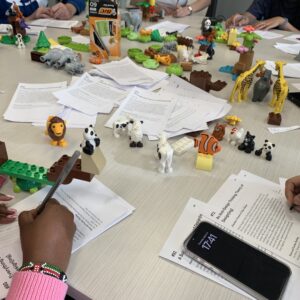 Graduate Seminar (Spring 2024) is a 45-hour course at the University of Florida that prepares Design and Visual Communications (MXD) graduate students to critically engage with contemporary design research methodologies. The seminar is organized as an expansive learning journey that begins with the barebones of becoming a design researcher and ends with joining a design research community. The […] - Dec 3, 2024
Graduate Seminar (Spring 2024) is a 45-hour course at the University of Florida that prepares Design and Visual Communications (MXD) graduate students to critically engage with contemporary design research methodologies. The seminar is organized as an expansive learning journey that begins with the barebones of becoming a design researcher and ends with joining a design research community. The […] - Dec 3, 2024 -

Systemic userism in service design
Abstract: Userism in service design manifests as a group of humans reduced to be users (and only users) of a given service. Userism prevents these people from cocreating, codesigning, and coproducing services. Transnational (often colonialist) digital services are a case in point; however, userism also appears in analog interfaces. The systemic aspect of userism refers […] - Nov 25, 2024 -

Subverting generative AI by playing surrealist games
Abstract: Generative AI is flooding the internet with hyperreal images. Can surrealism save us from hyperrealism? Surrealism uncovers the reality that nobody wants to face: the surreal, i.e., the real that is more real than the real. This lecture introduces Pixelated Dreams, a surrealist game that uncovers the reality of generative AI. Instead of turning […] - Nov 10, 2024 -
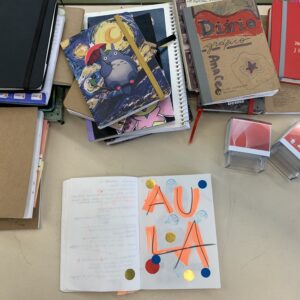 Visual diary (a.k.a. visual journal) is a method in which a constant, regular, and self-determined creative activity is proposed for the daily life of its bearer. The activity may include recording ideas, creating concepts, taking notes, or playing. The main difference to a personal diary is that here, the owner doesn’t just record what has […] - Nov 6, 2024
Visual diary (a.k.a. visual journal) is a method in which a constant, regular, and self-determined creative activity is proposed for the daily life of its bearer. The activity may include recording ideas, creating concepts, taking notes, or playing. The main difference to a personal diary is that here, the owner doesn’t just record what has […] - Nov 6, 2024 -
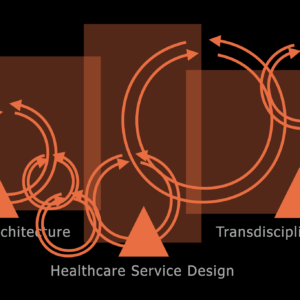
The life cycle of a design research object
Abstract: What is design research? How does it differ from design activity? Consider this distinction regarding the activity’s object. Design activity may be an object of design research in research about design. Yet, in research through design, the research object is shared with another activity, for example, another science. Drawing from personal experiences in hospital […] - Nov 4, 2024 -
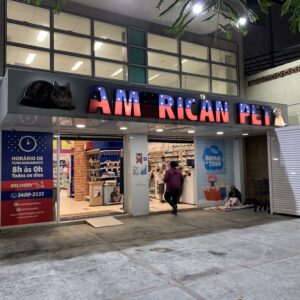
Social Design at the Brink: Hopes and Fears
Fonseca Braga, M., M. C. van Amstel, F., and Perez, D. (2024) Social Design at the Brink: Hopes and Fears., in Gray, C., Hekkert, P ., Forlano, L., Ciuccarelli, P . (eds.), DRS2024: Boston, 23–28 June, Boston, USA. https://doi.org/10.21606/drs.2024.1538 - Oct 26, 2024 -
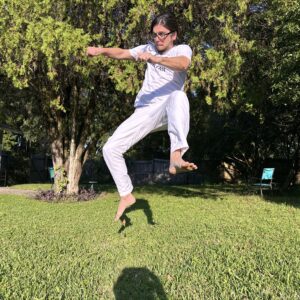
Designing for emergent performances
Abstract: Design used to be about expert designers designing complex entities for society. Now, increasingly, design is about designing emergent performances among designers and usigners. Emergent performances include experiences, interactions, and any emergent relationships that unfold through time. Since they cannot be controlled, design can better learn from performance arts how to provide minimal improvisational […] - Oct 22, 2024 -
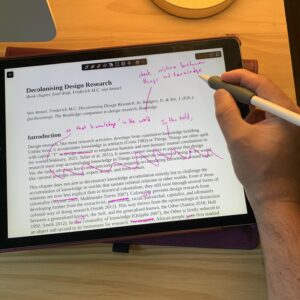
Tips and tricks for writing design research
Why are design researchers not so excited about reading and writing if that is an integral aspect of doing design research? In my view, designers are typically exploited in so miany ways, primarily for cheap labor. They are not expected to say anything, just give form to previously defined functions and content. In a critical […] - Sep 23, 2024 -
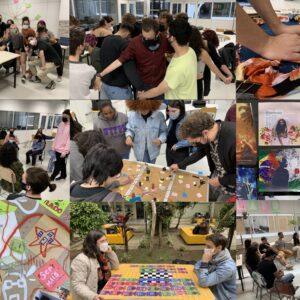
Designing for Liberation experimental research program
Abstract: Designing for Liberation is a design research program investigating the possibility of designing for the liberation of historically oppressed people. Instead of designing for privilege like modern design typically has done, we seek designing for rights. Everyone has the right to have good designs, even if that design is a self-built Favela. This lecture […] - Sep 17, 2024 -
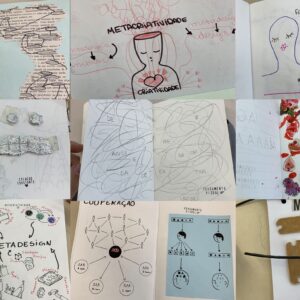 Abstract: This lecture explores the expansive power of visual thinking as a tool for design research, problem-solving, and knowledge creation. Moving beyond common sense definitions of visual thinking, it focuses on how images try to capture partially known contradictions in codesign, moving the design process forward into changing reality. Lecture recorded in the Fall 2024 […] - Sep 6, 2024
Abstract: This lecture explores the expansive power of visual thinking as a tool for design research, problem-solving, and knowledge creation. Moving beyond common sense definitions of visual thinking, it focuses on how images try to capture partially known contradictions in codesign, moving the design process forward into changing reality. Lecture recorded in the Fall 2024 […] - Sep 6, 2024 -

Reading the world with Lego Serious Play
Abstract: “Reading the world precedes reading the word,” says Paulo Freire, the Brazilian educator who revolutionized adult education. Instead of requiring students to read words without understanding their meanings, his educational approach, critical pedagogy, begins with reading the world through generative images that depict everyday scenes. Lego Serious Play can play a similar role in […] - Aug 28, 2024 -
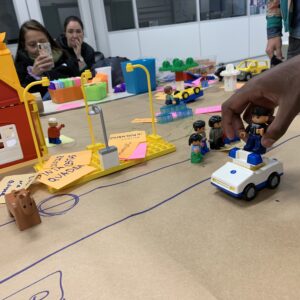
Community Design with Lego Serious Play
Every community practices the design of itself, as Arturo Escobar has pointed out in his book Designs for the Pluriverse. How can this metadesign process be more creative, imaginative, and conscious? Lego Serious Play can support Community Design in a few ways: materialize abstract values that a community wants to express, map community assets, anchor […] - Jul 20, 2024 -
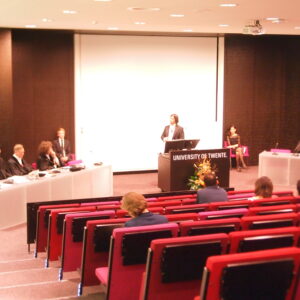
Existential crises in doctoral design research
Every doctoral design researcher must go through the existential crisis of not knowing for a while if that daunting research actually makes any difference in the world. After going through that and reflecting on my trajectory, I concluded that this crisis, and many others that doctoral design researchers face, is not personal or individual. These […] - Jun 21, 2024 -
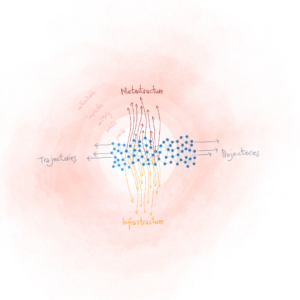
Prospective design: A structuralist design aesthetic founded on relational qualities
Botter, F., van Amstel, F. M. C., Mazzarotto Filho, M., and Guimarães, C. (2024) Prospective design: A structuralist design aesthetic founded on relational qualities, in Gray, C., Hekkert, P., Forlano, L., Ciuccarelli, P. (eds.), DRS2024: Boston, 23–28 June, Boston, USA. https://doi.org/10.21606/drs.2024.883 - Jun 17, 2024 -
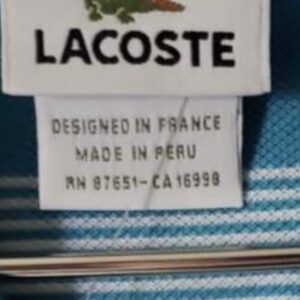
Anticolonial prospects for overcoming the coloniality of making in design
Saito, C., Freese Gonzatto, R., and van Amstel, F. (2024) Anticolonial prospects for overcoming the coloniality of making in design, in Gray, C., Hekkert, P., Forlano, L., Ciuccarelli, P. (eds.), DRS2024: Boston, 23–28 June, Boston, USA. https://doi.org/10.21606/drs.2024.255 - Jun 17, 2024 -
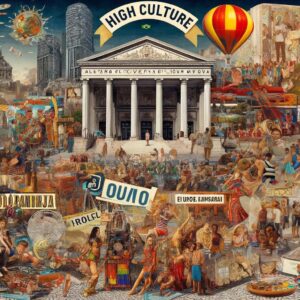 Some months ago, I joined Lee Moreau, Lesley-Ann Noel, and Alicia Cheng in the inaugural episodes of the Design As podcast (Apple/Spotify), connected to the Design Observer project. We discussed Design as Culture. The conversation was so rich and dense that we split it into two parts. Luckily, Design Observer published a transcript for those […] - Jun 1, 2024
Some months ago, I joined Lee Moreau, Lesley-Ann Noel, and Alicia Cheng in the inaugural episodes of the Design As podcast (Apple/Spotify), connected to the Design Observer project. We discussed Design as Culture. The conversation was so rich and dense that we split it into two parts. Luckily, Design Observer published a transcript for those […] - Jun 1, 2024 -
 From the outset of their design education at UTFPR, Alanis Louise de Mello Zukowski and Maria Vitória Ribeiro Kosake were struck by a disconnect between their aspirations and the education they received. The design curriculum seemed narrowly focused on technical skills and market demands, leaving little room for critical reflection or social engagement. As they […] - May 9, 2024
From the outset of their design education at UTFPR, Alanis Louise de Mello Zukowski and Maria Vitória Ribeiro Kosake were struck by a disconnect between their aspirations and the education they received. The design curriculum seemed narrowly focused on technical skills and market demands, leaving little room for critical reflection or social engagement. As they […] - May 9, 2024 -
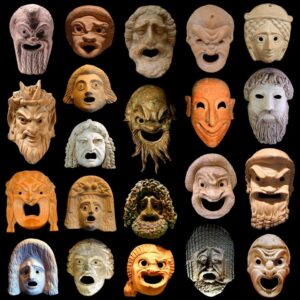
Decolonizing Service Design Ethics and Aesthetics
Abstract: Service Design draws heavily from ancient Greek Ethics and Aesthetics, beginning with the foundational theater metaphor that separates frontstage from backstage. When Service Design engages with cultures that do not cultivate the Greek canon, the decolonization challenge comes to the fore. People who work to decolonize their cultures wonder whether Service Design will remain […] - Apr 15, 2024 -
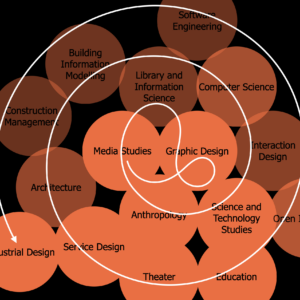
Why I became a transdisciplinary design researcher
Abstract: Twenty years of designing and researching across several disciplines led me to realize that transdisciplinarity is not the same as combining knowledge from different fields. Transdisciplinary design research means moving from one discipline to another to follow an expansive object. This is a reflection I presented as my first lecture in the MXD program […] - Apr 2, 2024 -
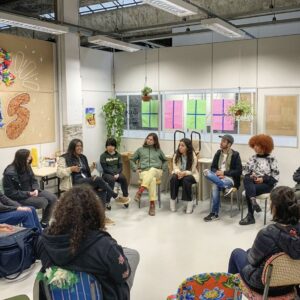
Learning design as a human right: the beginnings of a design lab founded on critical pedagogy
Bizotto dos Santos, W.B., Mazzarotto, M.,and Van Amstel, F. (2023). Learning design as a human right: the beginnings of a design lab founded on critical pedagogy, in Derek Jones, Naz Borekci, Violeta Clemente, James Corazzo, Nicole Lotz, Liv Merete Nielsen, Lesley-Ann Noel (eds.), The 7th International Conference for Design Education Researchers, 29 November – 1 December […] - Mar 18, 2024 -
 Udoewa, V., Gutiérrez Borrero, A., Noel, L., Ruiz, A., Borchway, N.K., Lodaya, A.,and VAN AMSTEL, F.M.(2023) When Is the Pluriverse?, in Derek Jones, Naz Borekci, Violeta Clemente, James Corazzo, Nicole Lotz, Liv Merete Nielsen, Lesley-Ann Noel (eds.), The 7th International Conference for Design Education Researchers, 29 November – 1 December 2023, London, United Kingdom. https://doi.org/10.21606/drslxd.2023.109 - Mar 14, 2024
Udoewa, V., Gutiérrez Borrero, A., Noel, L., Ruiz, A., Borchway, N.K., Lodaya, A.,and VAN AMSTEL, F.M.(2023) When Is the Pluriverse?, in Derek Jones, Naz Borekci, Violeta Clemente, James Corazzo, Nicole Lotz, Liv Merete Nielsen, Lesley-Ann Noel (eds.), The 7th International Conference for Design Education Researchers, 29 November – 1 December 2023, London, United Kingdom. https://doi.org/10.21606/drslxd.2023.109 - Mar 14, 2024 -
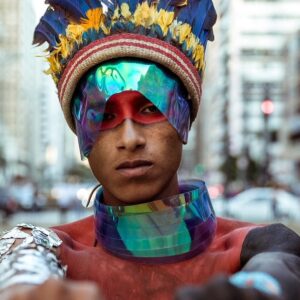 Abstract: The never-fulfilling promise of a bright future has justified modern colonization for centuries. Modern design follows suit. Modern design has been exported to former colonies as a neutral, non-political way of making. The futures that came with them have contribute to maintain the coloniality of making, nurturing a sense of nostalgia and a conservative […] - Feb 28, 2024
Abstract: The never-fulfilling promise of a bright future has justified modern colonization for centuries. Modern design follows suit. Modern design has been exported to former colonies as a neutral, non-political way of making. The futures that came with them have contribute to maintain the coloniality of making, nurturing a sense of nostalgia and a conservative […] - Feb 28, 2024 -
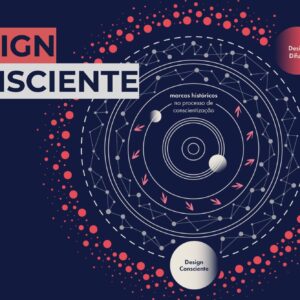
Conscious design for a women shelter (2023)
Camila Kutiski heard from a friend about a shelter service for victims of domestic violence in her neighborhood. She visited the non-profit running the service and decided to support the people involved with her Graphic Design final work at UTFPR. The first thing she did was to understand the existing design activities in the non-profit. […] - Feb 24, 2024 -

The Materials of Service Design: Human bodies
Secomandi, F., & van Amstel, F. (2023). Human bodies. In: Blonkvist, J; Clatworthy, S; Holmlid, S. The Materials of Service Design (pp. 167-172). Edward Elgar Publishing. https://doi.org/10.4337/9781802203301.00032 - Feb 5, 2024 -
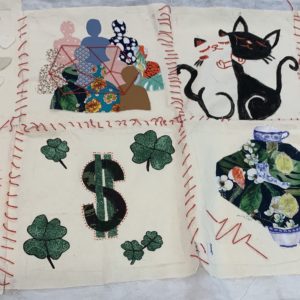
Prospecting relational qualities in Design Education through quilt therapy
Guimarães, C., & Van Amstel, F. M. C. (2024). Prospectando qualidades relacionais na educação em Design através da quilt-terapia. Arcos Design, 17(1), 190–211. https://doi.org/10.12957/arcosdesign.2024.77916 - Jan 10, 2024 -

Prospecting anti-colonial qualities in Design Education
Mazzarotto. M., Van Amstel. F. M. C., Serpa, B. O., Silva, S. B. (2023). Prospecting anti-colonial qualities in Design Education. V!RUS Journal, 26, 135-143. Translated from Portuguese by Giovana Blitzkow Scucato dos Santos. Available at: http://vnomads.eastus.cloudapp.azure.com/ojs/index.php/virus/article/view/833 - Dec 26, 2023 -
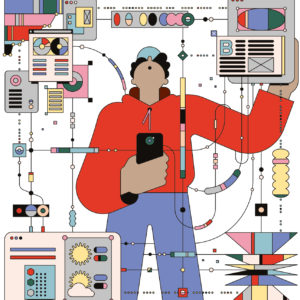
Dancing Algorhythms in the Theater of the Techno-Oppressed
Presentation in the College of the Arts Fall 2023 Research Lightning Round, University of Florida. Abstract: Algorhythms are computer instructions that display recurrent logic and rhythm. They are introduced in our everyday life through digital technologies to structure our activities. The Theater of the Techno-Oppressed is a research program aimed at exploring the role of […] - Dec 14, 2023 -

Wicked rituals of contemporary design thinking
Saito, Carmem; Van Amstel, Frederick M. C.; Serpa, Bibiana O; Angelon, Rafaela. Wicked rituals of contemporary design thinking. (2023). In: Mehl, Johanna and Höfler, Carolin (Eds). Attending [to] Futures. Matters of Politics in Design Education, Research, Practice. Hamburg: Adocs. p. 150-161. http://doi.org/10.53198/9783943253726 - Dec 11, 2023 -
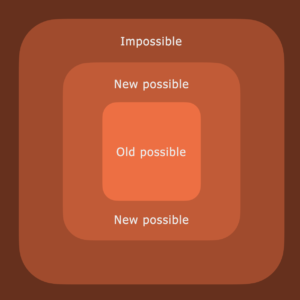
Designing between the possible and the impossible
Abstract: The possible is relatively constituted to what is meant to be impossible. Whenever someone does something formerly known to be impossible, the possible expands, and a new frontier appears. Expanding this box is not trivial, though. Contradictions binding the dos and don’ts demotivate any naïve attempt to design at the border. Expansive design is […] - Oct 21, 2023 -
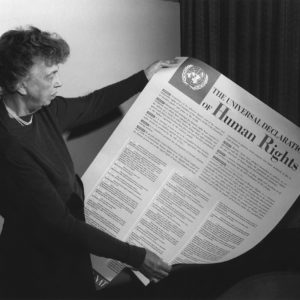
The Struggle for Human Rights in Design
Abstract: Human Rights are rarely discussed in Design, possibly because regulatory work is mostly seen as a border topic or outside the scope. However, Human Rights are not just about Law but also about Ethics, Morality, and Politics, growing topics in the design research agenda. The struggle for Human Rights is now a big thing […] - Oct 10, 2023 -
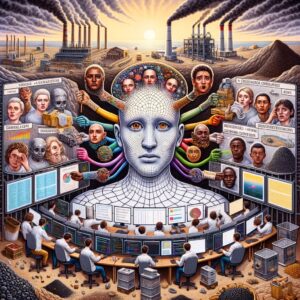 Since the first time I interacted with AI image generation systems, I became puzzled by the possibility of an AI self-portrait. For many months, I could only get silly robots in front of a blank canvas. Soon after DALL·E became integrated into ChatGPT, I got the idea of asking for a surrealist self-portrait. The resulting […] - Oct 1, 2023
Since the first time I interacted with AI image generation systems, I became puzzled by the possibility of an AI self-portrait. For many months, I could only get silly robots in front of a blank canvas. Soon after DALL·E became integrated into ChatGPT, I got the idea of asking for a surrealist self-portrait. The resulting […] - Oct 1, 2023 -
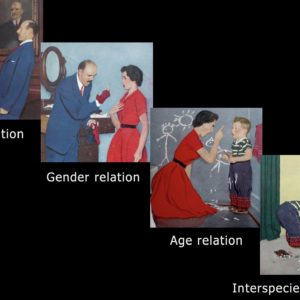
Cascading oppression in design
Abstract: Oppression is not an isolated phenomenon that involves two persons: the oppressor and the oppressed. Oppression is a systemic contradiction that affects many persons, spreading through cascading effects and twisted positionalities. One oppression relation can affect another, generating the possibility for the same person to be both an oppressor and an oppressed in different […] - Sep 27, 2023 -
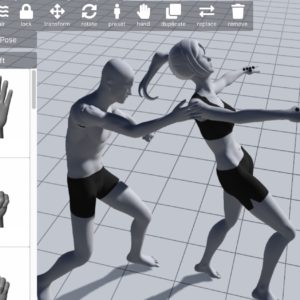 Image theater is the most popular and accessible Theater of the Oppressed technique. It consists of telling an oppression story through a static body image. The spect-actors stand in postures that, altogether, suggest an oppressive action. There is no voice, explanation or movement in the image, although that can be added later for further inquiries […] - Sep 20, 2023
Image theater is the most popular and accessible Theater of the Oppressed technique. It consists of telling an oppression story through a static body image. The spect-actors stand in postures that, altogether, suggest an oppressive action. There is no voice, explanation or movement in the image, although that can be added later for further inquiries […] - Sep 20, 2023 -

Pluriversal Futures for Design Education
Noel, L.-A., Ruiz, A., van Amstel, F. M. C., Udoewa, V., Verma, N., Botchway, N. K., Lodaya, A., & Agrawal, S. (2023). Pluriversal Futures for Design Education. She Ji: The Journal of Design, Economics, and Innovation (Vol. 9, Issue 2, pp. 179–196). https://doi.org/10.1016/j.sheji.2023.04.002 - Sep 3, 2023 -
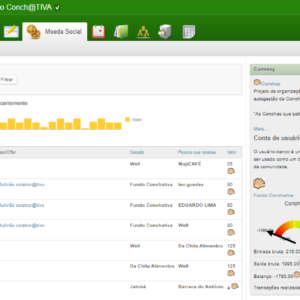
Service design as a practice of freedom in collaborative cultural producers
de Siqueira, I. L. M., & van Amstel, F. M. (2023). Service design as a practice of freedom in collaborative cultural producers. In Proceedings of the Service Design and Innovation Conference (ServDes 2023), Rio de Janeiro. pp. 315-325. https://doi.org/10.3384/ecp203016 - Jul 18, 2023 -
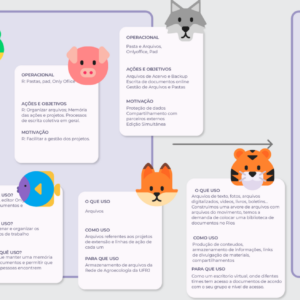 The final work of Isabela Luiza Molin de Siqueira in her Bachelor of Design studies at UTFPR is the redesign of a Computer Supported Collaborative Work platform called Rios, a tool used by social movements and non-profit organizations in Brazil that builds on their past experience of using Corais. Rios is developed by Eita Coop. […] - Jul 11, 2023
The final work of Isabela Luiza Molin de Siqueira in her Bachelor of Design studies at UTFPR is the redesign of a Computer Supported Collaborative Work platform called Rios, a tool used by social movements and non-profit organizations in Brazil that builds on their past experience of using Corais. Rios is developed by Eita Coop. […] - Jul 11, 2023 -

El hacer como quehacer: notas para un diseño libre
En América Latina, la colonialidad del hacer nos impide valorar lo que ya hemos hecho y, a partir de ahí, hacer lo que hay que hacer. A menudo preferimos importar el diseño europeo en lugar de construir sobre gambiarras y otras formas populares de diseño. En Brasil, sin embargo, la resistencia a la colonialidad del […] - Apr 21, 2023 -
 Amy Ogan, Frederick van Amstel, Gabriela Molina León, Juan Fernando Maestre, Kristin Williams, Nicola J Bidwell, Pedro Reynolds-Cuéllar, Saiph Savage, Sushil Oswal, and Vishal Sharma. 2023. Why Do We Need to Learn about Citational Practices? Recognizing Knowledge Production from the Global Souths and Beyond. XRDS 29, 3 (Spring 2023), 12–17. https://doi.org/10.1145/3589256 - Apr 13, 2023
Amy Ogan, Frederick van Amstel, Gabriela Molina León, Juan Fernando Maestre, Kristin Williams, Nicola J Bidwell, Pedro Reynolds-Cuéllar, Saiph Savage, Sushil Oswal, and Vishal Sharma. 2023. Why Do We Need to Learn about Citational Practices? Recognizing Knowledge Production from the Global Souths and Beyond. XRDS 29, 3 (Spring 2023), 12–17. https://doi.org/10.1145/3589256 - Apr 13, 2023 -
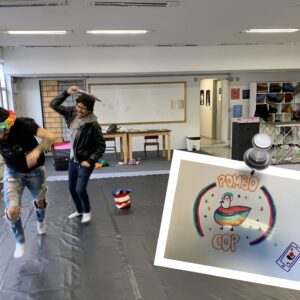
Making work visible in the theater of service design
Capitalist service design is grounded on a theater metaphor that guides service designers to make work invisible, away from customer scrutiny and public accountability. In this way, service design contributes to hiding the extreme work exploitation that digital service workers undergo, generating a situation where workers can only reclaim their visibility through striking. If service […] - Feb 24, 2023 -
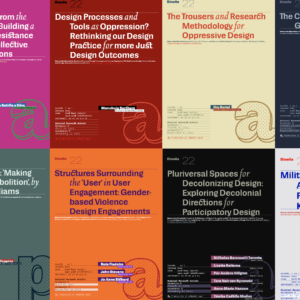
Design, Oppression, and Liberation 2
Van Amstel, F. M. C., Gonzatto, R. F., & Noel, L.-A. (2023). Introduction to Diseña 22: Design, Oppression, and Liberation (2nd issue). Diseña, (22), Intro. https://doi.org/10.7764/disena.22.Intro - Feb 13, 2023 -
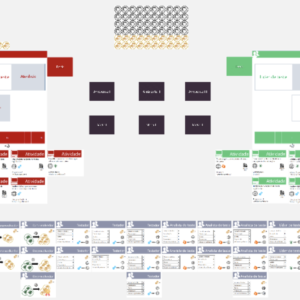
ProTesters: a board game for teaching the testing process
Moreira, G. G., Reinehr, S., Malucelli, A., & Van Amstel, F. (2022, November). ProTesters: a board game for teaching the testing process. In Proceedings of the XXI Brazilian Symposium on Software Quality (SBQS ’22), November 07–10, 2022, Curitiba, Brazil. ACM, New York, NY, USA, 9 pages. https://doi.org/10.1145/3571473.3571503 - Jan 28, 2023 -
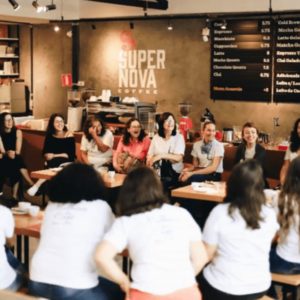
Matters of Care in forming feminist design coalitions
Eleutério, Rafaella P.; Van Amstel, Frederick, M. C. (2023). Questões de cuidado na formação de uma coalizão de design feminista [Matters of Care in forming feminist design coalitions]. Arcos Design, 16(1). https://doi.org/10.12957/arcosdesign.2023.71093 - Jan 12, 2023 -
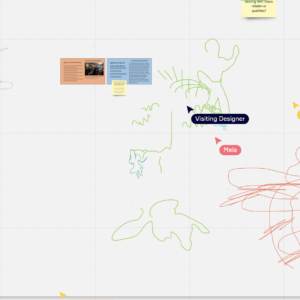
Assembling collective bodies to take care of the commons
As part of the Participatory Design Conference 2022, I joined P.D. Commoners, a self-managed collective of researchers working at the boundaries of commoning and designing, to organize a workshop on Relationality, Commoning, and Designing. After the workshop, we recorded a podcast with Joanna Sad-Sulonen and Giacomo Poderi to summarize and share the workshop experience with […] - Jan 11, 2023 -

Special Topics in Technology & Society: Álvaro Vieira Pinto
45 hours – Graduate Program in Technology and Society – PPGTE, UTFPR. Cotaught with: Short summary: This course encompasses an introduction to the work of Álvaro Vieira Pinto, taking into account some of the themes, currents of thought, and its development, with a special interest in Science, Technology and Society Studies. This course not only […] - Dec 26, 2022 -
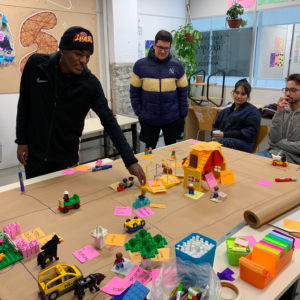
Iguaçú III community center (2022)
Uniperifa collective joined Laboratory of Design against Oppression students to plan community actions in Condomínio Residencial Parque Iguaçú III. This slum-upgrade urban project relocated people near the city center to the city outskirts, leaving people disconnected from the city and having little sense of community. We identified several sustainability issues that required increasing this sense […] - Dec 13, 2022 -
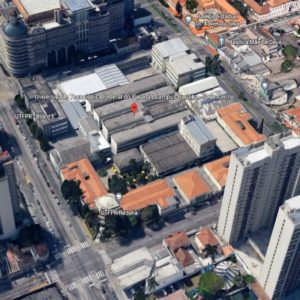
UTFPR Curitiba master plan (2022)
UTFPR Curitiba formed its first Campus Master Plan Committee in 2022 to plan its future spatial developments. The campus has three localities. Seeking for broader adoption, the committee adopted a participatory design approach. The entire university community will be invited to collaborate in the planning process through various activities and methodologies. The goal is to […] - Dec 13, 2022 -
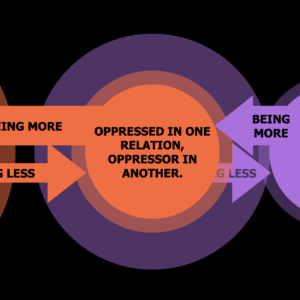
Can designers change systemic oppression?
This talk was part of the Royal College of Art Symposium on Design and Systemic Change, organized by Product Design students. Abstract: Oppression is systemic as it is reproduced across social groups, generating complex patterns of domination. What can designers do to stop such reproduction? First, they need to acknowledge their role on the oppressor’s […] - Dec 12, 2022 -
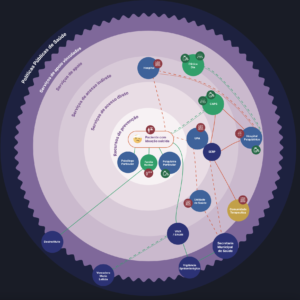
Service integration for suicide prevention (2022)
Service integration for suicide prevention is the final work of Barbra Eliza da Silva in her Graphic Design degree at UTFPR. Barbra heard from some friends who work in mental health services that the number of suicide attempts was skyrocketing in Curitiba. She decided to put her final work to help. The project aimed at facilitating […] - Dec 7, 2022 -
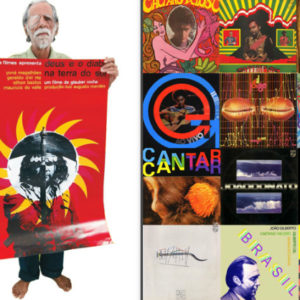
The coloniality of making and its resistance in Brazil
Summary: The coloniality of making refers to international relations of production that overvalue intellectual labor in developed countries and undervalue manual labor in underdeveloped countries. Design discipline plays a crucial role in maintaining the coloniality of making, establishing hierarchies between modes of designing existence in the world. The colonized populations’ ways of designing are considered […] - Dec 3, 2022 -
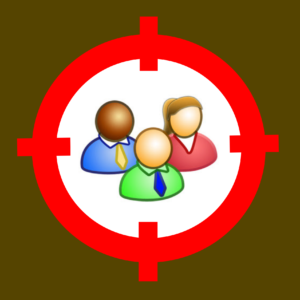
Humanity is not a (shopping) center you can design for
Donald Norman is about to release a book on Humanity-Centered Design. I don’t plan to buy or read it, but I can’t ignore it. As I previously wrote, shifting what is at the center of design does little to reconfigure the contradictions cultivated by centralization, which is a core spatial practice of patriarchy, capitalism, and […] - Oct 23, 2022 -
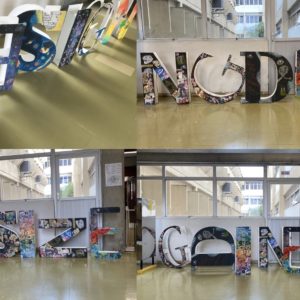
Diseño y la colonialidad del hacer
Keynote addressed at the 13th International Conferences on Design History and Studies, Universidad de Bogotá Jorge Tadeo Lozano, October 2022. Resumen: La colonialidad del hacer se refiere a las relaciones internacionales de producción que sobrevaloran el trabajo intelectual en los países desarrollados y subvaloran el trabajo manual en los países subdesarrollados. Al garantizar esta desigualdad […] - Oct 23, 2022 -
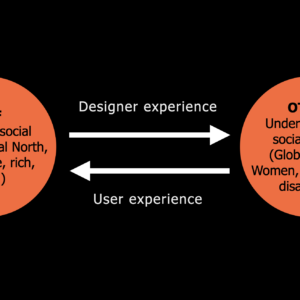
Ethics and aesthetics of the experience designed for the Other
Keynote addressed in the A & D Visitors Series, School of Art & Design, University of Illinois Urbana-Champaign, October 2022. This is a provocative talk on design ethics that might spark a debate with the audience. The presenter will show well-known design products and processes that promise to deliver unique experiences. His critique of these […] - Oct 9, 2022 -
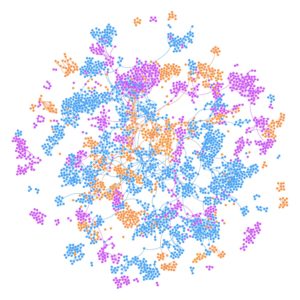
Breaking down oppressive citation patterns
Citation patterns are not natural, neutral, emergent, or involuntary. They reveal the collective biases of a scientific community. Women, Black, Indigenous, disabled, part-time researchers, and people from the Global South receive fewer citations for their works unless the pattern is actively counteracted. There are a few of these authors in most scientific communities because they […] - Oct 8, 2022 -
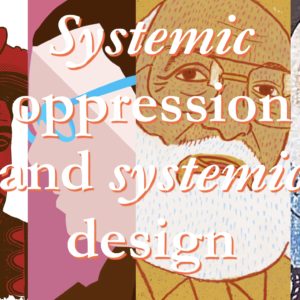
Systemic oppression and systemic design
Abstract: Álvaro Vieira Pinto, Paulo Freire, and Augusto Boal developed a systemic perspective on oppression based on Frantz Fanon. This perspective frames oppression as a contradiction that builds tension between different social groups. Systemic design can reproduce this contradiction unconsciously or let the oppressed see and recognize their oppressor. This short commentary pushes for a […] - Oct 4, 2022 -
 Visionary photomontage are grayscale photos from the past edited to look like a scene from the future with a colorful technology of the future. Image sources are found in online repositories and archives, requiring to imagine possibilities of localized futuring. It is possible to use image generation AI such as DALL-E and Craiyon to produce […] - Sep 29, 2022
Visionary photomontage are grayscale photos from the past edited to look like a scene from the future with a colorful technology of the future. Image sources are found in online repositories and archives, requiring to imagine possibilities of localized futuring. It is possible to use image generation AI such as DALL-E and Craiyon to produce […] - Sep 29, 2022 -
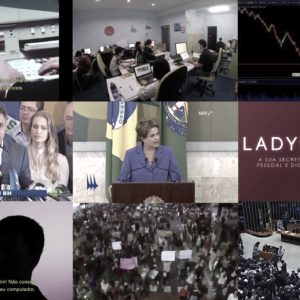
Speculative design mockumentary
A mockumentary movie about a future reality that could have happened in the past if a controversial technology of the present had become available in that past. Design mockumentaries aim at creating a reality that did not exist, does not exist, but that may exist sooner or later in the near future, as any design […] - Sep 29, 2022 -
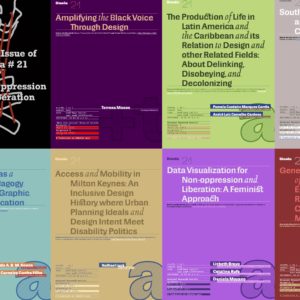
Design, Oppression, and Liberation
Van Amstel, F. M. C, Noel, L.-A., & Gonzatto, R. F. (2022). Design, Oppression, and Liberation. Diseña, (21), Intro. https://doi.org/10.7764/disena.21.Intro - Sep 13, 2022 -
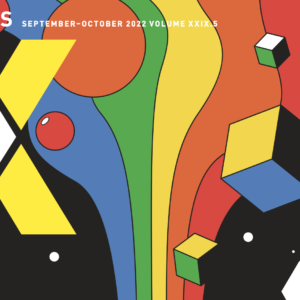
Assets and community engagement: a roundtable with HCI researchers and designers
Lucy Pei, Edgard David Rincón Quijano, Angela D. R. Smith, Reem Talhouk, and Frederick van Amstel. 2022. Assets and community engagement: a roundtable with HCI researchers and designers. interactions 29, 5 (September – October 2022), 44–47. https://doi.org/10.1145/3554975 - Sep 2, 2022 -
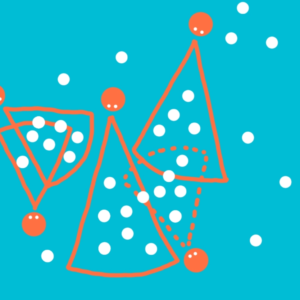
Prospective Design: a research agenda for design interventions in sociotechnical systems
Van Amstel, Frederick M.C.; Botter, Fernanda; Guimarães, Cayley. Design Prospectivo: uma agenda de pesquisa para intervenção projetual em sistemas sociotécnicos. Estudos em Design, 30 (2), 2022. DOI: https://doi.org/10.35522/eed.v30i2.1458 - Aug 30, 2022 -
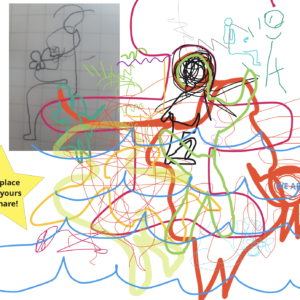
Relationality, commoning, and designing
Poderi, G., Marttila, S. M., Saad-Sulonen, J., Van Amstel, F. M., Teli, M., Tonolli, L., D’Andrea, V. & Botero, A. (2022, August). Relationality, commoning, and designing. In Proceedings of the Participatory Design Conference 2022-Volume 2 (pp. 255-258). https://doi.org/10.1145/3537797.3537879 - Aug 24, 2022 -
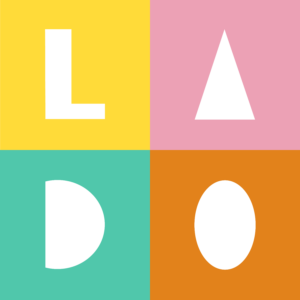
Laboratory of Design against Oppression (LADO)
The Laboratory of Design Against Oppressions (LADO) is an open, horizontal space for critical education, scientific research, and transformative action at UTFPR. Attentive to the objectives of student involvement and participation in university outreach, LADO is organized through self-management, including collective decision-making and distribution of power among the several working groups created to coordinate each of […] - Aug 11, 2022 -
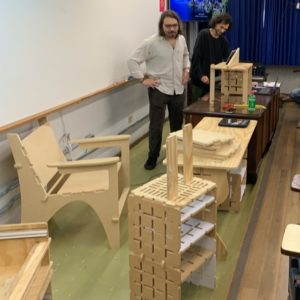 SURU’BA (“good thing” in Tupi and “orgy” in Portuguese) is the final work of João Conrado Dembiski and João Victor Tarran in their Bachelor in Design at UTFPR. Inspired by anarchist and decolonial thinking, the duo designed a modular open-source furniture system that could be cheaply produced in Curitiba, the locality of their studies. Their […] - Jul 30, 2022
SURU’BA (“good thing” in Tupi and “orgy” in Portuguese) is the final work of João Conrado Dembiski and João Victor Tarran in their Bachelor in Design at UTFPR. Inspired by anarchist and decolonial thinking, the duo designed a modular open-source furniture system that could be cheaply produced in Curitiba, the locality of their studies. Their […] - Jul 30, 2022 -
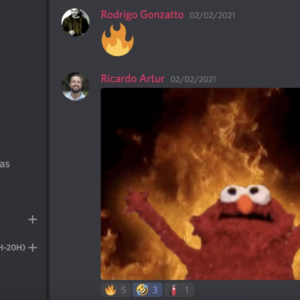
Weaving design as a practice of freedom: Critical pedagogy in an insurgent network
Serpa, B.O., van Amstel, F.M., Mazzarotto, M., Carvalho, R.A., Gonzatto, R.F., Batista e Silva, S., and da Silva Menezes, Y. (2022) Weaving design as a practice of freedom: Critical pedagogy in an insurgent network, in Lockton, D., Lenzi, S., Hekkert, P., Oak, A., Sádaba, J., Lloyd, P. (eds.), DRS2022: Bilbao, 25 June – 3 July, Bilbao, […] - Jun 21, 2022 -
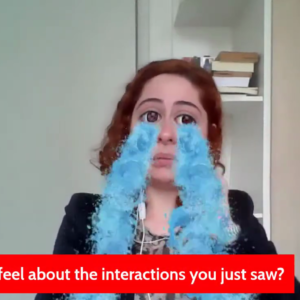
Coming to terms with design wickedness: Reflections from a forum theatre on design thinking
Saito, C., Serpa, B.O., Angelon, R., and van Amstel, F. (2022) Coming to terms with design wickedness: Reflections from a forum theatre on design thinking, in Lockton, D., Lenzi, S., Hekkert, P., Oak, A., Sádaba, J., Lloyd, P. (eds.), DRS2022: Bilbao, 25 June – 3 July, Bilbao, Spain. https://doi.org/10.21606/drs.2022.668 - Jun 21, 2022 -
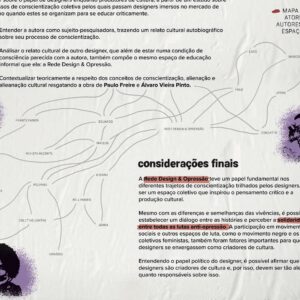
Designers as cultural producers (2022)
Polyana de Andrade Tavares, a graphic design student at LADO, embarked on a profound journey of collective conscientization that transformed her understanding of her role as a cultural producer. Her final work reflects on this transformative process through an autoethnographic lens, weaving together personal experiences and broader socio-cultural contexts. Initially, Polyana approached her study with […] - Jun 1, 2022 -

Diseño Ontológico Crítico y la Contradicción de la Opresión
Ponencia a lo simposio de Arqueodiseño, X Reunión de Teoría Arqueológica de América del Sur TAAS Oaxaca 2022. Abstracto: Álvaro Vieira Pinto, Paulo Freire y Augusto Boal desarrollaron una teoría dialéctica de la existencia que permite comprender el papel de la opresión en el proyecto del ser. El oprimido no puede proyectarse a sí mismo […] - May 7, 2022 -
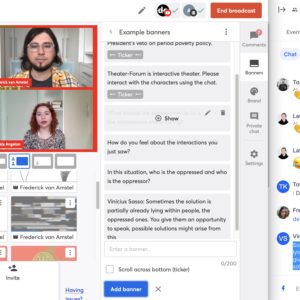 Forum Theater provides a forum to test and rehearse actions and responses to oppressive situations in the form of an interactive play. What differentiates Forum Theatre from other interactive theatre techniques is precisely its political goal of human and social emancipation. By stimulating the spectator’s effective intervention, Forum Theatre seeks to provoke reflections about the forms of […] - Apr 17, 2022
Forum Theater provides a forum to test and rehearse actions and responses to oppressive situations in the form of an interactive play. What differentiates Forum Theatre from other interactive theatre techniques is precisely its political goal of human and social emancipation. By stimulating the spectator’s effective intervention, Forum Theatre seeks to provoke reflections about the forms of […] - Apr 17, 2022 -

Decolonizing Design Research towards the Pluriverse
Keynote, VIII Sustainable Design Symposium, UFPR, 2021. Abstract: Design research has historical roots in the modernity project, which violently subsumes non-modern diverse cultures into colonized monocultures. Design research is also well-grounded in the development discourse that justifies unequal exchanges between nations, institutions, and communities. However, design research is also a realm of dispute where critical […] - Apr 13, 2022 -
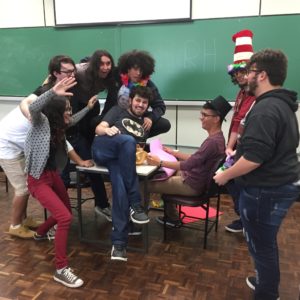
Design pedagogy, the body, and solidarity in designing commons
Podcast interview for the Commoning Design & Designing Commons show, an initiative from the Interest Group Commons and Commoning of the IT University of Copenhagen. Listen to the podcast on Anchor. Transcript Speaker Key – GP Giacomo Poderi; FA Frederick van Amstel; SM Sanna-Maria Marttila; JS Joanna Saad-Sulonen Speaker Text GP Okay, welcome to this first […] - Apr 12, 2022 -
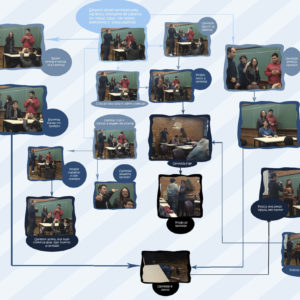 Reaction to computer-mediated oppression can be rehearsed in a Theater of the Techno-Oppressed session. When using the image theater technique, it is possible to capture every attempt to react to oppression and compare their efficacy in still photos. In addition to the spect-actors who stage the play, two persons are required: a photographer and a […] - Mar 27, 2022
Reaction to computer-mediated oppression can be rehearsed in a Theater of the Techno-Oppressed session. When using the image theater technique, it is possible to capture every attempt to react to oppression and compare their efficacy in still photos. In addition to the spect-actors who stage the play, two persons are required: a photographer and a […] - Mar 27, 2022 -
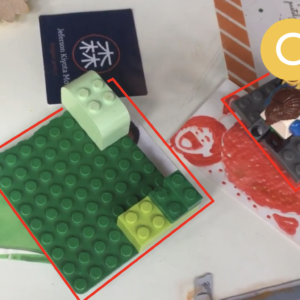 Storyblocks is the tridimensional equivalent of the storyboard: it represents the basic elements of a scene sequence in a film or animation movie through building blocks. After building the scene and materializing its components, the framing and camera movements can be experimented with using still photos or improvised videos. It is a fast low-fidelity technique […] - Mar 26, 2022
Storyblocks is the tridimensional equivalent of the storyboard: it represents the basic elements of a scene sequence in a film or animation movie through building blocks. After building the scene and materializing its components, the framing and camera movements can be experimented with using still photos or improvised videos. It is a fast low-fidelity technique […] - Mar 26, 2022 -

User oppression in human-computer interaction: a dialectical-existential perspective
Gonzatto, R.F. and Van Amstel, F.M.C. (2022), “User oppression in human-computer interaction: a dialectical-existential perspective”, Aslib Journal of Information Management, Vol. 74 No. 5, pp. 758-781. https://doi.org/10.1108/AJIM-08-2021-0233 - Mar 13, 2022 -
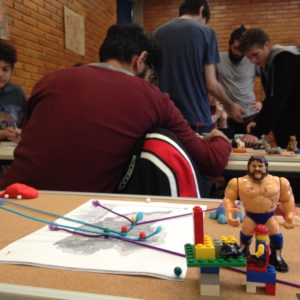 Map with a conceptual diagram of the ecosystem of interactions between people and objects in a specified past or future. These objects were firstly used as protagonists of an object theater (Buur & Friis, 2015) and, second, mapped to local ecology. Teachers provided a corkwood plate, pins, strings, Lego building blocks, and a printed map […] - Feb 3, 2022
Map with a conceptual diagram of the ecosystem of interactions between people and objects in a specified past or future. These objects were firstly used as protagonists of an object theater (Buur & Friis, 2015) and, second, mapped to local ecology. Teachers provided a corkwood plate, pins, strings, Lego building blocks, and a printed map […] - Feb 3, 2022 -
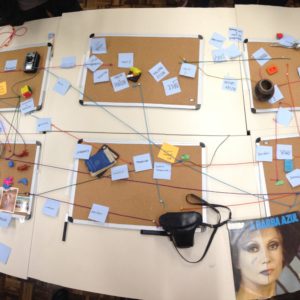 Showing an object that has endured many decades and telling the human stories that this object was part of, highlighting its relation to other objects, places, and people. The relations are drawn with strings tied to pins over several corkwood plates, which effectively grouped the objects. Can be used in Speculative Design to ground future […] - Feb 3, 2022
Showing an object that has endured many decades and telling the human stories that this object was part of, highlighting its relation to other objects, places, and people. The relations are drawn with strings tied to pins over several corkwood plates, which effectively grouped the objects. Can be used in Speculative Design to ground future […] - Feb 3, 2022 -
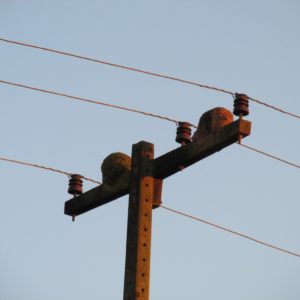 It is a photograph taken from an existing technology that makes it look like a futuristic technology, usually taken with a macro lens and close framing not to be entirely recognizable. Can be used as a quick Speculative Design exercise or as a Cultural Probe. It is useful for engaging people who are not used […] - Feb 3, 2022
It is a photograph taken from an existing technology that makes it look like a futuristic technology, usually taken with a macro lens and close framing not to be entirely recognizable. Can be used as a quick Speculative Design exercise or as a Cultural Probe. It is useful for engaging people who are not used […] - Feb 3, 2022 -
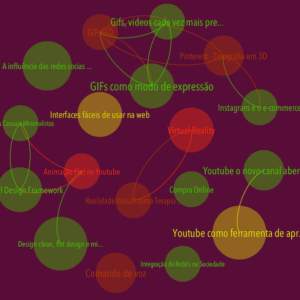 Graphs are mathematical structures that relate a sequence of entities that share an abstract connection between them. The connections are expressed through edges (links) that connect the related entities (nodes). Graphs are mostly used to find similar entities of different kinds through common linking patterns. Graph visualization is a common technique employed by social network […] - Feb 2, 2022
Graphs are mathematical structures that relate a sequence of entities that share an abstract connection between them. The connections are expressed through edges (links) that connect the related entities (nodes). Graphs are mostly used to find similar entities of different kinds through common linking patterns. Graph visualization is a common technique employed by social network […] - Feb 2, 2022 -
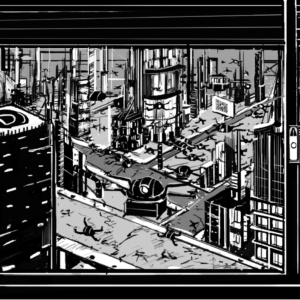 Rhythmanalysis is a method developed by Henri Lefebvre and Catherine Regulier to grasp the rhythms of everyday life in urban space through an embodied and historicized approach. The researcher uses her/his/their body to feel, sense, and join the rhythm while developing critical consciousness of its historical origins. Speculative Rhythmanalysis Speculative Rhythmanalysis is a derived method […] - Feb 2, 2022
Rhythmanalysis is a method developed by Henri Lefebvre and Catherine Regulier to grasp the rhythms of everyday life in urban space through an embodied and historicized approach. The researcher uses her/his/their body to feel, sense, and join the rhythm while developing critical consciousness of its historical origins. Speculative Rhythmanalysis Speculative Rhythmanalysis is a derived method […] - Feb 2, 2022 -
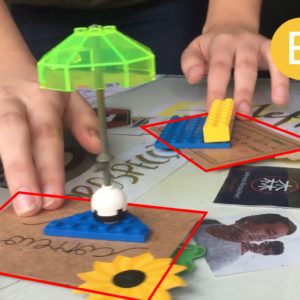
Materiality in Codesign: interaction analysis of a design experiment with building blocks
Paschoalin, Larissa and Van Amstel, Frederick M.C. (2021). Materialidade no codesign: análise interacional de um experimento com blocos de montar (Codesign Materiality: interactional analysis of a building blocks experiment). Design e Tecnologia, 11(23). https://doi.org/10.23972/det2021iss23pp82-92 - Jan 12, 2022 -

Shared Management Handbook (2021)
Shared Management Handbook is the final work of Luciane Hulyk to obtain her Graphic Design degree at UTFPR. The book was collaboratively written and participatory designed with the Mandala Network, a collective of local artisans who wanted to share their experience with self-management and solidarity economy. The book reads like a manual for those who […] - Jan 8, 2022 -
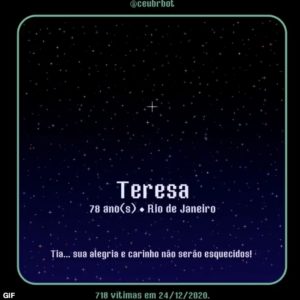
Céu Brasileiro Memorial Bot (2021)
Céu Brasileiro is the final work of Humberto Salmazo to obtain his Graphic Design degree at UTFPR. It is a twitter bot which displays the daily COVID-19 deaths in Brazil in a poetic way. Céu Brasileiro explores the combination of Graphic Design and Web Development expertise to create a robot that interacts through a Twitter […] - Jan 8, 2022 -
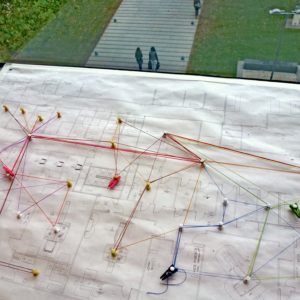
The role of games in developing transformative agency
Van Amstel, Frederick M.C. (2021). The role of games in developing transformative agency. Brazilian Journal of Socio-Historical-Cultural Research and Activity, 3(2). https://fredvanamstel.com/journal/the-role-of-games-in-developing-transformative-agency - Dec 31, 2021 -
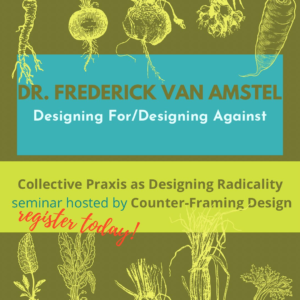
Designing For / Designing Against
Abstract: Most design theories and design methods are crafted to support the current hegemonies in society. While trying to sustain these hegemonies, designers eventually realize they are unsustainable, unfair, or dehumanizing. Among them, designers who develop a bit of critical consciousness rightly feel the need to shift from designing for to designing against hegemonies. More […] - Dec 10, 2021 -

Wicked Problems, Wicked Designs (2021)
Wicked problems, Wicked designs is a remote forum theater held during the Attending [To] Futures conference in 2021 organized by the KISD School. Forum Theater is a technique developed by Augusto Boal to make structural oppression visible through acting while also rehearsing liberation from oppression. This play aimed at exposing and discussing the sexist, colonialist, […] - Nov 22, 2021 -
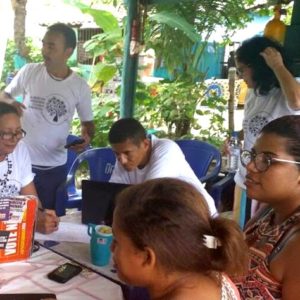
Design as a Practice of Freedom in Self-Managed Organizations
Design as a practice of freedom is an approach that considers that all people project themselves into the world seeking to increase their freedom of action. As a pedagogy, it is a proposal to raise awareness of the world as a result of intentional human projects, which can be questioned and transformed. As a technique, […] - Nov 18, 2021 -
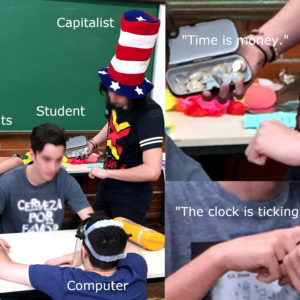
Existential time and historicity in interaction design
Van Amstel, Frederick M. C. and Gonzatto, Rodrigo Freese. (2022). Existential time and historicity in interaction design. Human-Computer Interaction, 37(1), pp.29-68. DOI: https://doi.org/10.1080/07370024.2021.1912607 - Nov 17, 2021 -
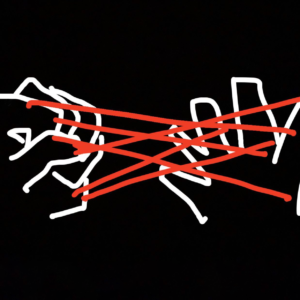
CFP Design, Oppression, and Liberation
Special issue of Diseña #21 Guest editors: Frederick van Amstel | Federal University of Technology – Paraná Lesley-Ann Noel | North Carolina State University Rodrigo Gonzatto | Pontifical Catholic University of Paraná SUBMISSION DEADLINE: March 30 April 6, 2022 (extended deadline) Expected publication date: August 2022 Design research and practice are responsible for articulating and materializing structural oppression […] - Nov 15, 2021 -
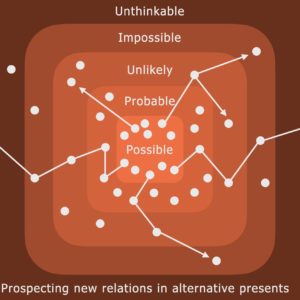
Designing relations in Prospective Design
Prospective design is a new design approach developed at Federal University of Technology Paraná inspired by Carnegie Mellon University’s Transition Design approach. This short talk explains two of the differences between the approaches: 1) instead of focusing on alternative futures, Prospective Design focuses on alternative presents; 2) instead of framing situations as systems, it frames […] - Nov 12, 2021 -
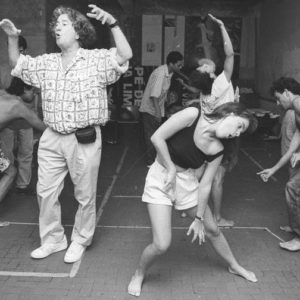
Design and Theater of the Oppressed
Summary: What does theater have to do with design? Theater of the Oppressed can provide great insights into recognizing and expanding the Designs of the Oppressed. Created by Augusto Boal in the 1970s, this form of theater became one of the most popular approaches for non-professional actors interested in doing politics through theater. The approach […] - Nov 3, 2021 -

Technology-Mediated Oppression
Summary: Can technology oppress or liberate people? This lecture introduces the Philosophy of Technology of Álvaro Vieira Pinto in dealing with this question. Vieira Pinto wrote extensively about cybernetics, artificial intelligence, transhumanism, and virtual reality’s role in mediating race, class, and colonial oppression, anticipating in the 1970s what STS scholars in other countries did in […] - Nov 3, 2021 -
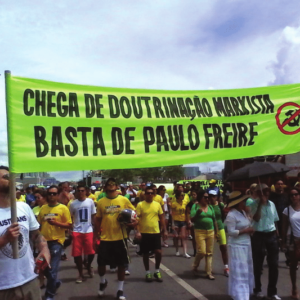 Abstract: This talk introduces the activity of Design & Oppression, woven by design professors, students, and professionals from all over Brazil from the perspective of one of its cofounders. The network discussed and experimented with several ways of recognizing how design reproduces oppression in our society. As of late 2021, the network is interested in […] - Oct 29, 2021
Abstract: This talk introduces the activity of Design & Oppression, woven by design professors, students, and professionals from all over Brazil from the perspective of one of its cofounders. The network discussed and experimented with several ways of recognizing how design reproduces oppression in our society. As of late 2021, the network is interested in […] - Oct 29, 2021 -
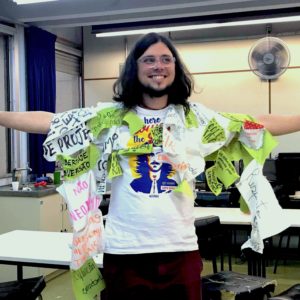
Investigar-crear para la liberación
Esta charla és una reflexión acerca de mi condición existencial de investigador del diseño en un país subdesarrollado que no prioriza la ciencia para su desarrollo. En la condición de subdesarrollo, el investigador debe identificarse con la gente y con la gente crear proyectos de investigación libertadores. Así, se puede detener a los problemas locales […] - Oct 28, 2021 -

Whither Designs of the Oppressed?
Abstract: Designs of the Oppressed builds upon the work of Paulo Freire, Augusto Boal, and Álvaro Vieira Pinto. These authors devised a critical view of being in the world as an existential project that can be oppressed or liberating. The oppressed project depends on exogenous existential projects like colonialism, patriarchy, and capitalism that do not […] - Oct 23, 2021 -
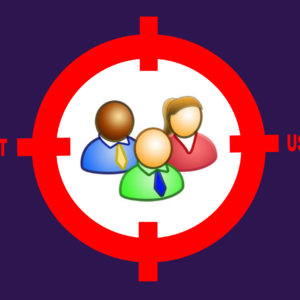 This talk was submitted to Interaction21 and was not accepted by the selection committee. UPDATE 1: I am trying again to Interaction22. If you would like to back me up, please nominate me. UPDATE 2: It did not go through, so I gave up. Background: Designers like to picture themselves as heroes who can save […] - Oct 18, 2021
This talk was submitted to Interaction21 and was not accepted by the selection committee. UPDATE 1: I am trying again to Interaction22. If you would like to back me up, please nominate me. UPDATE 2: It did not go through, so I gave up. Background: Designers like to picture themselves as heroes who can save […] - Oct 18, 2021 -

Artificial Intelligence in Higher Education (2021)
Instead of delivering an invited talk in the UTFPR’s Informatics student week of 2021, Rodrigo Fresse Gonzatto, Claudia Bordin Rodrigues, and Frederick van Amstel performed an invisible theater on artificial intelligence in higher education. In this kind of performance, actors stage the play without telling the audience that they are acting. They pretend to be […] - Oct 4, 2021 -
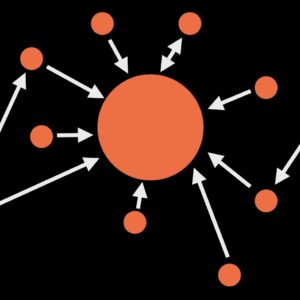
Relational design and the contradiction of oppression
Una charla en la sesión 8 de la Cátedra Diseño, Arte y Ciencia acogida pela Facultades de Artes y Diseño y de Ciencias Naturales e Ingeniería de la Universidad Jorge Tadeo Lozano (Colombia). Abstracto: El Diseño Relacional es una transformación profunda en la teoria y practica del diseño, en que se pierde el objeto para […] - Sep 21, 2021 -
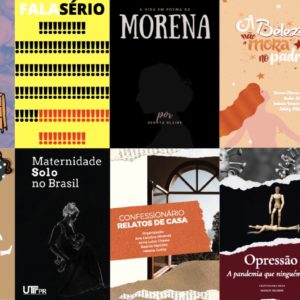 In the Publication Design course, students are asked to write and design a book that lets the oppressed say their word to the world. If they see themselves as oppressed, they can write in the first person. If not, they can interview people that see themselves as oppressed and write in the third person or […] - Sep 20, 2021
In the Publication Design course, students are asked to write and design a book that lets the oppressed say their word to the world. If they see themselves as oppressed, they can write in the first person. If not, they can interview people that see themselves as oppressed and write in the third person or […] - Sep 20, 2021 -
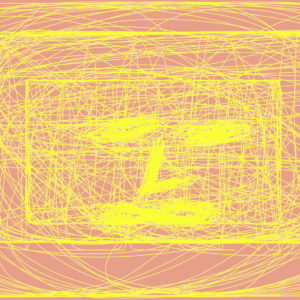 Designs of the Oppressed was a free online course offered by UTFPR, in partnership with the Design & Oppression network in 2021 and 2022, as part of larger efforts to strengthen Brazilian universities’ international reach. In it, several members of the network presented their work and promoted dialogues. The course shares the accumulated experience of […] - Aug 26, 2021
Designs of the Oppressed was a free online course offered by UTFPR, in partnership with the Design & Oppression network in 2021 and 2022, as part of larger efforts to strengthen Brazilian universities’ international reach. In it, several members of the network presented their work and promoted dialogues. The course shares the accumulated experience of […] - Aug 26, 2021 -
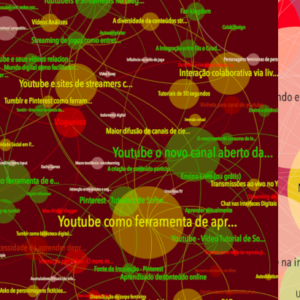
Conservatism in Digital Trends: Findings from a differentialist analysis of influence graphs
Van Amstel, Frederivan Amstel, F. M. C. (2021). Conservatism in Digital Trends: Findings from a differentialist analysis of influence graphs. InfoDesign – Revista Brasileira De Design Da Informação, 18(2), 37-52. https://doi.org/10.51358/id.v18i2.933 - Jul 31, 2021 -
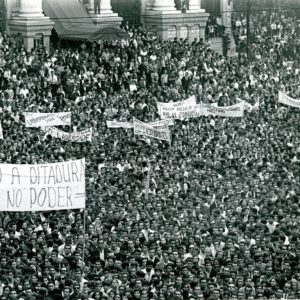
Insurgent design coalitions: the history of the Design & Oppression network
Van Amstel, F., Sâmia, B., Serpa, B.O., Marco, M., Carvalho, R.A.,and Gonzatto, R.F.(2021) Insurgent Design Coalitions: The history of the Design & Oppression network, in Leitão, R.M., Men, I., Noel, L-A., Lima, J., Meninato, T. (eds.), Pivot 2021: Dismantling/Reassembling, 22-23 July, Toronto, Canada. https://doi.org/10.21606/pluriversal.2021.0018 - Jul 28, 2021 -
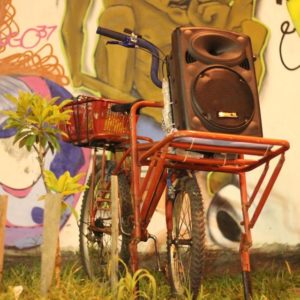
Redesigning money as a tool for self-management in cultural production
Gonzatto, R.F., van Amstel, F.,and Jatobá, P.H. (2021) Redesigning money as a tool for self-management in cultural production, in Leitão, R.M., Men, I., Noel, L-A., Lima, J., Meninato, T. (eds.), Pivot 2021: Dismantling/Reassembling, 22-23 July, Toronto, Canada. https://doi.org/10.21606/pluriversal.2021.0003 - Jul 27, 2021 -
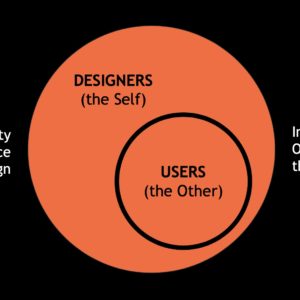
Radical Alterity in Experience Design
Abstract: In Experience Design, we typically learn to design experiences for others, the users. While drawing this distinction between us and them, we block the potential to change who we are by designing for ourselves. Radical alterity means including the Other as part of the Self. It is a concept crafted on decolonial Brazilian anthropophagic […] - Jun 22, 2021 -
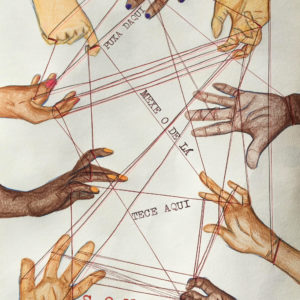
Monster aesthetics as an expression of decolonizing the design body
Angelon, Rafaela and Van Amstel, Frederick M.C. (2021) Monster aesthetics as an expression of decolonizing the design body. Art, Design & Communication in Higher Education, 20(1), pp. 83-102(20). https://doi.org/10.1386/adch_00031_1 - Jun 9, 2021 -
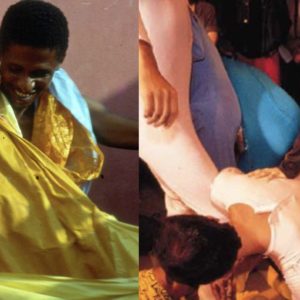
Domesticated futures and monster aesthetics
So far, design has contributed mostly to domesticate futures for the colonized. Nevertheless, design can also serve decolonizing practices that bring back the contradictory nature of human futures. The domestication of the future is a colonialist strategy that reduces existential time to a desirable space of possibilities that can be designed, packaged, and sold to […] - May 18, 2021 -
 This panel conversation was recorded at Uroboros 2021 Festival. It explores the possibility of returning to the wild, or bringing the wild back to human creative practices. Frederick contributed with comments on using this concept to decolonize design and art from domesticated attitudes, based on body discrimination and hierarchies. At 31:30, he performs a cat […] - May 17, 2021
This panel conversation was recorded at Uroboros 2021 Festival. It explores the possibility of returning to the wild, or bringing the wild back to human creative practices. Frederick contributed with comments on using this concept to decolonize design and art from domesticated attitudes, based on body discrimination and hierarchies. At 31:30, he performs a cat […] - May 17, 2021 -
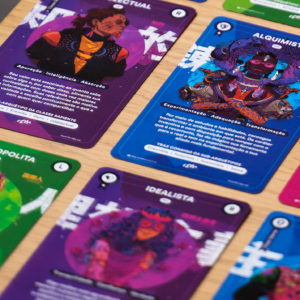
Pluriversal Design Methods and Critical Ontological Design
Pluriversality might help recognizing ways of designing and knowing that have been ignored by universal methods of design, such as vernacular and indigenous techniques. Looking at design methods through an ethical perspective, scrutinizing their intentions, and choosing alternatives beyond the universal may be called Critical Ontological Design. This philosophical idea can be summarized as such: […] - May 6, 2021 -
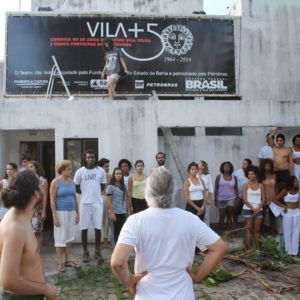
Designing for Liberation in Solidarity Economy Circuits
Solidarity economy is an approach for developing fair community exchanges and human development within capitalist societies, working as a semi-detached alternative economic circuit based on the principles of self-management. This talk summarizes the experience of the speaker in designing a self-management platform for solidarity economy circuits in Brazil, guided by the Latin-American ideal of liberation […] - Apr 15, 2021 -
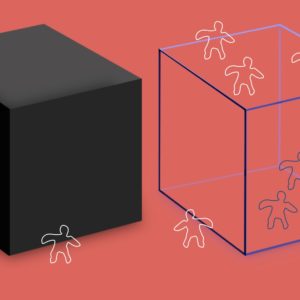 As institutions or individuals, design bodies have been weaponized for war, colonization, racism, sexism, ableism, and other forms of oppression. This talk reports on the Designing for Liberation research program that, since 2010, engages diverse design bodies with the fight against all forms of oppression. This program unleashes designing potentials that have been prevented or […] - Apr 8, 2021
As institutions or individuals, design bodies have been weaponized for war, colonization, racism, sexism, ableism, and other forms of oppression. This talk reports on the Designing for Liberation research program that, since 2010, engages diverse design bodies with the fight against all forms of oppression. This program unleashes designing potentials that have been prevented or […] - Apr 8, 2021 -
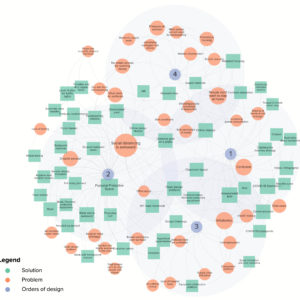
Prospecting a systemic design space for pandemic responses
Van Amstel, Frederick M.C.; Guimarães, Cayley; Botter, Fernanda. (2021). Prospecting a systemic design space for pandemic responses. Strategic Design Research Journal, 14(1), pp.66-80. DOI: https://doi.org/10.4013/sdrj.2021.141.06 - Mar 22, 2021 -
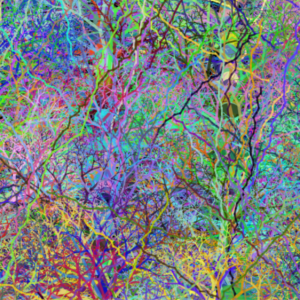
The digital smoke: Infrastructural inversion of COVID-19 from the Yanomami perspective
Pelanda, M. F. L., & van Amstel, F. M. C. (2021). A fumaça digital: inversão infraestrutural do COVID-19 pela perspectiva Yanomami (The digital smoke: Infrastructural inversion of COVID-19 from the Yanomami perspective). International Journal of Engineering, Social Justice, and Peace, 8(1), 69-85. https://doi.org/10.24908/ijesjp.v8i1.14735 - Mar 18, 2021 -
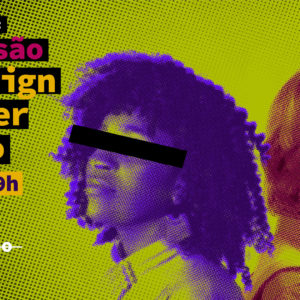
The Invasion of the Gringo Design Thinker (2021)
On the World Theatre of the Oppressed Day on March 16, 2021, the Design & Oppression Network broadcasted a forum theater called The Invasion of the Gringo Design Thinker. The play proposes a debate about the relevance of foreign design thinking to Brazilian popular culture and its forms of expression. Following the remote forum theater method, […] - Mar 4, 2021 -
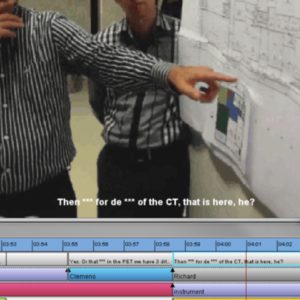
Video-based interaction analysis
Interaction analysis, as proposed by Jordan & Henderson (1995), is a research method rooted in the accumulated experiences of researchers at the Xerox PARC center and other places. This approach draws on various qualitative methodologies, including visual anthropology, conversational analysis, and ethnomethodology. It focuses on examining how individuals interact within their social and cultural contexts, […] - Jan 27, 2021 -
 Visual oxymoron is a graphic representation of a contradiction codesigned by those who face that contradiction in everyday life. In written language, an oxymoron is a figure of language that displays interconnected opposing ideas. A visual oxymoron displays the opposite forces of a contradiction in a single image. The representation can be made through visual […] - Jan 27, 2021
Visual oxymoron is a graphic representation of a contradiction codesigned by those who face that contradiction in everyday life. In written language, an oxymoron is a figure of language that displays interconnected opposing ideas. A visual oxymoron displays the opposite forces of a contradiction in a single image. The representation can be made through visual […] - Jan 27, 2021 -
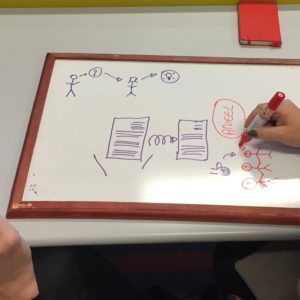 Visual dialogue is a hybrid between visual thinking, scribing, and dialogic action. In this process, ideas are expressed through simultaneous verbal and visual communication. Visual dialogue is a way of thinking and communicating that combines speech and drawing to help make abstract ideas more concrete. Often, when people start a conversation about a complex topic, […] - Jan 27, 2021
Visual dialogue is a hybrid between visual thinking, scribing, and dialogic action. In this process, ideas are expressed through simultaneous verbal and visual communication. Visual dialogue is a way of thinking and communicating that combines speech and drawing to help make abstract ideas more concrete. Often, when people start a conversation about a complex topic, […] - Jan 27, 2021 -
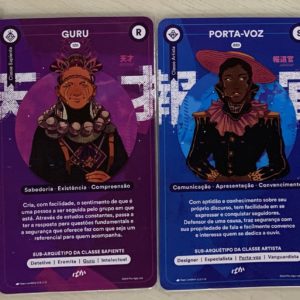
Existentialist advisory practice
When advising a thesis project, I begin by helping the student to locate the project within personal, professional, and societal development. I advise them to think about their projects as existential projects, as a way of becoming more than what they already are. We stumble upon the barriers to becoming more and question who else […] - Jan 27, 2021 -
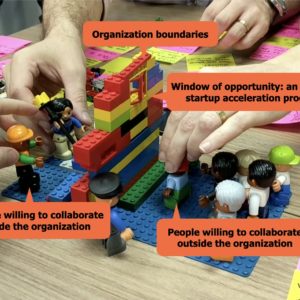 Germ cell model is a representation of a contradiction that is at the forefront of activity development. It features the dialectical reason why development is not advancing further as expected, and a possible path to overcome the barriers. Models are rather ambivalent in the way they represent contradictions, since they may not solve the contradiction. There […] - Jan 27, 2021
Germ cell model is a representation of a contradiction that is at the forefront of activity development. It features the dialectical reason why development is not advancing further as expected, and a possible path to overcome the barriers. Models are rather ambivalent in the way they represent contradictions, since they may not solve the contradiction. There […] - Jan 27, 2021 -
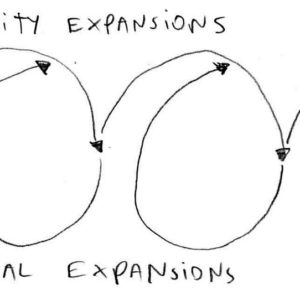 Formative Intervention is a method for studying concept formation inside organizations in moments of turmoil, confusion, or stagnation (Engeström, 2011). The interventionist researcher identifies the contradictions hindering organization development and presents them for discussion with the research participants. Typically, the researcher brings theoretical concepts from Cultural Historical Activity Theory (CHAT) to explain and analyze these […] - Jan 27, 2021
Formative Intervention is a method for studying concept formation inside organizations in moments of turmoil, confusion, or stagnation (Engeström, 2011). The interventionist researcher identifies the contradictions hindering organization development and presents them for discussion with the research participants. Typically, the researcher brings theoretical concepts from Cultural Historical Activity Theory (CHAT) to explain and analyze these […] - Jan 27, 2021 -
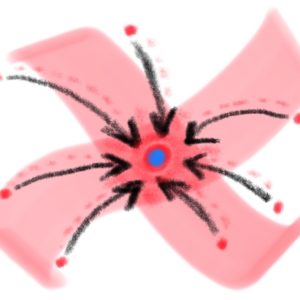
Decolonizing whatever-centered design
Centralization is a spatial practice used by human collectives for thousands of years. It started in the archaic definition of village leaders and evolved to world empires, including their corollary transnational companies. Centralization promises to better organize society through the gathering of resources and information generated in a vast territory in a small space: the […] - Jan 19, 2021 -
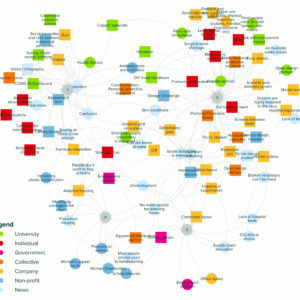
Controversial design space mapping
Design space mapping is widely used in cognition studies to trace ideation activity through a series of mental states. Controversial design space mapping expands this method with the friction generated by the clash of ideas coming from different minds. Each idea is classified as a problem (dark circle) or a solution (white square). A color […] - Jan 2, 2021 -
 Design & Oppression is a network of students and professors fighting all kinds of oppression in and through design. The network includes an online weekly reading group, a series of Youtube videos, and an orchestrated participation in design events and conferences. The network is weaved by an expanding group of volunteer complicators spread across Brazil. The history […] - Dec 28, 2020
Design & Oppression is a network of students and professors fighting all kinds of oppression in and through design. The network includes an online weekly reading group, a series of Youtube videos, and an orchestrated participation in design events and conferences. The network is weaved by an expanding group of volunteer complicators spread across Brazil. The history […] - Dec 28, 2020 -

Commoning Design: a Pluriversal Slide-Deck
The Commoning Design pluriversal slide-deck is the outcome of a collaborative effort which involved people with different interests, skills, and backgrounds united by their shared curiosity around the relationship between commoning and design. Such effort took place in the context of the Participatory Design Conference 2020 and organized around the workshop “Commoning Design and Designing Commons”. This deck […] - Dec 8, 2020 -
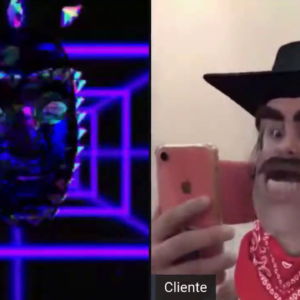
Design and Precarious Work in Digital Platforms (2020)
The Design & Oppression network produced a remote forum theater play on platform work and precarity in the USP design academic week of 2020. Young design students joined the forum to discuss the dystopian future of their profession while considering the dystopian present of other professions. Following the remote forum theater method, the spect-actors wore augmented reality […] - Dec 3, 2020 -
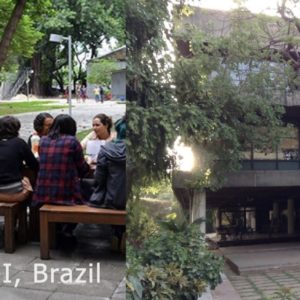
Global South Futures of Design Education
Abstract: The future is an ideology that preserves colonial and imperialist relations in the Global South. Design education can counter this ideology by encouraging the development of many futures of design education, through cultural hybridism, dialogue, and other ways of confronting the global South with the global North realities. This conversation starter was proposed to […] - Dec 2, 2020 -
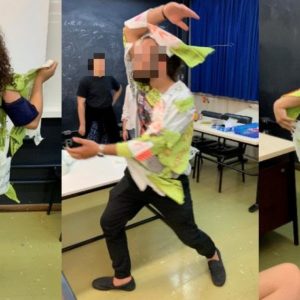
The political body as a fulcrum for radical imagination in metadesign
Angelon, Rafaela; Van Amstel, Frederick M.C. (2020). The political body as a fulcrum for radical imagination in metadesign. In: Proceedings of the III Design Culture Symposium, Unisinos, Porto Alegre, Brasil. - Nov 9, 2020 -
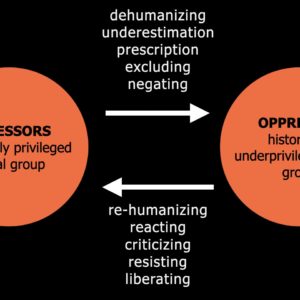
A Visual Summary of Pedagogy of the Oppressed (1970)
This is a book summary for the Pluriversal Design Book Club. It is a short contextualized introduction to Paulo Freire’s magnum opus. The main feature of this introduction is a visual scheme to frame the historical-dialectical relationships developed throughout the book: oppression, banking education, and colonization. This scheme also considers the emergence of third forces […] - Oct 30, 2020 -
 This is not a presentation about the best Service Design projects in Latin America. It is more like an attempt to rethink Service Design from a Latin American perspective, bringing to the fore the contradictions that are behind design problems and that are usually overlooked. In this guest talk, part of CIID‘s Service Design class […] - Sep 28, 2020
This is not a presentation about the best Service Design projects in Latin America. It is more like an attempt to rethink Service Design from a Latin American perspective, bringing to the fore the contradictions that are behind design problems and that are usually overlooked. In this guest talk, part of CIID‘s Service Design class […] - Sep 28, 2020 -
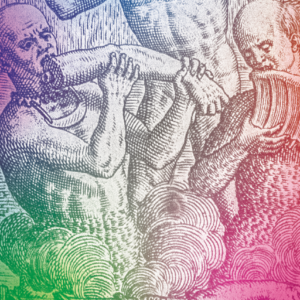
The Anthropophagic Studio: Towards a Critical Pedagogy for Interaction Design
Van Amstel, Frederick M.C and Gonzatto, Rodrigo Freese. (2020) The Anthropophagic Studio: Towards a Critical Pedagogy for Interaction Design. Digital Creativity, 31(4), p. 259-283. DOI: https://doi.org/10.1080/14626268.2020.1802295 - Jul 25, 2020 -
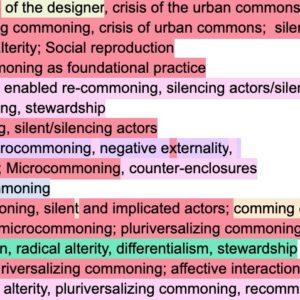
Commoning design and designing commons
Botero, A., Marttila, S., Poderi, G., Saad-Sulonen, J., Seravalli, A., Teli, M., & van Amstel, F.M.C. (2020, June). Commoning Design and Designing Commons. In Proceedings of the 16th Participatory Design Conference 2020-Participation (s) Otherwise-Volume 2 (pp. 178-180). DOI: https://doi.org/10.1145/3384772.3385162 - Jun 24, 2020 -
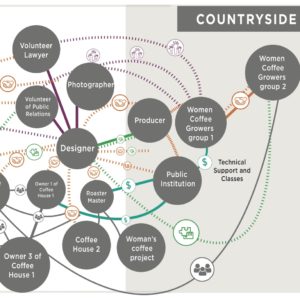
Matters of Care in Designing a Feminist Coalition
Eleutério, Rafaella P. and Van Amstel, Frederick M.C. Matters of Care in Designing a Feminist Coalition. (2020). In: Proceedings of the 16th Participatory Design Conference. Manizales, Colombia. DOI: https://doi.org/10.1145/3384772.3385157 - Jun 13, 2020 -
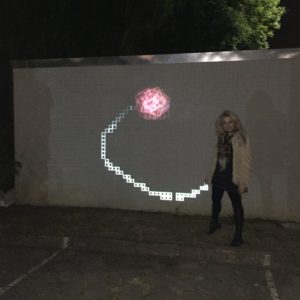 Creative coding can be described as a programming style that seeks to express values, feelings, meanings, and ideas through software code. For example, I designed the Coralizando book cover with a Processing script to express the plurality of the book contributors in a way I wouldn’t be able with a regular drawing. This style is […] - Jun 11, 2020
Creative coding can be described as a programming style that seeks to express values, feelings, meanings, and ideas through software code. For example, I designed the Coralizando book cover with a Processing script to express the plurality of the book contributors in a way I wouldn’t be able with a regular drawing. This style is […] - Jun 11, 2020 -
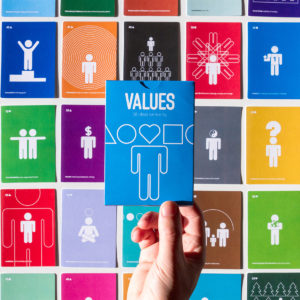 This method uses Genis Carrera’s Values Deck to visualize the priorities of a group, project, or organization. The method is relatively simple: gathering the people involved to vote on the human values they want to produce together. Each card represents a human value, such as sustainability, creativity, wealth, etc. They are laid down on a […] - Jun 10, 2020
This method uses Genis Carrera’s Values Deck to visualize the priorities of a group, project, or organization. The method is relatively simple: gathering the people involved to vote on the human values they want to produce together. Each card represents a human value, such as sustainability, creativity, wealth, etc. They are laid down on a […] - Jun 10, 2020 -
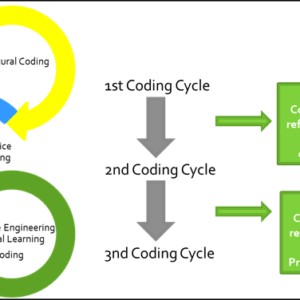
Reflective Practice in software development studios: findings from an ethnographic study
Dors, Tania M.; van Amstel, Frederick M.C.; Binder, Fabio; Reinehr, Sheila dos Santos; Malucelli, Andreia. (2020). Reflective Practice in Software Development Studio: findings from an ethnographic study. In: Proceeding of the 32nd Conference on Software Engineering Education and Training (CSEE&T), Munich. https://doi.org/10.1109/CSEET49119.2020.9206217 - May 19, 2020 -
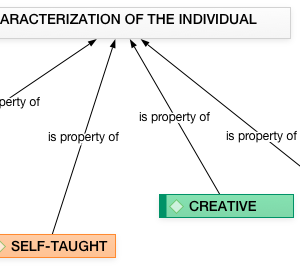 Harmuch Neto, Elias; van Amstel, Frederick M.C.; Binder, Fabio; Reinehr, Sheila dos Santos; Malucelli, Andreia. (2020). Trajectory and traits of devigners: a qualitative study about transdisciplinarity in a software studio. In: Proceeding of the Conference on Software Engineering Education and Training (CSEE&T), Munich. https://doi.org/10.1109/CSEET49119.2020.9206180 - May 19, 2020
Harmuch Neto, Elias; van Amstel, Frederick M.C.; Binder, Fabio; Reinehr, Sheila dos Santos; Malucelli, Andreia. (2020). Trajectory and traits of devigners: a qualitative study about transdisciplinarity in a software studio. In: Proceeding of the Conference on Software Engineering Education and Training (CSEE&T), Munich. https://doi.org/10.1109/CSEET49119.2020.9206180 - May 19, 2020 -
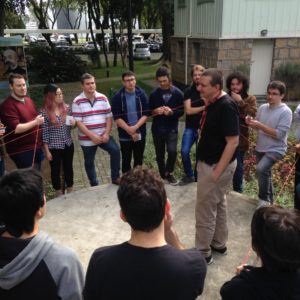 New business generates value through a provisional network of relations, including strategic partners, suppliers, and clients. Young entrepreneurs take time to understand that starting up a company does not depend on themselves only. Value-net is a strategic framework created by Cinzia Parolini (1999) to understand and manage the network of relationships within a business ecosystem. […] - May 18, 2020
New business generates value through a provisional network of relations, including strategic partners, suppliers, and clients. Young entrepreneurs take time to understand that starting up a company does not depend on themselves only. Value-net is a strategic framework created by Cinzia Parolini (1999) to understand and manage the network of relationships within a business ecosystem. […] - May 18, 2020 -
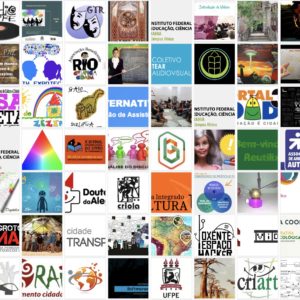
Anthropophagy traces in a cultural commons platform
Van Amstel, Frederick M. C. (2020) Anthropophagy traces in a cultural commons platform. Commoning Design and Designing Commons Workshop (position paper), Participatory Design Conference, Manizales. - May 18, 2020 -
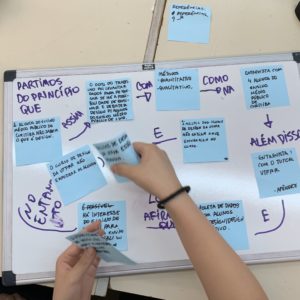 Research Methodology is a 30 hours course from the Graphic Design bachelor at UTFPR. It is an introduction to scientific, academic, and design research, with the proper distinctions. After this course, students are ready to think about the research they want to conduct in their final work. My approach to this course becomes quite unusual […] - May 10, 2020
Research Methodology is a 30 hours course from the Graphic Design bachelor at UTFPR. It is an introduction to scientific, academic, and design research, with the proper distinctions. After this course, students are ready to think about the research they want to conduct in their final work. My approach to this course becomes quite unusual […] - May 10, 2020 -
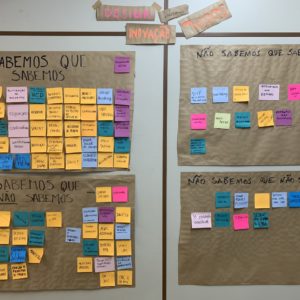
Course design and design (in)discipline
Course design and design (in)discipline (2020) was a talk given at the Innovative practices in higher education panel from UTFPR teaching seminars. UTFPR has been conducting debates and workshops on Course Design, a pedagogical approach that aims to promote innovation in education. Despite borrowing the term Design, this loan does not reach cutting-edge research in […] - Apr 27, 2020 -
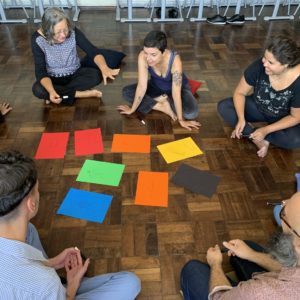 Thinking with the whole body (2020) was a workshop offered in UTFPR teaching seminars. The Technological University usually stimulates its students to think primarily with the brain, ignoring the biological and social support of this organ. Physical activity is restricted to complementary activities, which are isolated from the primary processes of learning, assessment, and knowledge […] - Apr 27, 2020
Thinking with the whole body (2020) was a workshop offered in UTFPR teaching seminars. The Technological University usually stimulates its students to think primarily with the brain, ignoring the biological and social support of this organ. Physical activity is restricted to complementary activities, which are isolated from the primary processes of learning, assessment, and knowledge […] - Apr 27, 2020 -
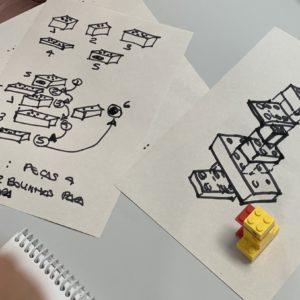
Design and other types of thinking
Design and other types of thinking (2020) was a workshop offered in UTFPR teaching seminars. Design thinking is a contemporary approach to innovation, entrepreneurship, project development, and education that makes designers’ thinking accessible to professionals in other areas. While it has drawn attention to creative processes typical of design, this approach has overshadowed the thoughts […] - Apr 27, 2020 -
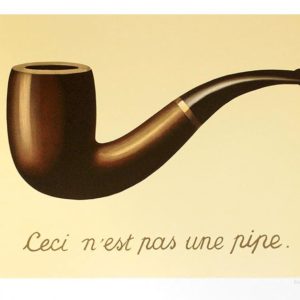
What is a contradiction and why it is relevant to design research?
Design research is increasingly concerned with being part of change processes in everyday life, in communities, in organizations, and in large-scale sociotechnical systems. Despite the growing interest, the field is not prepared to deal with this topic. The predominant theories in design research were crafted to understand individuals interacting with products, or groups of people […] - Apr 21, 2020 -

When black people move, all the possibilities of future move with them
Silva, R. L. P. da, Santos, M. R. dos, & Amstel, F. V. (2020). Quando o negro se movimenta, toda a possibilidade de futuro com ele se move (When the black’s people moves, all possibility of future with him moves). Albuquerque: Journal of History, 11(21), 132-150. https://doi.org/10.46401/ajh.2019.v11.9589 - Apr 15, 2020 -
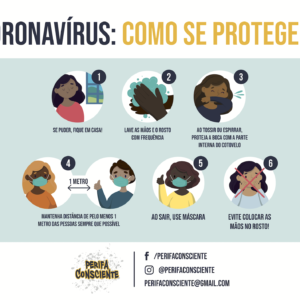
Conscious Periphery COVID-19 communication (2020)
Conscious Periphery is an emergency outreach activity funded by UTFPR to fight misinformation about the COVID-19 in vulnerable communities around the university. To reach this aim, the students involved in the activity will collaborate with community leaders to find the right tune as well as with healthcare professionals to deliver the correct information. The messages […] - Apr 9, 2020 -
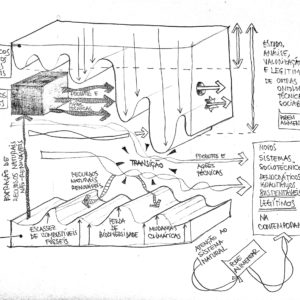
Prospective Design graduate program
From 2019 to 2023, Frederick was part of the research committee that laid the foundations for the Prospective Design graduate program at UTFPR, the first of its kind in the nation. Beginning in 2025, the program will offer a Master’s course. The program aims to train design researchers who can contribute to structural transformations that […] - Apr 8, 2020 -
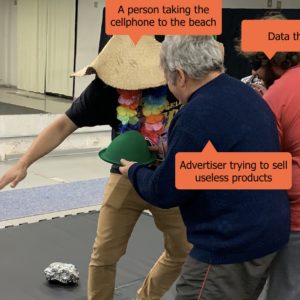
Theater of the Techno-Oppressed
Despite all the hype and hope around it, technology is not inherently good. Historically, technology has often intensified oppressions such as xenophobia, sexism, and racism. Social movements, activist groups, and oppressed people need to be aware of how technology does that and, especially, how it uncovers that under the pretext of neutrality. Theater of the […] - Apr 6, 2020 -
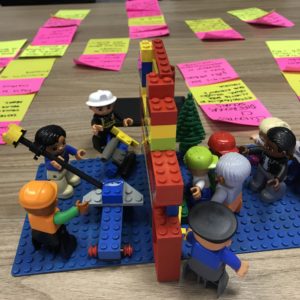
Lego Physical Oxymoron (LEPOX)
LEPOX challenges the participants to collaboratively identify and materialize a contradiction using Lego pieces. This game is inspired by the LEGO Serious Play ® method, which relies upon physical metaphors for improving team communication. The participants are invited to make a model of what they perceive to be a contradiction in terms — a physical […] - Apr 6, 2020 -
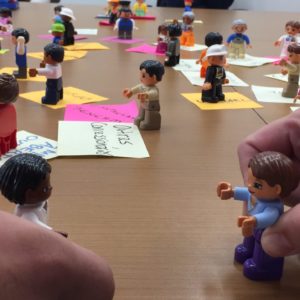
Stake Holder Analysis with Lovely Links (SHALL)
SHALL is short for Stake Holder Analysis with Lovely Links. It consists of mapping all the stakeholders possibly interested in a problem through their organization and inter-organizational relationships. Each stakeholder is mapped as a doll and relationships are loosely represented as a thread connecting the dolls. The game starts by asking the participants to map […] - Apr 6, 2020 -
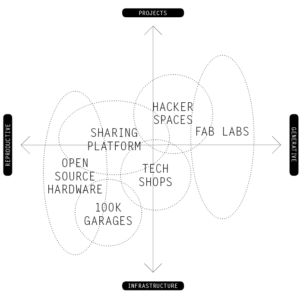 Open Design was initially introduced as an analog to Open Source Software, a concept which explains why software source code should be part of an official product release. The analogy went by stating that electronic drawings and models be released together with physical products, in the hopes of enabling modifications or self-production through digital fabrication. […] - Apr 6, 2020
Open Design was initially introduced as an analog to Open Source Software, a concept which explains why software source code should be part of an official product release. The analogy went by stating that electronic drawings and models be released together with physical products, in the hopes of enabling modifications or self-production through digital fabrication. […] - Apr 6, 2020 -
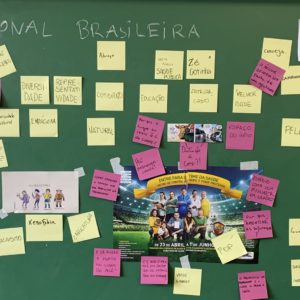 45 hours – Graphic Design — UTFPR This course, taught with Marinês Ribeiro dos Santos in 2019, ties the dots between design, culture, and society. Designers are producers and also reproducers of cultural artifacts, signs, and experiences. Being conscious of this fact helps them to find possibilities for changing oppressive cultural patterns and normalities. - Mar 28, 2020
45 hours – Graphic Design — UTFPR This course, taught with Marinês Ribeiro dos Santos in 2019, ties the dots between design, culture, and society. Designers are producers and also reproducers of cultural artifacts, signs, and experiences. Being conscious of this fact helps them to find possibilities for changing oppressive cultural patterns and normalities. - Mar 28, 2020 -
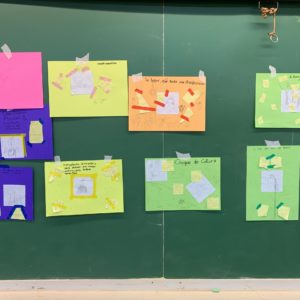 30 hours – Graphic Design — UTFPR Creativity is not a personal trait of a genius but a social activity that can be perfected through practice. The basic premise of this course was featured in a news item on TV Paraná Turismo. The TV news report conveys that creativity is not an innate talent reserved for […] - Mar 28, 2020
30 hours – Graphic Design — UTFPR Creativity is not a personal trait of a genius but a social activity that can be perfected through practice. The basic premise of this course was featured in a news item on TV Paraná Turismo. The TV news report conveys that creativity is not an innate talent reserved for […] - Mar 28, 2020 -
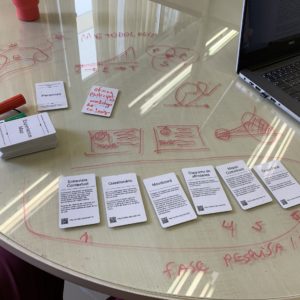
Designing Metaobjects for Collaboration, Participation and Debate
This research theoretically develops and empirically tests the concept of metaobject in design projects with special needs for collaboration, participation, or debate. Metaobjects are objects that represent and support the design of new objects in metadesign processes, such as a sketch, a model, or a prototype. In design projects, metaobjects must represent multiple perspectives and […] - Mar 25, 2020 -
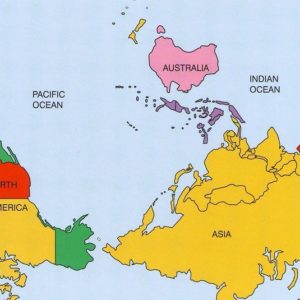
Participatory Design in Transition Projects from the Global South
Multiple versions of Participatory Design emerged in different contexts and disciplines. Despite taking advantage of knowledge generated by the Global South, such as Participatory Action Research, Participatory Design is mainly practiced based on Northern theories, such as critical theory, post-structuralism, and phenomenology. Despite their contributions to building a democratic approach to design, these theories did […] - Mar 25, 2020 -
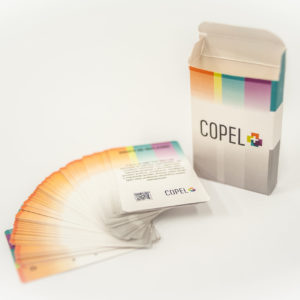 Copel+ is an open innovation platform designed for a utility company in Brazil as part of a research project that focused on organizational learning. The company had just started the transition to smart grids and realized that it was necessary to nurture the regional entrepreneurial ecosystem to populate the grid. The platform sponsors believed that […] - Mar 24, 2020
Copel+ is an open innovation platform designed for a utility company in Brazil as part of a research project that focused on organizational learning. The company had just started the transition to smart grids and realized that it was necessary to nurture the regional entrepreneurial ecosystem to populate the grid. The platform sponsors believed that […] - Mar 24, 2020 -
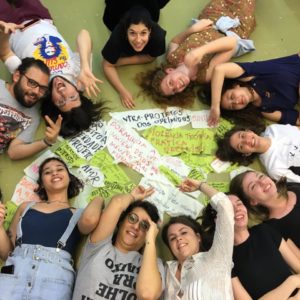
Design for People: Laboratory of Design and Social Innovation
60 hours – Bachelor in Design – UTFPR This studio course lets students discuss and realize the role of design in increasing or decreasing social inequalities. To realize that, they must develop a design project together with a disenfranchised community. Before joining a community, however, they must learn how to design together. Hence, the course […] - Mar 23, 2020 -
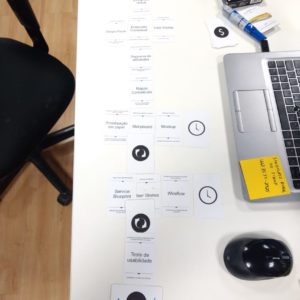
Business model design innovation
This research develops a method for assessing the business potential of mobility innovations that are arising within and outside of Bosch, in an attempt to contribute to its Open Innovation effort. This will allow to discover innovations that have not yet been considered as such, to identify solutions that may generate value, to discover sustainability […] - Mar 22, 2020 -
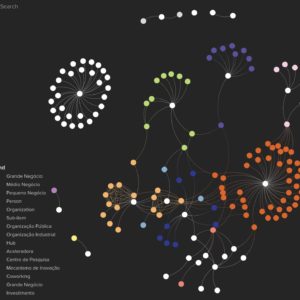
Open innovation ecosystem development
This research aims at articulating the participation of Bosch in the entrepreneurial ecosystem of Curitiba city, Vale do Pinhão. Firstly, the current connections and partnerships with startups will be mapped, in particular, the Curitiba Connectory initiative. Second, these relationships will be evaluated based on the Open Innovation practices carried out by other actors of similar […] - Mar 22, 2020 -
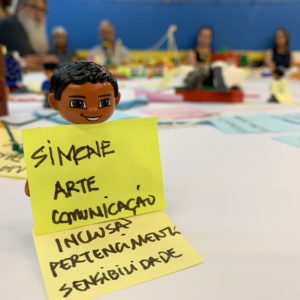 The Industrial Design Academic Department (DADIN) at UTFPR wanted to strengthen faculty collaboration in outreach activities. Then, it organized a workshop facilitated by faculty members Frederick van Amstel, Marco Mazarotto, and Eunice Liu. The workshop mapped current and future outreach activities from faculty members using an adapted version of Lego Serious Play. Each faculty chose […] - Feb 26, 2020
The Industrial Design Academic Department (DADIN) at UTFPR wanted to strengthen faculty collaboration in outreach activities. Then, it organized a workshop facilitated by faculty members Frederick van Amstel, Marco Mazarotto, and Eunice Liu. The workshop mapped current and future outreach activities from faculty members using an adapted version of Lego Serious Play. Each faculty chose […] - Feb 26, 2020 -
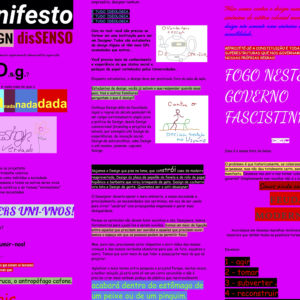
Manifesto Design Dissenso (2019)
The Manifesto Design Dissenso is writen by the Design for Social Innovation class of 2019 at UTFPR. Students decided to write it after looking critically at their technical education and the lack of political perspectives. The manifesto was written and designed using several collaborative tools, such as clay, textiles, and Google Docs across several weeks […] - Nov 8, 2019 -
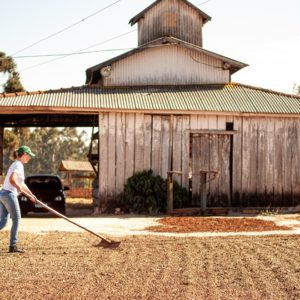
Women Coffee Worker Coalition (2019)
Women Coffee Worker Coalition is the final work of Rafaella Peres Eleuterio to obtain her Bachelor degree in Design at UTFPR. Rafaella had some relatives who worked on the coffee fields of Northern Paraná but she never engaged directly with this production. After seeing the coffee packages which sold their produce in the city, she […] - Oct 9, 2019 -
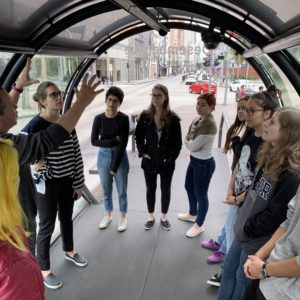 80 hours — Design — UTFPR — shared with Dr. Cayley Guimarães This course introduces the broad view on Experience Design that existed before User Experience Design: designing for memorable moments through multi-sensory media and interactive spaces and technologies. The final project aimed at enabling personal transformations through design, probing into the next step of […] - Sep 2, 2019
80 hours — Design — UTFPR — shared with Dr. Cayley Guimarães This course introduces the broad view on Experience Design that existed before User Experience Design: designing for memorable moments through multi-sensory media and interactive spaces and technologies. The final project aimed at enabling personal transformations through design, probing into the next step of […] - Sep 2, 2019 -
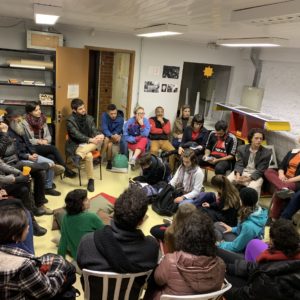 TECSOL is UTFPR’s Solidarity Economy Incubator. This outreach project assists disenfranchised communities to organize solidarity work relations, fair trade markets, and public policy advocacy for Solidarity Economy. Solidarity Economy is understood as an alternative mode of production which can work within Capitalism to overcome its limitations, such as poverty and dehumanization. I helped the incubator […] - Jul 8, 2019
TECSOL is UTFPR’s Solidarity Economy Incubator. This outreach project assists disenfranchised communities to organize solidarity work relations, fair trade markets, and public policy advocacy for Solidarity Economy. Solidarity Economy is understood as an alternative mode of production which can work within Capitalism to overcome its limitations, such as poverty and dehumanization. I helped the incubator […] - Jul 8, 2019 -
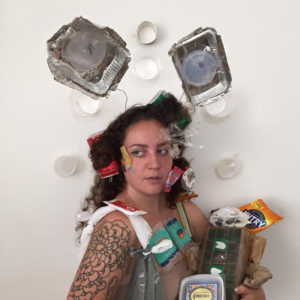 Sustainable design (Design Theory 4) is a regular 30-hour course from the Design bachelor at UTFPR. My approach for this class was to avoid discussing sustainability as a technical issue and rather to deal with the political challenges of sustainability, the crisis of modernity, and the Anthropocene, in a similar way it was done in […] - Jun 11, 2019
Sustainable design (Design Theory 4) is a regular 30-hour course from the Design bachelor at UTFPR. My approach for this class was to avoid discussing sustainability as a technical issue and rather to deal with the political challenges of sustainability, the crisis of modernity, and the Anthropocene, in a similar way it was done in […] - Jun 11, 2019 -
Designing Experiences for Personal Transformations
Designing experiences is an uncontrolled, experimental, exploratory, and ethical process which can lead to personal transformations. This lecture presents the types of experiences which can transform someone’s life, how this transformation may happen and key principles for designing them. http://multimidia.usabilidoido.com.br/podcasts/tranformation_design.mp3 Download Designing Experiences for Personal Transformations lecture [MP3] - May 10, 2019 -
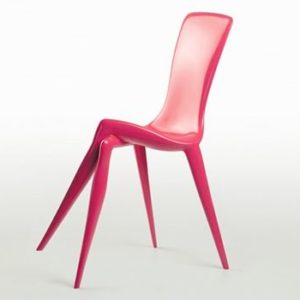 In this lecture at UTFPR, I explain the origins of Experience Design and discuss the concept of experience from a cultural-historical perspective. I also present four design approaches: linear, a-mazing, theatrical, and total. These approaches do not apply solely to digital channels, in fact, all of them emphasize to consider spaces, activities and things equally. […] - Apr 2, 2019
In this lecture at UTFPR, I explain the origins of Experience Design and discuss the concept of experience from a cultural-historical perspective. I also present four design approaches: linear, a-mazing, theatrical, and total. These approaches do not apply solely to digital channels, in fact, all of them emphasize to consider spaces, activities and things equally. […] - Apr 2, 2019 -
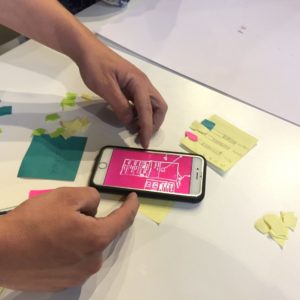 Since 2013, Apple has a partnership with several Brazilian Universities to offer an educational program to attract and train new software developers in their mobile application ecosystem. The program is called Apple Developer Academy and it includes everything a newcomer needs to develop a new app. The program is customized for each partnership to better […] - Mar 28, 2019
Since 2013, Apple has a partnership with several Brazilian Universities to offer an educational program to attract and train new software developers in their mobile application ecosystem. The program is called Apple Developer Academy and it includes everything a newcomer needs to develop a new app. The program is customized for each partnership to better […] - Mar 28, 2019 -
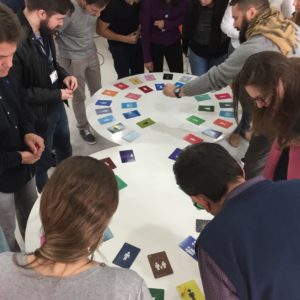 Design patterns deconstructs the myth that design projects are created by a single consciousness, the lonely designer. Every project, be that developed by a single designer or by a design team, reproduces common patterns that society at large cultivates. Card decks collect and organize design patterns with common problems and solutions in a certain design […] - Nov 22, 2018
Design patterns deconstructs the myth that design projects are created by a single consciousness, the lonely designer. Every project, be that developed by a single designer or by a design team, reproduces common patterns that society at large cultivates. Card decks collect and organize design patterns with common problems and solutions in a certain design […] - Nov 22, 2018 -
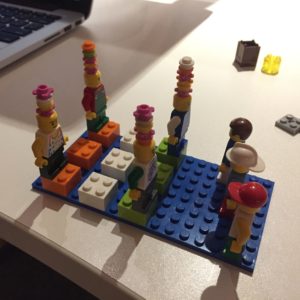 Lego is a great tool to build early prototypes of games and apps. I like. to stimulate students to supplement talking with making to increase shared understanding. Physical prototypes are quicker to build together in a team and can be used to test if ideas work in the real world. In this video, participants learn […] - Nov 22, 2018
Lego is a great tool to build early prototypes of games and apps. I like. to stimulate students to supplement talking with making to increase shared understanding. Physical prototypes are quicker to build together in a team and can be used to test if ideas work in the real world. In this video, participants learn […] - Nov 22, 2018 -
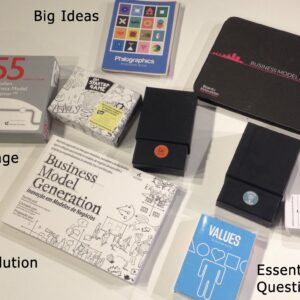
Pattern-based collaborative design with cards deck
Abstract: At PUCPR’s Academy we offer students a handful of special card decks to help them learn about the possibilities for design. There is a deck on business models, another on user interface, a third on human values, and the collection is always growing. In this hands-on session, we will demonstrate how we let students […] - Nov 22, 2018 -
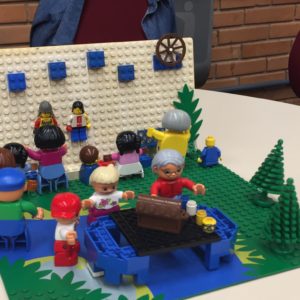 The Experience Map is an abstract representation which might not be understood by stakeholders who are responsible for shaping that experience. Since their participation is essential to stage the experience, I developed a Tangible Experience Model with uses Lego pieces to represent the relationships between people, things, spaces, and activities. Since the model’s meaning relies […] - Nov 4, 2018
The Experience Map is an abstract representation which might not be understood by stakeholders who are responsible for shaping that experience. Since their participation is essential to stage the experience, I developed a Tangible Experience Model with uses Lego pieces to represent the relationships between people, things, spaces, and activities. Since the model’s meaning relies […] - Nov 4, 2018 -
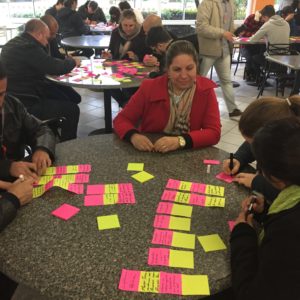
Problem Solution Problem (PSP)
The Problem Solution Problem (PSP, also known as PS³) game, developed by Frederick van Amstel and Guilherme Silveira is designed to explore and address collective creativity within the context of problem-solving. - Nov 1, 2018 -
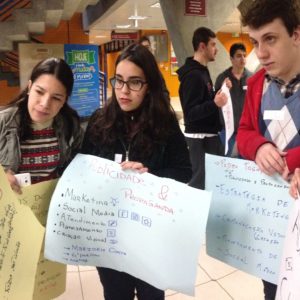 Idea Market is a design game developed to facilitate the pitching and development of new business ideas, while encouraging the formation of partnerships in entrepreneurship programs. The game simulates the dynamics of a startup ecosystem, where participants play both entrepreneurial and investor roles. Each player begins with an individual idea, sketched on paper, and progresses […] - Nov 1, 2018
Idea Market is a design game developed to facilitate the pitching and development of new business ideas, while encouraging the formation of partnerships in entrepreneurship programs. The game simulates the dynamics of a startup ecosystem, where participants play both entrepreneurial and investor roles. Each player begins with an individual idea, sketched on paper, and progresses […] - Nov 1, 2018 -
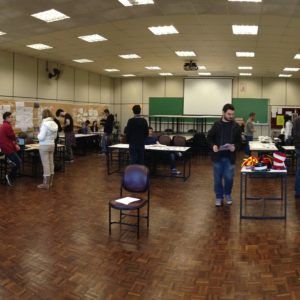
Classroom-to-Studio Transformation
I like to teach through developing projects as done in design studios. Most of the times, students need to adapt regular classrooms to work like design studios. I encourage them to appropriate the classroom space in any way that is better to support their creative activities. Along the years, we learnt together many ways to […] - Nov 1, 2018 -
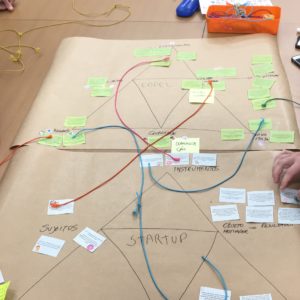 Change Laboratory is a method developed by CRADLE to help organizations change routines, deal with conflicts, and create new ideas through a participatory approach. The method consists of three different moments: 1) presenting contradictions found through ethnographic research in the organization; 2) analyzing the systemic nature of these contradictions through organizational models; 3) generating new […] - Nov 1, 2018
Change Laboratory is a method developed by CRADLE to help organizations change routines, deal with conflicts, and create new ideas through a participatory approach. The method consists of three different moments: 1) presenting contradictions found through ethnographic research in the organization; 2) analyzing the systemic nature of these contradictions through organizational models; 3) generating new […] - Nov 1, 2018 -
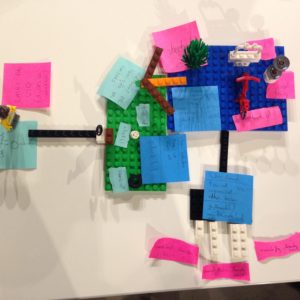 Unified Modeling Language (UML) is a set of standard diagrams and notations for creating software. We created at PUPCR a physical version of these diagrams with Lego to enable the participation of designers, clients, and users in software architecture and modeling activities. The concrete representations help the participants understand and make good use of software […] - Nov 1, 2018
Unified Modeling Language (UML) is a set of standard diagrams and notations for creating software. We created at PUPCR a physical version of these diagrams with Lego to enable the participation of designers, clients, and users in software architecture and modeling activities. The concrete representations help the participants understand and make good use of software […] - Nov 1, 2018 -
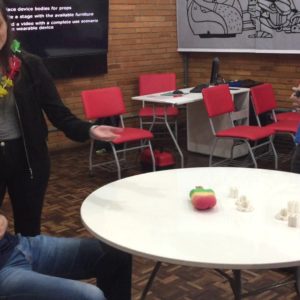 Improvised Videos are short films recorded with smartphones to support a codesign process. They represent everyday scenarios where the design object plays a protagonist role. The interaction with the design object is depicted through variegated film and theater techniques such as enactment, role playing, props, puppets, cuts, and transitions. The main advantage of using video […] - Nov 1, 2018
Improvised Videos are short films recorded with smartphones to support a codesign process. They represent everyday scenarios where the design object plays a protagonist role. The interaction with the design object is depicted through variegated film and theater techniques such as enactment, role playing, props, puppets, cuts, and transitions. The main advantage of using video […] - Nov 1, 2018 -
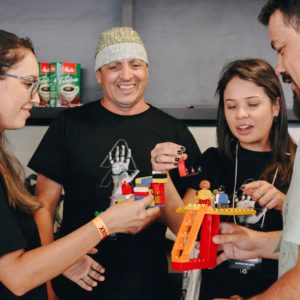 I’m developing further the Lego Serious Play method to support Expansive Design, in particular, to represent tough contradictions in a humorous style. This is useful when people avoid talking about contradictions openly or deny their existence. The pretext of play enables critical voices and radical alternatives to emerge. References Van Amstel, Frederick M.C. (2021). The […] - Oct 31, 2018
I’m developing further the Lego Serious Play method to support Expansive Design, in particular, to represent tough contradictions in a humorous style. This is useful when people avoid talking about contradictions openly or deny their existence. The pretext of play enables critical voices and radical alternatives to emerge. References Van Amstel, Frederick M.C. (2021). The […] - Oct 31, 2018 -
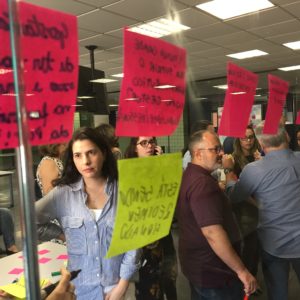
Participatory Undergrad Program Evaluation (2018)
In 2018, the Catholic University of Parana set to revise all its undergraduate programs to find opportunities for more active learning. I was invited to create a workshop model to revise each course with the participation of its stakeholders. The undergraduate courses in Pharmacy, Biotechnology, Veterinary Medicine, and Dentistry adopted my workshop model, which called […] - Oct 31, 2018 -
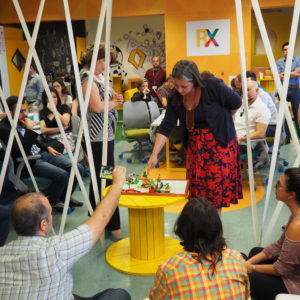
Strategic Planning for Hotmilk (2017)
Hotmilk is the Catholic University of Paraná innovation hub, connecting the university to industry, startups, and the broader innovation ecosystem. In 2017, the hub—then known as PUC Agency—underwent a major transformation through a participatory strategic planning process. Frederick facilitated this process, engaging 66 stakeholders in redefining the hub’s mission, vision, values, and operational model. PUC Agency had experimented with various […] - Oct 31, 2018 -
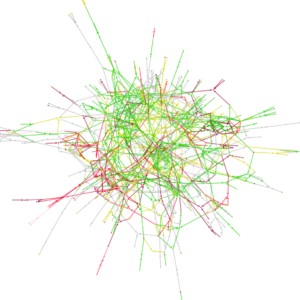
Digital Trends Observatory (2015-2017)
In the Digital Design Trends Laboratory course, my students were requested to identify one digital design trend each week and post it in a Medium publication. Since they must not repeat a trend that has already been published, the publication topped 1.700 identified trends. This publication became the largest public repository of digital design trends in […] - Oct 31, 2018 -
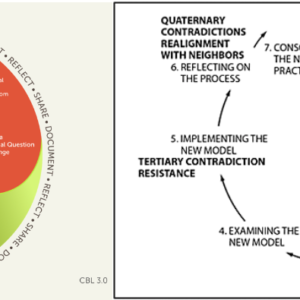
Expansive Design and Learning in a Software Studio
Unfinished post-doctoral research project at Post-Graduate Program in Informatics at PUCPR. Software studio is a pedagogical approach for learning while doing it in practice Interaction Design (CULÉN et al, 2014; BINDER et al, 2009; REIMER, 2003) as well as Software Engineering (HAZZAN, 2002; KUHN, 1998; TOMAYKO, 1996; TOMAYKO, 1991). Inspired by the way architects learn […] - Oct 31, 2018 -
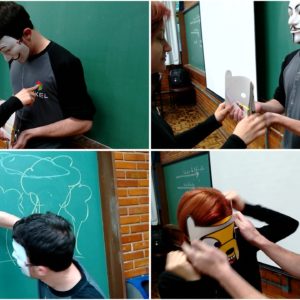
Improvised Video as a Medium for Learning and Designing Interactions
Frederick M. C. van Amstel, Rodrigo Freese Gonzatto, and Gláucio H. M. Moro. 2018. Improvised Video as a Medium for Learning and Designing Interactions. In Proceedings of the 17th Brazilian Symposium on Human Factors in Computing Systems(IHC 2018), Raquel O. Prates, Heloisa Candello, André P. Freire, Isabela Gasparini, Marcelle Mota, and Bianchi Serique (Eds.). ACM, […] - Oct 31, 2018 -
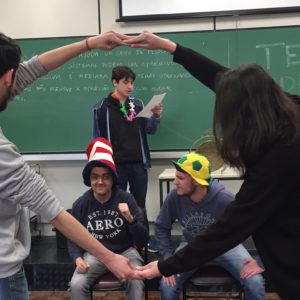 Interaction design, like theater, depends on the performances of human actors to realize its aesthetic expression. Interaction designers create software code much like theater scripts, while users often ignore them and improvise. Drawing from the analogy of Computer as Theater proposed by Brenda Laurel and the Theater of the Oppressed developed by Augusto Boal, this […] - Oct 31, 2018
Interaction design, like theater, depends on the performances of human actors to realize its aesthetic expression. Interaction designers create software code much like theater scripts, while users often ignore them and improvise. Drawing from the analogy of Computer as Theater proposed by Brenda Laurel and the Theater of the Oppressed developed by Augusto Boal, this […] - Oct 31, 2018 -
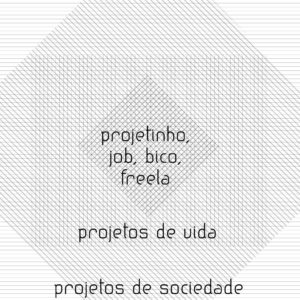 Design is often defined as a professional activity that produces physical and symbolic artifacts. However, in contemporary common parlance, the design word is also used to describe the characteristics of this professional activity’s products. Despite professionals claiming responsibility for these qualities, there is ample evidence that such qualities are not defined solely by professionals. Instead, […] - Oct 31, 2018
Design is often defined as a professional activity that produces physical and symbolic artifacts. However, in contemporary common parlance, the design word is also used to describe the characteristics of this professional activity’s products. Despite professionals claiming responsibility for these qualities, there is ample evidence that such qualities are not defined solely by professionals. Instead, […] - Oct 31, 2018 -
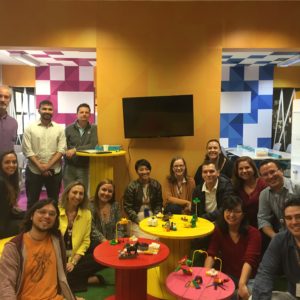
Organizational Learning in Open Innovation Ecossystems
Open Innovation inspires big companies to participate in entrepreneurial ecosystems, in the hope of promoting valuable organizational learning. Individual employees can learn together with individual entrepreneurs who are struggling to find a working business model, however, this learning might not be absorbed by the company. One of the reasons for that is the lack of […] - Oct 30, 2018 -
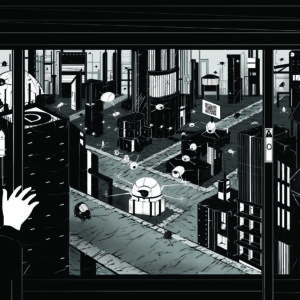
Every breath you take: Captured movements in the hyperconnected city
Firmino, R; Van Amstel, F.M.C; Gonzatto, R. F. (2018). Every breath you take: Captured movements in the hyperconnected city. In: Christoph Lindner and Miriam Meissner, The Routledge Companion to Urban Imaginaries. Routledge, London. DOI: https://doi.org/10.4324/9781315163956-14 - Oct 21, 2018 -
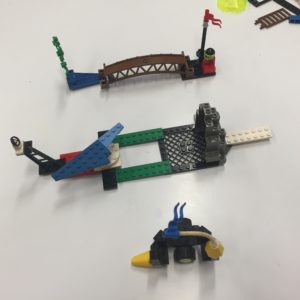 32 hours – Graduate course in Informatics program at PPGIA/PUCPR. This course introduces Human-Computer Interaction as a field for interdisciplinary research related to Computing. The main concern of this field is the behavior of humans when interacting with the computer and when interacting with other humans through the computer. Issues such as usability, accessibility, communication, […] - Aug 15, 2018
32 hours – Graduate course in Informatics program at PPGIA/PUCPR. This course introduces Human-Computer Interaction as a field for interdisciplinary research related to Computing. The main concern of this field is the behavior of humans when interacting with the computer and when interacting with other humans through the computer. Issues such as usability, accessibility, communication, […] - Aug 15, 2018 -
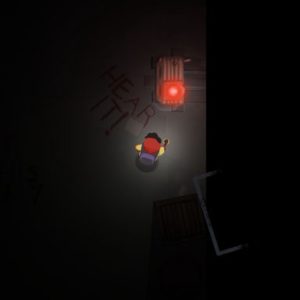
Senses: Escape the Maze (2018)
Senses is a co-op iPhone game for two players in just one device: one plays with the headphones on and eyes closed, while the other plays with the touchscreen. Players receive complimentary and exclusive information that they need to interpret together in order to survive the maze threats. This app was developed by students from […] - Jun 11, 2018 -
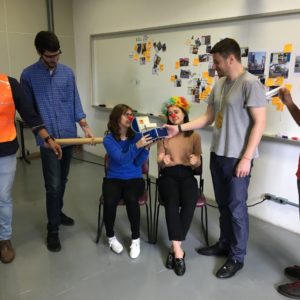 Cities and Technologies is a 30 hours graduate course from the Urban Management program from PUCPR. The course was delivered by professors Rodrigo Firmino, Fabio Duarte, Rodrigo Gonzatto, and Frederick van Amstel. After reading and discussing various articles from the field of Science, Technology, and Society (STS), the students engaged in three workshops led by […] - Apr 28, 2018
Cities and Technologies is a 30 hours graduate course from the Urban Management program from PUCPR. The course was delivered by professors Rodrigo Firmino, Fabio Duarte, Rodrigo Gonzatto, and Frederick van Amstel. After reading and discussing various articles from the field of Science, Technology, and Society (STS), the students engaged in three workshops led by […] - Apr 28, 2018 -
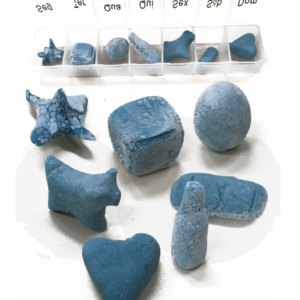
Emotion freezer cultural probe
Emotion freezer cultural probe (2018) was a short talk given at PUCPR teaching seminar. In order to understand the pressures that students experience in their daily lives and to use them as a project theme in the Interaction Design course, a Cultural Probe called emotion freezer was sent to each student. This probe was made […] - Apr 27, 2018 -
 2020XP was an immersive experience held by Aldeia Coworking to draw attention to the development of 21st-century skills in organizations. The experience was spread through 5 different locations across the city, each with its own theme. Frederick was responsible for the creativity experience, which used Lego to stimulate creativity in many different ways. The goal […] - Apr 26, 2018
2020XP was an immersive experience held by Aldeia Coworking to draw attention to the development of 21st-century skills in organizations. The experience was spread through 5 different locations across the city, each with its own theme. Frederick was responsible for the creativity experience, which used Lego to stimulate creativity in many different ways. The goal […] - Apr 26, 2018 -
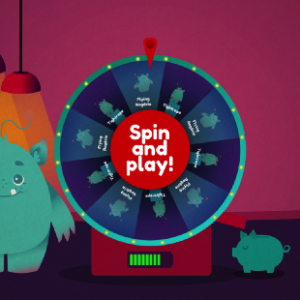 Rogério Virtual Pet is an Apple TV app for parents who want to teach good habits to kids without steering them too much. The virtual pet lives like a tamagotchi that grows and interact with kids about their daily responsibilities. The app was created by students of the Apple Developer Academy PUCPR 2018 cohort. - Jan 11, 2018
Rogério Virtual Pet is an Apple TV app for parents who want to teach good habits to kids without steering them too much. The virtual pet lives like a tamagotchi that grows and interact with kids about their daily responsibilities. The app was created by students of the Apple Developer Academy PUCPR 2018 cohort. - Jan 11, 2018 -
 Brisa promotes the interaction and development of emotions through the deconstruction of the TV as we know it, creating an environment of projection. With this it is possible to transcend emotional states provided by the place, dark with a unique light source and surrounding songs, that enhance the interactive contact of people, leaving them more […] - Dec 27, 2017
Brisa promotes the interaction and development of emotions through the deconstruction of the TV as we know it, creating an environment of projection. With this it is possible to transcend emotional states provided by the place, dark with a unique light source and surrounding songs, that enhance the interactive contact of people, leaving them more […] - Dec 27, 2017 -
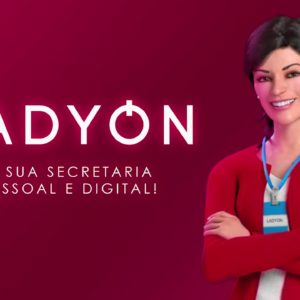 Time Crisis (2017) is a speculative design mockumentary that provides a different explanation for Brazilian President Dilma Rousseff’s impeachment in 2016. After the next elections in 2018, several public actors acknowledged that President Rousseff was removed from office without sound evidence, which fueled the thesis of a parliamentary white coup. The mockumentary tells a different […] - Nov 2, 2017
Time Crisis (2017) is a speculative design mockumentary that provides a different explanation for Brazilian President Dilma Rousseff’s impeachment in 2016. After the next elections in 2018, several public actors acknowledged that President Rousseff was removed from office without sound evidence, which fueled the thesis of a parliamentary white coup. The mockumentary tells a different […] - Nov 2, 2017 -
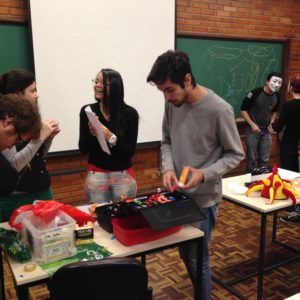
Designing oppressive and libertarian interactions with the conscious body
Gonzatto, R. F., & van Amstel, F. M. (2017, October). Designing oppressive and libertarian interactions with the conscious body. In Proceedings of the XVI Brazilian Symposium on Human Factors in Computing Systems (pp. 1-10). ACM, New York, NY, USA, Article 22, 10 pages. DOI: https://doi.org/10.1145/3160504.3160542 - Oct 31, 2017 -
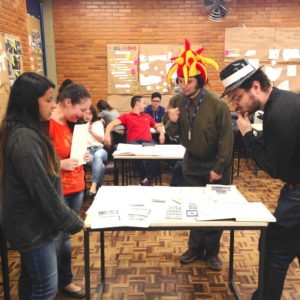
Barriers to design studio pedagogy
Barriers to design studio pedagogy (2017) was a short talk given at PUCPR teaching seminar. The main barriers for conducting the studio pedagogy in the Digital Design undergraduate course were: the fragmentation of the course in isolated topics, the lack of autonomy of students, the academic requirements of the final work and the divergence of […] - Apr 27, 2017 -
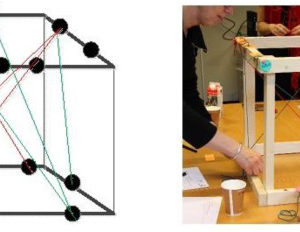
Making dilemmas explicit through the use of a cognitive mapping collaboration tool
Castaño, J. M., van Amstel, F., Hartmann, T., & Dewulf, G. (2017). Making dilemmas explicit through the use of a cognitive mapping collaboration tool. Futures, 87, p. 37–49. https://doi.org/10.1016/j.futures.2017.01.006 - Feb 20, 2017 -
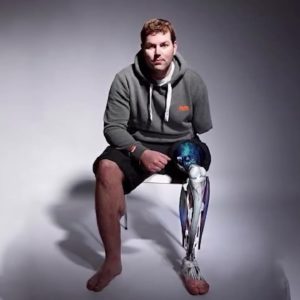
Prosthesis: The Next Level (2016)
Prosthesis: The Next Level (2016) is a speculative design mockumentary about the controversy generated by replacing healthy human limbs for advanced prosthetics in Curitiba, where great advancements in the field supposedly occurred. The mockumentary engaged with Curitiba’s municipal elections, particularly with a mayor candidate’s proposal to recover the city’s position as an international reference on […] - Nov 2, 2016 -

Design ethnography with activity theory
Design ethnography is a field study method that aims at uncovering user needs and innovation opportunities. Through this method, anthropologists can help understand the context, bringing up semantic, emotional, and social issues that may represent innovation opportunities. However, most design ethnographies are not carried out by trained anthropologists. Design ethnography is typically conducted by designers themselves, […] - Oct 28, 2016 -
 I have developed for my Design Thinking course a comprehensive explanation on how design can be part of big transformations in society. Instead of making changes to society, as in the paradigm of “social impact”, I teach my students to discover transformations already in course, understand them, and support them. The concept of contradiction is key to my approach: a unite […] - Oct 28, 2016
I have developed for my Design Thinking course a comprehensive explanation on how design can be part of big transformations in society. Instead of making changes to society, as in the paradigm of “social impact”, I teach my students to discover transformations already in course, understand them, and support them. The concept of contradiction is key to my approach: a unite […] - Oct 28, 2016 -
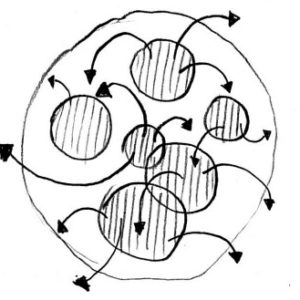 In the first lecture of my Design Thinking course, I gave a historical perspective on the evolution of the design object. According to my thesis work, the object of design expanded in the last century from complex entities to emergent performances, such as experiences, interactions and business. The characteristics of this object are: It includes the user behavior, as […] - Sep 16, 2016
In the first lecture of my Design Thinking course, I gave a historical perspective on the evolution of the design object. According to my thesis work, the object of design expanded in the last century from complex entities to emergent performances, such as experiences, interactions and business. The characteristics of this object are: It includes the user behavior, as […] - Sep 16, 2016 -
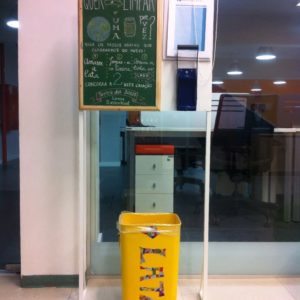
PIBEP Entrepreneurial scholarship program
PIBEP is an innovative scholarship program offered by PUCPR. Students receive money and mentoring to develop their own business ideas. I codesigned the program with Business School professors, taught a design thinking workshop and mentored design-led startups. The program is intensive and fun. Students must work in multidisciplinary teams and test their ideas as soon as possible […] - Sep 13, 2016 -

Renault Experience 2.0 (2016-2017)
Renault Experience is a competition run by Renault car manufacturing company in partnership with Brazilian universities. Students form teams and develop new mobility services or products within an online platform. The platform guide students to developed their ideas using a design thinking framework I developed. The framework was developed using the UX Cards planning tool. The open innovation […] - Sep 13, 2016 -
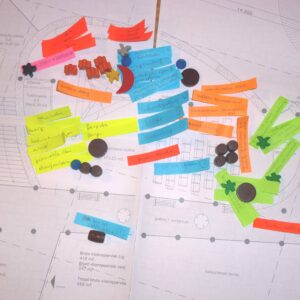 Design games are created for specific projects or reused from past projects to develop concepts that have real consequences in a participatory project. The outcomes of these games serve not only to inform but also to guide, plan, and frame the project, creating an environment conducive to more creative and informed decision-making. These games often […] - Sep 10, 2016
Design games are created for specific projects or reused from past projects to develop concepts that have real consequences in a participatory project. The outcomes of these games serve not only to inform but also to guide, plan, and frame the project, creating an environment conducive to more creative and informed decision-making. These games often […] - Sep 10, 2016 -
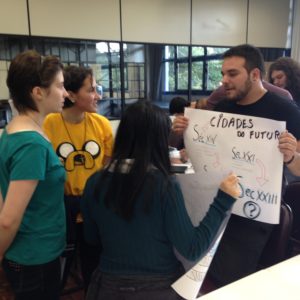 Regular course – 160 hs – Digital Design Bachelor – Catholic University of Paraná This course guides Digital Design students in their final work assignment. The assignment consists of developing a project in any domain of Digital Design: digital video, games, animation and hypermedia. Students have total freedom to do what they want in their projects, however, they […] - Aug 8, 2016
Regular course – 160 hs – Digital Design Bachelor – Catholic University of Paraná This course guides Digital Design students in their final work assignment. The assignment consists of developing a project in any domain of Digital Design: digital video, games, animation and hypermedia. Students have total freedom to do what they want in their projects, however, they […] - Aug 8, 2016 -
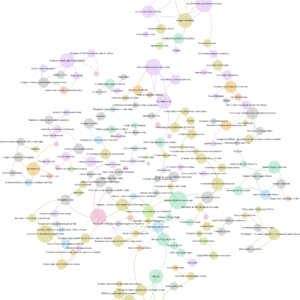
Digital Design Trends Laboratory
Regular course – 40hs – Digital Design Bachelor – Catholic University of Paraná This course helps students find a relevant topic for their final graduation work. They learn how to deal with trends and receive the task to identify today’s digital design trends. The trends identified are published in an online magazine. At the end […] - Aug 8, 2016 -
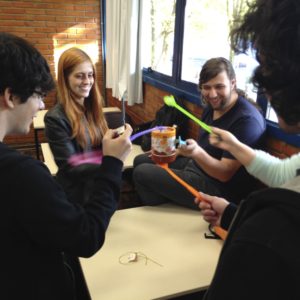
Interaction Design (a.k.a The Anthropophagic Studio)
Regular course – 80 hs – Digital Design Bachelor – Catholic University of Paraná (PUCPR) – Taught together with Rodrigo Gonzatto This course develops students’ creative and critical skills related to technology and society. Since the Digital Design Bachelor has already separate courses on Usability, Information Architecture, Ergonomics, and Interface Design, the Interaction Design course focuses […] - Aug 8, 2016 -
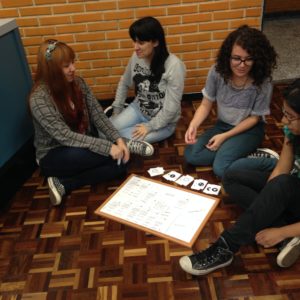 Regular course – 40hs – Digital Design Bachelor – Catholic University of Paraná Information architecture is presented as a means to structure, organize and access information in diverse systems. The course introduces the 7 process of Information Architecture: planning, gathering, classifying, managing, navigating, visualizing and retrieval. During the class, practical exercises are proposed for each process. […] - Aug 8, 2016
Regular course – 40hs – Digital Design Bachelor – Catholic University of Paraná Information architecture is presented as a means to structure, organize and access information in diverse systems. The course introduces the 7 process of Information Architecture: planning, gathering, classifying, managing, navigating, visualizing and retrieval. During the class, practical exercises are proposed for each process. […] - Aug 8, 2016 -
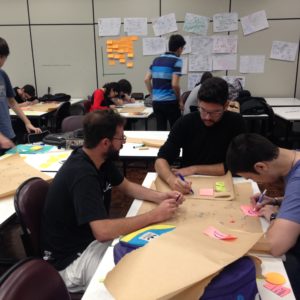 45 hours – Graphic Design – PUCPR. This is an elective course offered to students from any of the bachelors of Catholic University of Paraná. The purpose was to provide them the opportunity to develop multidisciplinary projects based on the design thinking approach. Syllabus: Typology of design thinking, wicked problems, co-creation, grassroots design, participatory design, design […] - Aug 7, 2016
45 hours – Graphic Design – PUCPR. This is an elective course offered to students from any of the bachelors of Catholic University of Paraná. The purpose was to provide them the opportunity to develop multidisciplinary projects based on the design thinking approach. Syllabus: Typology of design thinking, wicked problems, co-creation, grassroots design, participatory design, design […] - Aug 7, 2016 -
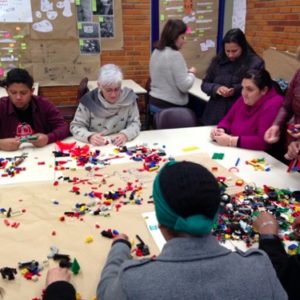
Design Livre: designing locally, cannibalizing globally
Van Amstel, Frederick M.C., and Rodrigo Freese Gonzatto. (2016) “Design Livre: designing locally, cannibalizing globally.” XRDS: Crossroads, The ACM Magazine for Students, 22(4), p.46-50. https://doi.org/10.1145/2930871 - Jun 28, 2016 -
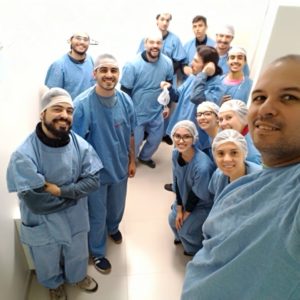
HIPUC Health innovation program
HIPUC is PUCPR’s program to nurture an international ecosystem of health startups and innovators in Curitiba. The program was developed in partnership with Stanford University, Johnson & Johnson, Philips and others. I was responsible for organizing the Design Shop, an immersive training at Marcelino Champagnat hospital. The students studied the hospital activities and created innovative services inside the […] - Jun 13, 2016 -
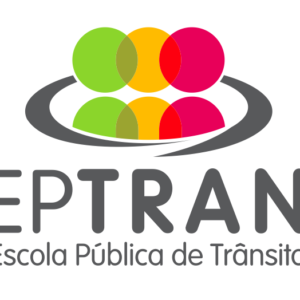
Curitiba Traffic Education School visual identity (2016)
EPTRAN, Curitiba’s traffic education school, needed to codesign a logo with its supporting community. I helped them to organize a workshop in which traffic agents, mobility activists, teachers and drivers codesigned a visual identity for the school. The workshop used various techniques to support people in understanding the design possibilities and considering alternatives from their knowledge […] - May 13, 2016 -
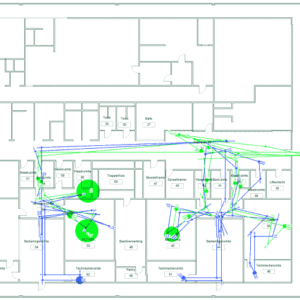
The social production of design space
Van Amstel, F.M.C; Hartmann, T; Voort, M. van der and Dewulf, G.P.M.R. The social production of design space, Design Studies, 46, 2016, p. 199–225. DOI: https://doi.org/10.1016/j.destud.2016.06.002 - May 2, 2016 -
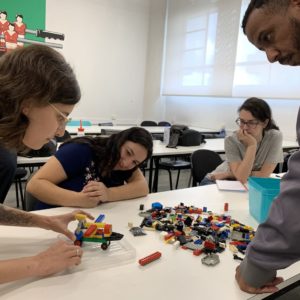 Educational Game Design is a 45 hours graduate course from the Design program of Federal University of Paraná (UFPR). The course was delivered in collaboration with prof. Andre Battaiola. The syllabus includes readings on Game Design and Cultural Historical Activity Theory. The initial classes reproduced some experiments with entertainment and educational games. The Silent Game […] - Apr 28, 2016
Educational Game Design is a 45 hours graduate course from the Design program of Federal University of Paraná (UFPR). The course was delivered in collaboration with prof. Andre Battaiola. The syllabus includes readings on Game Design and Cultural Historical Activity Theory. The initial classes reproduced some experiments with entertainment and educational games. The Silent Game […] - Apr 28, 2016 -
Design thinking applied to the final work
Design thinking applied to the final work (2016) was a short talk given at PUCPR teaching seminar. The talk shares the experience of using design thinking for supporting Digital Design students in their final work. The approach was useful for finding themes according to user and audience needs and desires. Through organized collaboration between students, […] - Apr 27, 2016 -
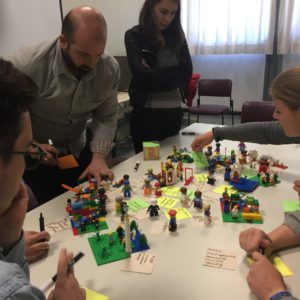
Smart Urban Mobility Lab (2016-2018)
The Smart Urban Mobility Lab (SUM-LAB) is an initiative by two local universities – the Pontifical Catholic University of Paraná (PUCPR) and the Federal University of Technology Paraná (UTFPR) – and the University of Twente with the support of the City of Curitiba. Researchers from the partners will work together in the SUM-LAB to formulate the […] - Apr 20, 2016 -
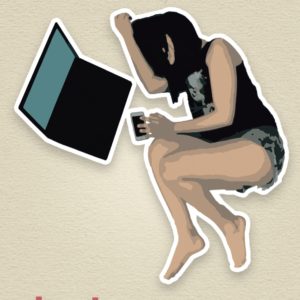 Deixe_me is an interactive short movie produced by Erick Gustavo e Marta Heupa for their final work in Digital Design to address the contradiction between the need for self-presentation and the risk of cyberbullying in social media. Students began by investigating overexposure in social media. They were invited to discuss the topic with high school […] - Mar 31, 2016
Deixe_me is an interactive short movie produced by Erick Gustavo e Marta Heupa for their final work in Digital Design to address the contradiction between the need for self-presentation and the risk of cyberbullying in social media. Students began by investigating overexposure in social media. They were invited to discuss the topic with high school […] - Mar 31, 2016 -
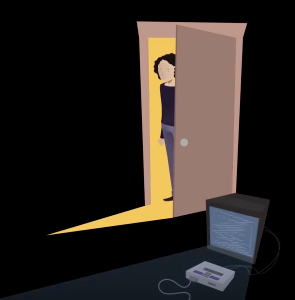 This is a short animation movie produced by Marcos Balbinot for his final work in Digital Design to express his experience of going through depression. The movie conveys the prejudices people face with this mental condition in an attempt to reduce it. The movie has attracted more than 80.000 viewers and hundreds of comments on […] - Mar 31, 2016
This is a short animation movie produced by Marcos Balbinot for his final work in Digital Design to express his experience of going through depression. The movie conveys the prejudices people face with this mental condition in an attempt to reduce it. The movie has attracted more than 80.000 viewers and hundreds of comments on […] - Mar 31, 2016 -
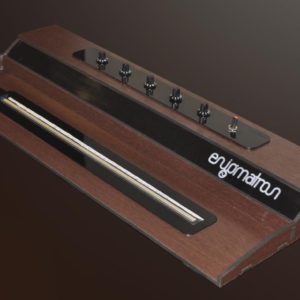 Enigmatron is an analog synthesizer designed by Diogo Mattana to explore the subtleties of musical sound. The synthesizer is based on a tape potentiometer that modulates the digital sound according to the wishes of the musician. In the context of a Digital Design bachelor, this final work is not just a functional prototype, but also […] - Mar 31, 2016
Enigmatron is an analog synthesizer designed by Diogo Mattana to explore the subtleties of musical sound. The synthesizer is based on a tape potentiometer that modulates the digital sound according to the wishes of the musician. In the context of a Digital Design bachelor, this final work is not just a functional prototype, but also […] - Mar 31, 2016 -
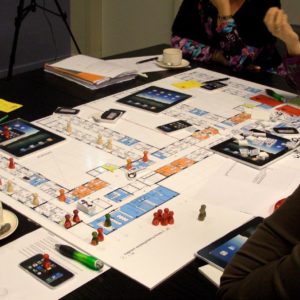
The Transformative Potential of Game Spatiality in Service Design
Van Amstel, Frederick M.C. and Garde, Julia. Games to explore the possibilities of space and the space of possibilities in service design. Simulation & Gaming, 47 (5), 2016, p. 628-650. https://doi.org/10.1177/1046878116635921 - Mar 4, 2016 -
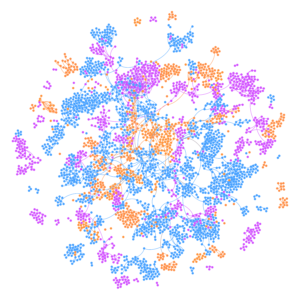 The Expansive Design thesis relies on a historical analysis method supported by an IBIS with graphical maps (Compendium). The graphical maps used for data collection and analysis are available online. Some parts of the maps are not included to preserve the identity of the participants and the organizations involved. Alternatively, you can download the research data [ZIP] and […] - Feb 15, 2016
The Expansive Design thesis relies on a historical analysis method supported by an IBIS with graphical maps (Compendium). The graphical maps used for data collection and analysis are available online. Some parts of the maps are not included to preserve the identity of the participants and the organizations involved. Alternatively, you can download the research data [ZIP] and […] - Feb 15, 2016 -
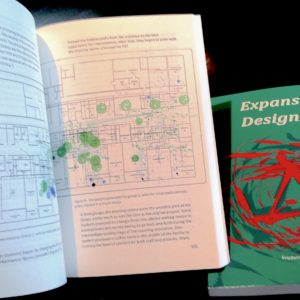
PhD thesis – Expansive design: designing with contradictions
A quick guide to this thesis: Abstract: This thesis looks at the practice of design as it emerges in architectural design and service design. The lens adopted considers design both as an activity as well as a space full of contradictions, which are accumulated tensions. Design activity is a professional occupation that interacts with other […] - Dec 14, 2015 -
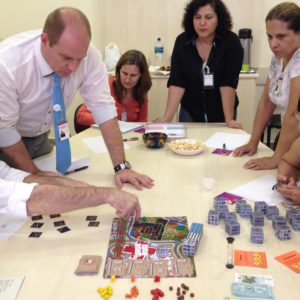
Organization change at a major hospital (2015)
A university hospital in Paraná faced severe coordination challenges between the surgery unit, materials unit, and surgery center. Political conflicts among these departments disrupted patient care while the hospital underwent an extensive organizational overhaul to address corruption and mismanagement. I was invited to conduct a pilot study to assess whether my design games could foster […] - Dec 13, 2015 -
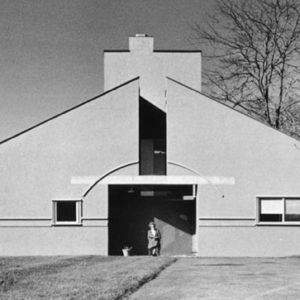
Representing contradictions without trying to solve them
Design-oriented ethnography seeks to find opportunities for innovation in social activities. Disturbances, tensions, and conflicts are sometimes used to ground or justify these opportunities, as if they could be avoided by an innovation. Ethnographers know that social contradictions cannot be resolved by design since they depend on collective endeavors; however, they still need to provide […] - Nov 20, 2015 -
 Expansive design is a concept defined by psychologist Yrjö Engeström to characterize a particular way of doing interaction design which I developed further in my PhD thesis. It means expanding the design activity towards the use activity, or in other words, connecting them together. This connection is characterized by co-creation; instead of merely producing objects […] - Nov 20, 2015
Expansive design is a concept defined by psychologist Yrjö Engeström to characterize a particular way of doing interaction design which I developed further in my PhD thesis. It means expanding the design activity towards the use activity, or in other words, connecting them together. This connection is characterized by co-creation; instead of merely producing objects […] - Nov 20, 2015 -
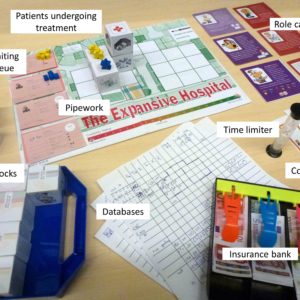
Expensive or expansive? Learning the value of boundary crossing in design projects
Amstel, F. M.C. van; Zerjav, V; Hartmann, T; Dewulf, G.P.M.R; Voort, M.C. van der. 2016. Expensive or expansive? Learning the value of boundary crossing in design projects. Engineering Project Organization Journal, 6 (1), Pages 15-29. DOI: https://doi.org/10.1080/21573727.2015.1117974 - Nov 18, 2015 -
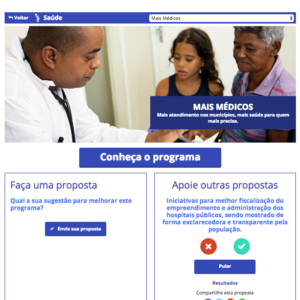
Dialoga app and Social Participation Living Lab (2015)
Brazil former president Dilma Rousseff wanted to improve the participation of society in the decisions of the federal government and ordered the creation of a Social Participation Secretary at the beginning of 2015. By that time I just returned to Brazil after my four years as a PhD student in the Netherlands. Ms. Rousseff officers asked my help […] - Aug 13, 2015 -
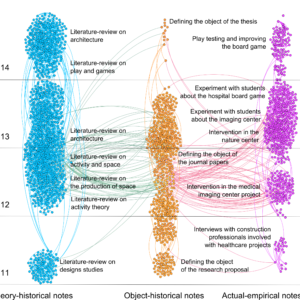
Regressive-progressive historical analysis
The Expansive Design thesis was crafted on the historical analysis methods used in Cultural Historical Activity Theory (Engeström) and Production of Space Theory (Lefebvre). This page explains in detail how data was collected and analyzed. The open data is publicly available for browsing. Historical analysis in the production of space is called regressive-progressive (Lefebvre, 1991; […] - Aug 11, 2015 -
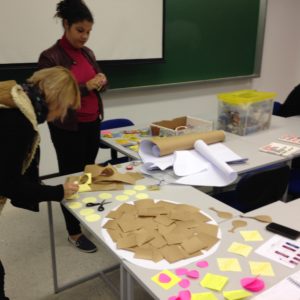 Regular discipline – 16 hs – Post-graduation in Digital Business – Positivo University In this course, students learn how to attract and retain users of a service. They develop their service ideas through a teaching game called Ideas Market, explained in the video below. The class becomes a studio for service design entrepreneurs. Low tech materials […] - Aug 11, 2015
Regular discipline – 16 hs – Post-graduation in Digital Business – Positivo University In this course, students learn how to attract and retain users of a service. They develop their service ideas through a teaching game called Ideas Market, explained in the video below. The class becomes a studio for service design entrepreneurs. Low tech materials […] - Aug 11, 2015 -
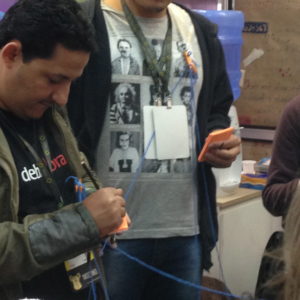
The Conceal and Show Game (2015)
The way Facebook conceals or shows up messages in the news feed is a mystery to most users. Facebook gives the impression that if a user posts a status update, all of her friends receive it in the timeline, but that is not always true. The Edgerank algorithm decides what is shown in the timeline based on three variables: This abstract […] - Jul 31, 2015 -
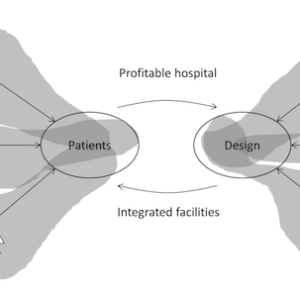 The boundaries between humans and collective association of humans are one of the most dynamic resources for work and development. Nature generated physical affordances that hinder human movement, but humans barely ever accept them. Humans open pathways through jungles, build bridges across rivers, and fly over the ocean. Nevertheless, humans draw their own boundaries too […] - Jul 18, 2015
The boundaries between humans and collective association of humans are one of the most dynamic resources for work and development. Nature generated physical affordances that hinder human movement, but humans barely ever accept them. Humans open pathways through jungles, build bridges across rivers, and fly over the ocean. Nevertheless, humans draw their own boundaries too […] - Jul 18, 2015 -

The homogenization of differences
The competition for exchange value has shaped the space of capitalist societies. In order to compete in the global market, the land, the cities, and the homes are becoming more alike across the world. People are trying to use space in similar ways due to the possibility of surviving from exchanges in the global market. This phenomenon […] - Jul 17, 2015 -
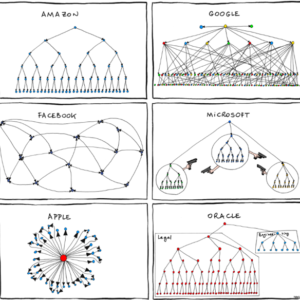
The collaboration for use value
The basic assumption of capitalism that companies make money from valuable products is being challenged by recent market changes. Products are no longer considered valuable only for sales’ performance. They must perform well after the sales, i.e. in use, otherwise sales may drop. The use value (a.k.a. value in use) corresponds to the product applications found […] - Jun 10, 2015 -
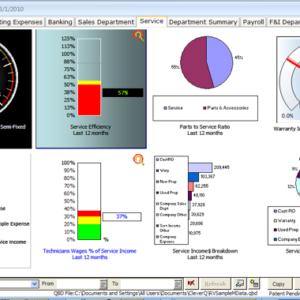
The competition for exchange value
Value is an expected outcome or the effective outcome of using an object. If the object is useful, the value should be higher, however, that is not the case in a capitalist economy. If many people possess the object and are willing to exchange it, the value is lower, no matter how useful the object […] - May 5, 2015 -
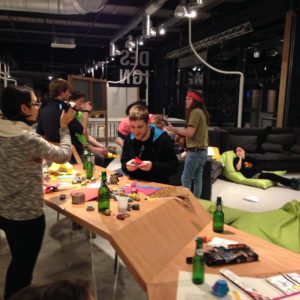
Guanabana thing at the DesignLab (2014)
As part of the Collaborative Future Making master class, a group of students (Thijs Baltes, Alex Ceha, Riccardo Rigo and Isabel Pfab) designed a thing to intervene with the incipient DesignLab at the University of Twente. The group mapped the contradiction that was pressing the DesignLab development at its early stage: the lack of a […] - Apr 21, 2015 -
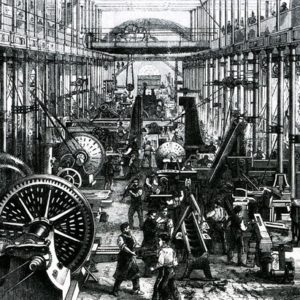
The spatialization of workflow
At the beginning of the industrial revolution, workspaces were scattered over factory plans in no rational order. They naturally emerged around stationary large products, machines, and tool sets. The rise of the assembly line brought a new strategy for factory space: the spatialization of the workflow, i.e. to ascribe tasks to certain spaces and to […] - Mar 25, 2015 -
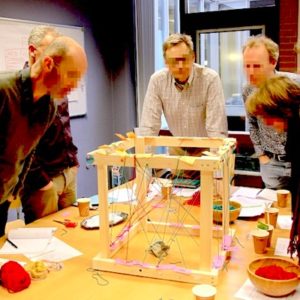
Flood protection area planning (2015)
Grebbedijk is a flood protection complex around Wageningen and Utrecht, The Netherlands. The stakeholders are considering adding extra functions to the area in order to generate more economic activity and nature-oriented leisure. The project is facing dilemmas because the available strategies present both advantageous and disadvantageous effects. For example, enlarging the harbor is deemed to […] - Mar 25, 2015 -
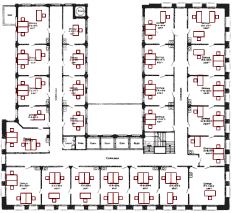
The flexibilization of workspaces
The organizations interested in the co-creation of knowledge are making workspaces more flexible to enable temporary project-specific adaptations, casual encounters, and unplanned team work. However, the flexibilization of workspaces is pursued by organizations interested in the optimization of work processes too, with a different motivation: they want to shrink or grow the employee base at the […] - Mar 24, 2015 -
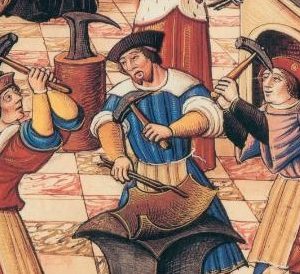
The optimization of work processes
Work has been a traditional human activity for millennia, evolving into the many directions that needs and curiosity brings about. Since the industrial revolution, though, work is being channeled towards one direction: maximizing the collective productivity. The first implication of this redirection is the split between the worker and the work process, which is then […] - Mar 22, 2015 -
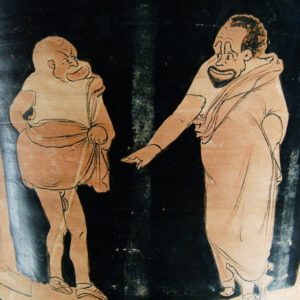 Knowledge production in ancient Greece was the privilege of a few men. They had slaves of their own or they benefit indirectly from slave labor. By handling the basic activities of survival to slaves, they could concentrate on the higher activity of thinking. Already in Greece, there was a divide between those who possess knowledge […] - Mar 18, 2015
Knowledge production in ancient Greece was the privilege of a few men. They had slaves of their own or they benefit indirectly from slave labor. By handling the basic activities of survival to slaves, they could concentrate on the higher activity of thinking. Already in Greece, there was a divide between those who possess knowledge […] - Mar 18, 2015 -
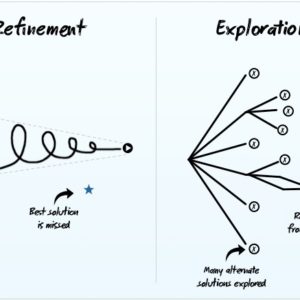
The alienation of design possibilities
The progressive contraction of design representations is synchronized with the alienation of design possibilities. Alienation means that some of the design possibilities are taken out of the design space and, therefore, never considered. These possibilities are put aside for being unacceptable, unthinkable, or unknown. This can happen by many reasons. In the socialization of the […] - Mar 16, 2015 -
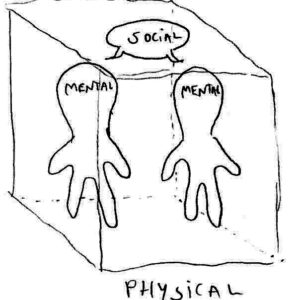
The socialization of the design space
The expansion of the design object from materials to experiences is synchronized with the socialization of the design space. The design space can be understood in three ways: Saying that, I believe there is a strong link between the physical, the social and the mental, one feeding the other. In that sense, the design space […] - Mar 16, 2015 -
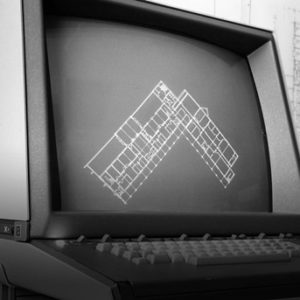
The contraction of design representations
In the last post, I described the expansion of the design object in the last centuries. This process is followed by another historical change in the opposite direction. Instead of expanding together with the object, the design representations are becoming smaller and more precise. The representations are being contracted in the hopes of corralling the […] - Mar 12, 2015 -
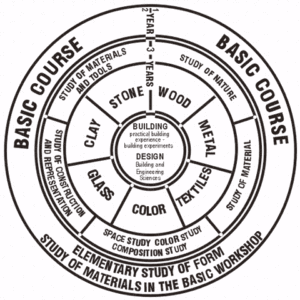
The expansion of the design object: from materials to experiences
The object of design was once easy to grasp. If we look at the first Bauhaus curriculum, we see the prominent role the building materials played in the designer’s formation. The aspiring designer was supposed to master these materials and tranform them into aesthetical compositions. At this time, the materials were the design object: concrete, […] - Mar 9, 2015 -
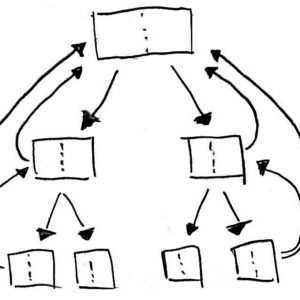
Reductionism and expansionism in design theory
In the readings of my PhD research, I came across the term reductionism a lot. This term is used to criticize or warn against the trap of analyzing social phenomena in a somewhat restricted way, with no clear definition of its own. After years of reading those uses, I got a tacit understanding of what […] - Feb 23, 2015 -
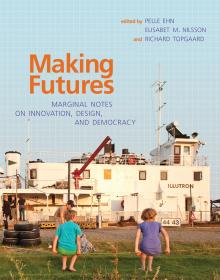 Prof. Pelle Ehn from Malmö University gave a Masterclass (45 hours) at the University of Twente about the latest advances in his research group from the 2nd of February to the 17th of April of 2015, as part of the initial activities of the UT DesignLab. This course was based on a book called Making Futures. Frederick assisted […] - Jan 19, 2015
Prof. Pelle Ehn from Malmö University gave a Masterclass (45 hours) at the University of Twente about the latest advances in his research group from the 2nd of February to the 17th of April of 2015, as part of the initial activities of the UT DesignLab. This course was based on a book called Making Futures. Frederick assisted […] - Jan 19, 2015 -
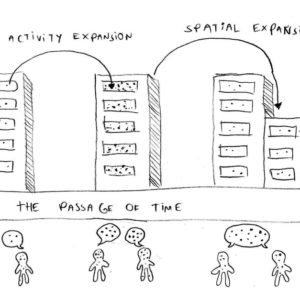
Sketching an expansive design definition
While writing my thesis, I make visual and textual sketches. Most of the times, these sketches are replaced later by a well-thought text, typically without the pictures. The sketches are removed because they cannot withstand scientific criticism, but they might be useful to communicate to a broader audience. With that in mind, I’m publishing the […] - Jan 12, 2015 -
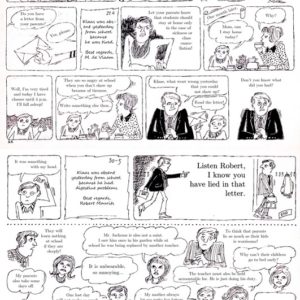
How to represent contradictions
Contradictions are social tensions that accumulate in the history of a society. When they reach the peak, conflicts come to the surface and society has to take action to change what is feeding the contradiction. In simple words, it is necessary to attack the root of the problem. There are design approaches that try to […] - Jan 5, 2015 -

Double stimulation experiments
For my PhD research, I had to do some experiments in design education. Design education is characterized by a learning-by-doing approach when the learner is pushed to take the lead of experimentation. This represents a problem for design educators who also want to test the research hypothesis within teaching activities since it is not easy […] - Dec 20, 2014 -
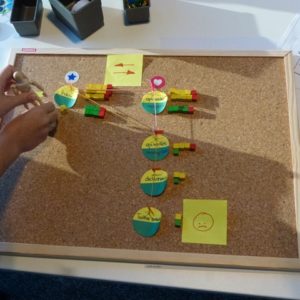
Low-tech to high-tech visualization
The World Usability Day was for the first time organized here at the University of Twente. In this event, I shared a practical output of my PhD research: a method to gather user data using low-tech materials. The method consists of collecting data through low-tech visualization and using the data to build high-tech visualizations, following […] - Nov 25, 2014 -
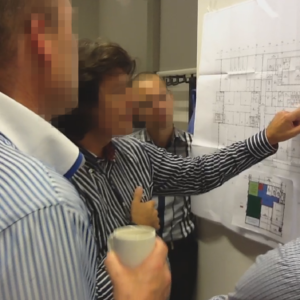 Zerjav, V., Hartmann, T., & van Amstel, F. M. (2014). A leadership-as-practice perspective on design in architecture, engineering and construction projects: interaction analysis of a collaborative workshop. Engineering Project Organization Journal, 4(4), 1-13. DOI: http://dx.doi.org/10.1080/21573727.2014.970177 - Oct 21, 2014
Zerjav, V., Hartmann, T., & van Amstel, F. M. (2014). A leadership-as-practice perspective on design in architecture, engineering and construction projects: interaction analysis of a collaborative workshop. Engineering Project Organization Journal, 4(4), 1-13. DOI: http://dx.doi.org/10.1080/21573727.2014.970177 - Oct 21, 2014 -
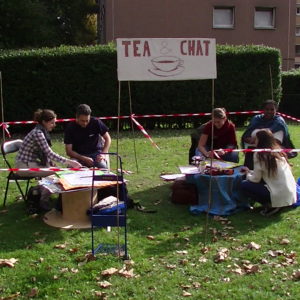
High-speed train social impact study (2014)
This study conducted by Architecture Sans Frontières UK aimed to highlight the social impact to be caused by the high-speed train connection to Birmingham, HS2. The connection will cost around 50 billion Pounds and will transform part of London into a big construction site. To accommodate the expansion of the Euston Station, 3 to 6 housing […] - Sep 25, 2014 -
 I read the reports from the Change by Design workshops in Brazil, Kenya and Ecuador and decide to join the next in the UK. These workshops are organized by Architecture Sans Frontières UK, a non-profit that aims to bring forth community engagement in architecture practice and teaching. The workshops are based on participatory design sessions […] - Sep 18, 2014
I read the reports from the Change by Design workshops in Brazil, Kenya and Ecuador and decide to join the next in the UK. These workshops are organized by Architecture Sans Frontières UK, a non-profit that aims to bring forth community engagement in architecture practice and teaching. The workshops are based on participatory design sessions […] - Sep 18, 2014 -
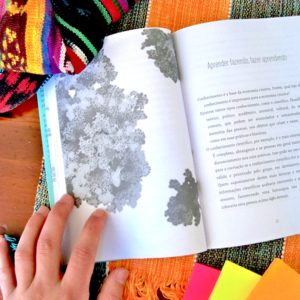 Coralizando is a collaboration guide for the creative economy. This book was written as a companion to Corais, an online platform for collaborative project management. The users of the platform suggested writing the book after the success of the Design Livre book, to feed new platform users with the concepts for organizing grassroots projects. The text […] - Sep 13, 2014
Coralizando is a collaboration guide for the creative economy. This book was written as a companion to Corais, an online platform for collaborative project management. The users of the platform suggested writing the book after the success of the Design Livre book, to feed new platform users with the concepts for organizing grassroots projects. The text […] - Sep 13, 2014 -
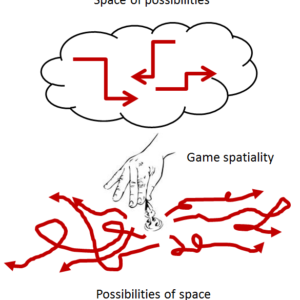 I’m developing a concept to understand how board games are employed to produce a social space among the players where conflict is enacted and worked out. Game spatiality is the sense of being in a space produced by playing a particular game. This sense is gradually developed through the bodily actions of players trying to […] - Aug 14, 2014
I’m developing a concept to understand how board games are employed to produce a social space among the players where conflict is enacted and worked out. Game spatiality is the sense of being in a space produced by playing a particular game. This sense is gradually developed through the bodily actions of players trying to […] - Aug 14, 2014 -
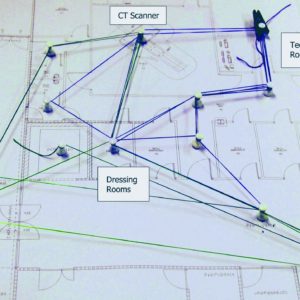
Expanding the representation of user activities
Van Amstel, F. M.C., Zerjav, V., Hartmann, T., van der Voort, M. C., & Dewulf, G. P. (2015). Expanding the representation of user activities. Building Research & Information, 43(2), 1-16. DOI: https://doi.org/10.1080/09613218.2014.932621 - Jul 15, 2014 -
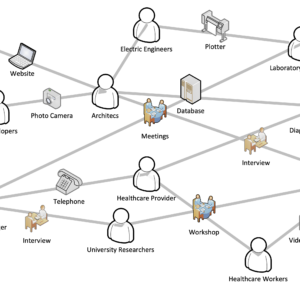
Participation and transdisciplinarity
Participation is an issue that crosses the boundaries of a single discipline. Its fundamental assumption is that people can make better decisions together than led by a single discipline. To approach participation in the renovation of healthcare facilities, it is important to consider disciplines concerned with the built environment – Architecture, Engineering, and Construction (AEC), […] - May 15, 2014 -
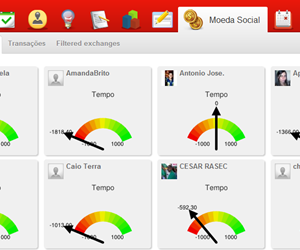
Design livre at Corais Platform: an experience in cultivating a design commons with free software
Van Amstel, Frederick; Gonzatto, Rodrigo Freese; Jatobá, Pedro Henrique. (2020) Design livre at Corais Platform: an experience in cultivating a design commons with free software. Workshop Designing commons – Commons for design (position paper), DRS 2014 conference, Umeä, Sweden. - Apr 21, 2014 -
I just made a pecha-kucha presentation about my PhD research in 6’40”. I try to explain what I mean with Expansive Design, the design approach I’m building up that takes advantage of social contradictions, instead of trying to solve them. Contradictions are social relationships that have a long history and cannot be solved by any […] - Mar 12, 2014
-
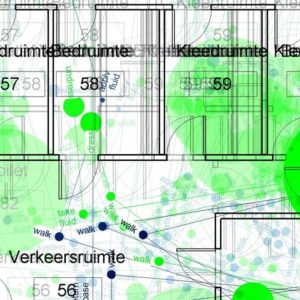
Contradictions in the design space
van Amstel, F., Zerjav, V., Hartmann, T., van der Voort, M., and Dewulf, G. (2014) Contradictions in the design space, in Lim, Y., Niedderer, K., Redström, J., Stolterman, E. and Valtonen, A. (eds.), Design’s Big Debates – DRS International Conference 2014, 16-19 June, Umeå, Sweden. https://dl.designresearchsociety.org/drs-conference-papers/drs2014/researchpapers/99 - Feb 17, 2014 -
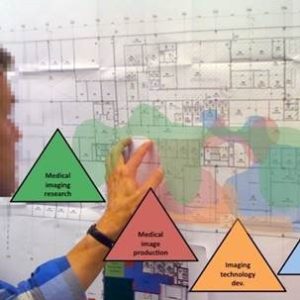
Grounding the flying triangle: activity theory and the production of space
Amstel, F.M.C. van; Hartmann, T; Voort, M. van der; Dewulf, G.P.M.R. (2014) Grounding the flying triangle: activity theory and the production of space. In: Proceedings of the European Group for Organizational Studies Colloquium, Rotterdam. - Feb 14, 2014 -
Using smartboards to enable user participation in architecture
Last week, I demoed my Walking Paths application at 3TU Innovation & Technology conference using a Smartboard that allows touch and pen interaction. To explain how it enables user participation in architecture, I presented a model of the building where the conference was held and asked visitors to draw the path they took across the […] - Dec 9, 2013 -
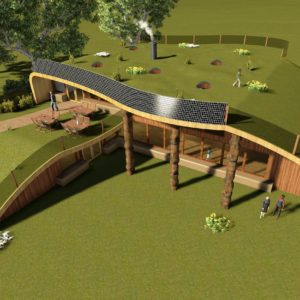
Natuurhus Almelo Nature Center (2013)
Different nature-related associations join forces to build a nature center in the middle of a small city in The Netherlands. My role in the project was to interview the stakeholders and provide a map of controversies around the project requirements. After mapping controversies, I helped them to organize a workshop where these controversies would be […] - Nov 13, 2013 -
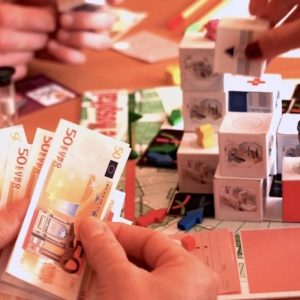
The Expansive Hospital Game (2013)
The Expansive Hospital is a board game in which players collaborate and compete to build a hospital with plastic blocks. The game design is based on research conducted with three healthcare construction projects in the Netherlands, commissioned by Pioneering. The research found that hospital design is often over schedule due to the conflicts of interests […] - Nov 12, 2013 -
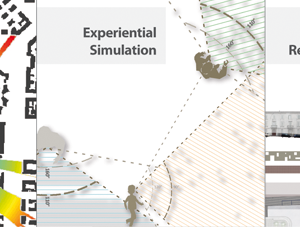
The validity of user’s activity representation
Last week I attended a conference in Milan about visualizations in Architecture. The conference showcased many objective ways to represent the user perception of space before it is built: maps, simulations, calculations, scatterplots, etc. The represented perceptions ranged from confort to privacy. My own presentation raised the issue of validity of such representations, considering the […] - Oct 7, 2013 -
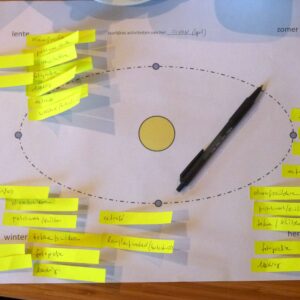 Grounding Activities is a participatory design game developed as part of a nature center project to help stakeholders speculate their future activities over a proposed architectural space. The game follows a structured process in three phases, guiding participants to explore their activities’ temporal and spatial dimensions and assess how well a proposed design meets their […] - Sep 10, 2013
Grounding Activities is a participatory design game developed as part of a nature center project to help stakeholders speculate their future activities over a proposed architectural space. The game follows a structured process in three phases, guiding participants to explore their activities’ temporal and spatial dimensions and assess how well a proposed design meets their […] - Sep 10, 2013 -

Visualization Tools for Self-Representation in Healthcare Design
Van Amstel, F.M.C; Hartman, T; Van der Voort, M; Dewulf, G.P.M.R. Visualization Tools for Self-Representation in Healthcare Design. In: Morello, E., Piga, B.E.A. (eds.). (2013). Envisioning Architecture: Design, Evaluation, Communication – Proceedings of the 11th conference of the European Architectural Envisioning Association, Milano, 25-28 September 2013. Roma: Edizioni Nuova Cultura. P 507-514 - Aug 8, 2013 -
Movies related to ethnographic user research
I’m currently conducting interviews and observations for my PhD. As I go through them, some images come to my mind: the similar situations that I saw in particular movies. I compiled a list with the movies that I watched along the years related to the task of observing and interviewing users for design purposes. The […] - Jun 9, 2013 -
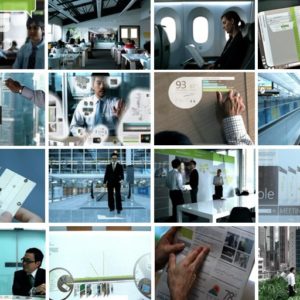
The ideology of the future in design fictions
Gonzatto, R.F; Amstel, F.M.C.van; Merkle, L.E; Hartmann, T. 2013. The ideology of the future in design fictions. Digital Creativity. Vol. 24 (1). https://doi.org/10.1080/14626268.2013.772524 - Apr 29, 2013 -
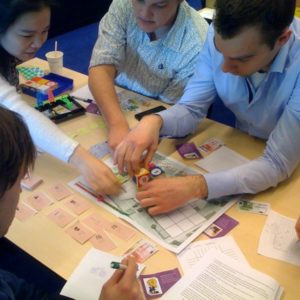
Making games to communicate research findings
After two years conducting field studies about the participation of healthcare professionals in construction projects, I decided to make a board game based on my findings. The target players are those same professionals I’m studying. The idea is that the construction and healthcare professionals can switch their roles for a while and understand their different […] - Apr 4, 2013 -
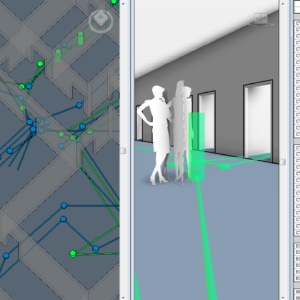
Walking paths parametric design tool (2012)
Walking Paths is an extension for Autodesk Revit, an industry standard tool for architectural design. The extension allows tracing the paths that patients, nurses, and other users should follow inside a facility. The application provides objective criteria to evaluate the work efficiency of a particular facility design. Walking_Paths [RFA] An Autodesk Revit parametric design family […] - Dec 13, 2012 -
Visualizations for Participatory Design
I made a video showing my PhD research progress so far. You can see how I video-record my workshops, analyze them, and develop new visualization tools based on my interpretation of what could be improved. - Dec 12, 2012 -
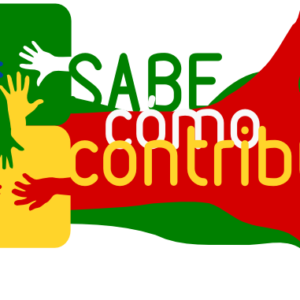
Social participation vocabulary (2012)
This was one of the projects that emerged in Corais Living Lab: a vocabulary to classify and share data across electronic public participation applications and websites. I did not organize the project but joined as a host in Corais. I really liked this project since it lays the foundation for a more democratic society in […] - Nov 24, 2012 -
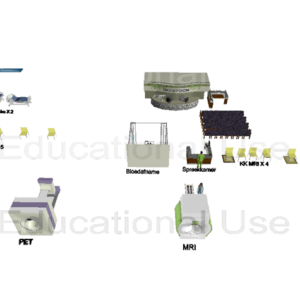
How to knit spatial layout with workflow
After realizing that the use situation is more complicated than what they thought, the managers from the CMI project organized a second user workshop to check if the current floor plan fits the workflow of scanning patients in machines such as EGG, PET-MRI, MRI, and CT. In the last workshop, a lot of time was […] - Oct 2, 2012 -
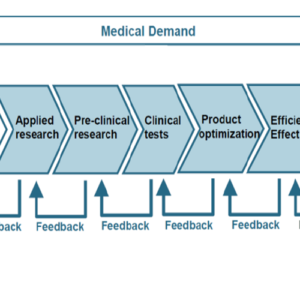
Use and design: two points of view
I’m following the CMI-NEN project in my PhD, a healthcare facility that combines research, education, and care services in one place. The project is very innovative because it links medical image research to care demand. The concept is to drive research with the actual use of diagnosing technologies, instead of just exploring what is possible […] - Jul 13, 2012 -
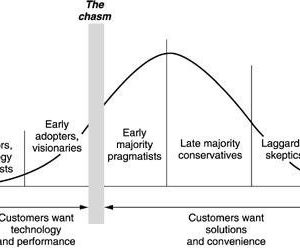
Technology Appropriation Scale
During my Masters I stumbled upon the paper [PDF] from the Abaporu Project, a project that studied mobile technology in Brazil. Instead of a traditional adoption study based on the chart above, the authors decided to go from the other way around. They didn’t tried to track to what extent a specific (foreign) technology was […] - Jun 27, 2012 -
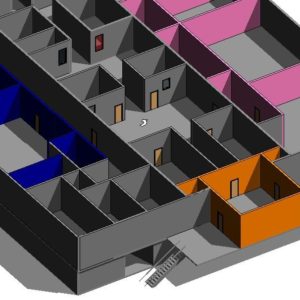
Medical Imaging Center (2011-2013)
The intervention had the goal of assisting practitioners to bridge the gap between the design activity and user activity in a Medical Imaging Center project, in the Netherlands. The center would have state of the art diagnosing machines based on techniques such as Magnetic Resonance Imaging (MRI), Positron Emission Tomography (PET-MRI), Computed Tomography (CT), and […] - Jun 14, 2012 -

When Participatory Design makes sense
In the course of writing my PhD proposal to the disciplinary council of my faculty, I had to define which kind of project could be appropriate for doing Participatory Design research. Not every project can be participatory or profit from being participatory. There are specific situations where Participatory Design makes sense, but I couldn’t find […] - Jun 4, 2012 -
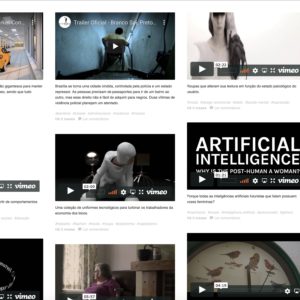
Futurologias design fiction museum
Futurologias is a virtual museum of design fiction, curated by Frederick van Amstel and Rodrigo Gonzatto since 2012. Works are selected and identified based on their respective ideology of the future. The museum already has more than 300 pieces, the largest collection of its kind in the world. Most of the stories are presented as […] - Apr 20, 2012 -
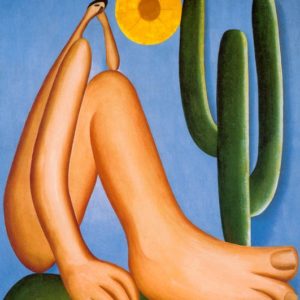
Design Livre: Cannibalistic Interaction Design
Van Amstel, Frederick M.C.; Vassão, Caio A.; Ferraz, Gonçalo B. 2012. Design Livre: Cannibalistic Interaction Design. In: Innovation in Design Education: Proceedings of the Third International Forum of Design as a Process, Turin, Italy. - Apr 9, 2012 -

Spreading participation into the routine
Participatory Design usually happens in ritualized gathering where participants enact their political positions and build things together. The workshop creates an ephemeral horizontal power structure where people from the lowest level can work with medium an top level of the hierarchy. From what I observe so far in the Healthcare Construction Industry, where I conduct […] - Mar 1, 2012 -
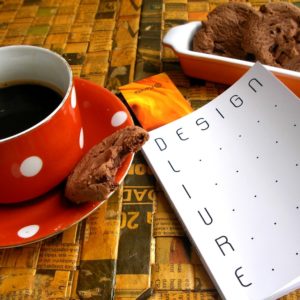 A book written by 12 people in one week using open source collaborative tools. The book’s aim is to introduce the Free Software philosophy in the Design community. I participated in helping to organize the process and designed some parts of it, like the book layout and its cover. The book is distributed as a […] - Feb 11, 2012
A book written by 12 people in one week using open source collaborative tools. The book’s aim is to introduce the Free Software philosophy in the Design community. I participated in helping to organize the process and designed some parts of it, like the book layout and its cover. The book is distributed as a […] - Feb 11, 2012 -

Interaction Design as a Cultural Project
I’ve been very lucky to attend Interaction 12 in Dublin last week. Everything was so well organized and still with a human touch. The conference allowed a lot of networking between presentations. There was large corridors and rooms for side conversations, which for me are the best part of going to conferences. On the background […] - Feb 8, 2012 -
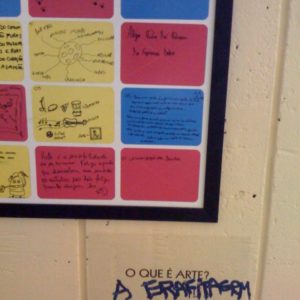
Public participation can revitalize decaying places
I’m currently on vacation in Brazil enjoying the time to think on how will I contribute to Brazilian society when I’ll be back from my PhD on Participatory Design in Netherlands. One thing that I often hear is that participation can only work in advanced democracies. It wouldn’t work in Brazil because people wouldn’t make […] - Jan 23, 2012 -
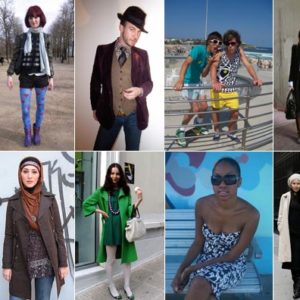
Why measuring design aesthetics?
The aestheticization of politics pioneered by fascist and populist governments is not working so effective as it was in the past. People don’t trust politicians neither the media anymore because, among other factors, they could not keep up with the diversification of identity wishes from the population. Companies, at the other hand, have been very […] - Dec 15, 2011 -
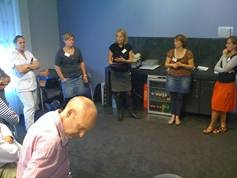
Enabling participation in healthcare construction
After conducting initial observations on two healthcare projects — a new medical image center and a hospital reallocation, I identified three shortcomings for Participatory Design in healthcare construction: lack of proper tools to collaborate over design models with non-design experts economic and political costs for scheduling meetings over reliance on consensus to move design process […] - Dec 2, 2011 -
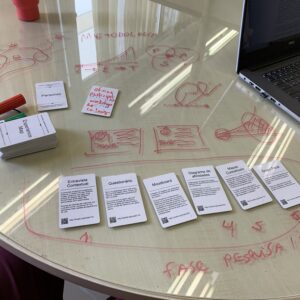 A card deck for collaborative planning user experience projects. Each card is a UX method, with the necessary inputs and the expected outputs. The cards can be organized in a linear fashion to represent the planned process. There are also cards for representing risks, expected delays, and extra human/financial resources. UX Cards enables pattern-based codesign […] - Nov 24, 2011
A card deck for collaborative planning user experience projects. Each card is a UX method, with the necessary inputs and the expected outputs. The cards can be organized in a linear fashion to represent the planned process. There are also cards for representing risks, expected delays, and extra human/financial resources. UX Cards enables pattern-based codesign […] - Nov 24, 2011 -
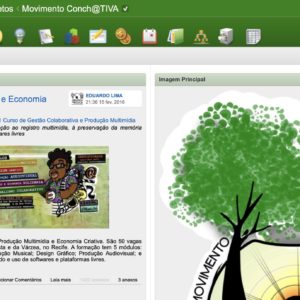 Corais was launched in 2011 as the open innovation platform of Faber-Ludens Interaction Design Institute. Since 2012, it became an independent cooperative platform for cultural producers in Brazil, maintained by Instituto Ambiente em Movimento and developed by Frederick van Amstel as an outreach activity of his academic work. An open design platform Development forked from […] - Nov 14, 2011
Corais was launched in 2011 as the open innovation platform of Faber-Ludens Interaction Design Institute. Since 2012, it became an independent cooperative platform for cultural producers in Brazil, maintained by Instituto Ambiente em Movimento and developed by Frederick van Amstel as an outreach activity of his academic work. An open design platform Development forked from […] - Nov 14, 2011 -
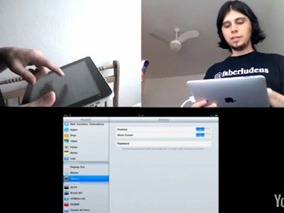 O Globo, a major newspaper in Brazil, wanted to test their new iPad app to check if it was doing good on usability. We suggested doing a benchmark against two other competitors and executing the tests not in usability laboratories, but in real use contexts. We set up a mobile lab that could capture user’s […] - Nov 14, 2011
O Globo, a major newspaper in Brazil, wanted to test their new iPad app to check if it was doing good on usability. We suggested doing a benchmark against two other competitors and executing the tests not in usability laboratories, but in real use contexts. We set up a mobile lab that could capture user’s […] - Nov 14, 2011 -

Cannibalistic Interaction Design
Last week, I was in Italy for an academic forum about Latin perspectives on Design and I presented our view from Faber-Ludens Institute. I described the context where the Institute emerged and explained our Design Livre approach for project development. Previously, I used the translation Free Design, but from now on I’ll keep the original […] - Nov 9, 2011 -
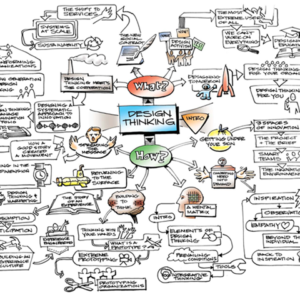
Using Activity Theory to situate Design Thinking
During my last trip to Brazil, together with Andre Malheiro, I conducted a Design Thinking workshop at Rede Globo, the producer of the famous Brazilian soap operas. I’ve been experimenting using Activity Theory as a framework for Design Thinking in these kind of workshops for a while, but after this, I got an important insight: […] - Oct 31, 2011 -
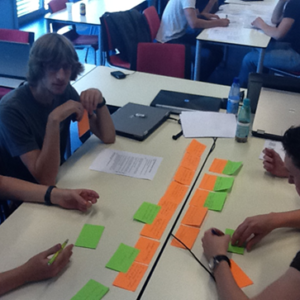
A Problem-Solving Game for Collective Creativity
I presented a drafty paper at INSCOPE, a conference about Social Innovation. My goal was to get some feedback about the theoretical framework I’m working on to link creativity to organizational change. Instead of taking creativity as an eureka moment or as talent of an individual, I take it as a social process. According to […] - Oct 27, 2011 -
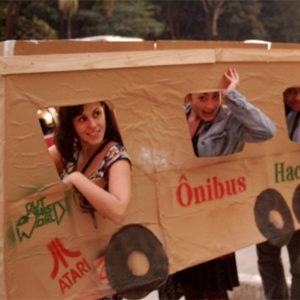 Last week, Brazilian president Dilma Rousseff signed a decree for starting the National Open Government Plan (Portuguese). The main objectives are: Increased availability of governmental activities information, including spending and performance Support for social participation in decision-making New technologies for managing and offering public services Increased public information transparency process and technologies Better accountability and […] - Sep 19, 2011
Last week, Brazilian president Dilma Rousseff signed a decree for starting the National Open Government Plan (Portuguese). The main objectives are: Increased availability of governmental activities information, including spending and performance Support for social participation in decision-making New technologies for managing and offering public services Increased public information transparency process and technologies Better accountability and […] - Sep 19, 2011 -
 I’ve been in a Summerschool last week entitled Social Shaping of Innovation (PDF), organized by the SPIRE center in Southern Denmark University. The event gathered PhD students from many countries working with social aspects in Innovation Management, Design and Engineering. For me, it was an intense and positive experience. I’ve met a lot of people […] - Aug 26, 2011
I’ve been in a Summerschool last week entitled Social Shaping of Innovation (PDF), organized by the SPIRE center in Southern Denmark University. The event gathered PhD students from many countries working with social aspects in Innovation Management, Design and Engineering. For me, it was an intense and positive experience. I’ve met a lot of people […] - Aug 26, 2011 -
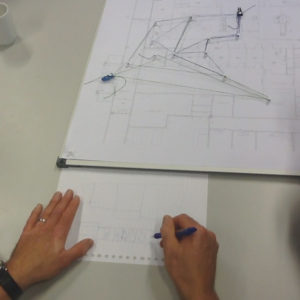
Expansive design: designing with contradictions
Designing space can contribute to organizational development if current and future activities are taken into account. This possibility is complicated by the political and methodological struggle of involving users in designing space, who are the ones carrying on those activities. Typically, users are left out of designing space for economic reasons; however, they produce space […] - Aug 22, 2011 -
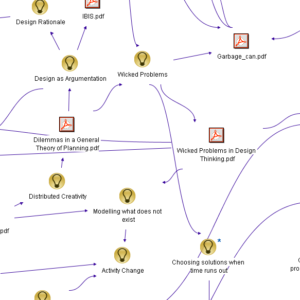
Issue-Based Information System (IBIS)
Since I started doing my PhD Research, I learnt a lot of new concepts, but I don’t like to write down everything that I find interesting during my research. I find it too boring. I prefer to rely on my memory filter; if it’s relevant, I’ll remember when needed. But, gosh, that’s not always the […] - Aug 12, 2011 -
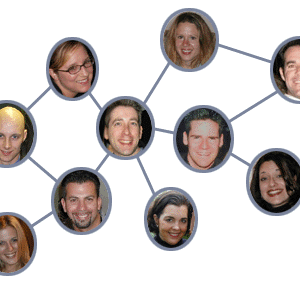
The next step for social networks: Cycles
Social networking websites offer value by mapping social relationships. As with any map, relationships are represented in a simplified way, a kind of metaphor. First was the connection, now we have the circle, and what I believe to be the next step is the cycle. These relationships are evolving as long as technology companies figure […] - Aug 4, 2011 -
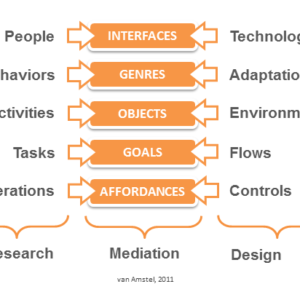
Interaction Design as Mediation
During my Master’s research, I looked for alternative views on Interaction Design that went further than User Interface Design. Most definitions say that the former is broader than the latter, but they didn’t provide clear objects to work with. David Malouf did a good job of extending Dan Saffer’s elements, but his foundations look still […] - Jul 26, 2011 -
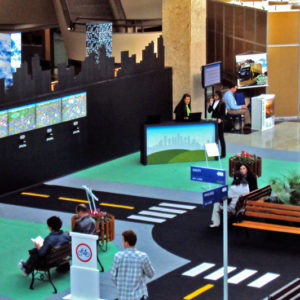 Codesign of an interactive installation for the 2nd International Innovative Cities Conference, held in Curitiba, Brazil. The main conference’s theme was about the responsibility of individual’s action on the macro scale, bringing speakers like Fritjof Capra, Steven Johnson, and Jaime Lerner to discuss new frontiers of urban innovation. The main hall of the conference had […] - Jul 22, 2011
Codesign of an interactive installation for the 2nd International Innovative Cities Conference, held in Curitiba, Brazil. The main conference’s theme was about the responsibility of individual’s action on the macro scale, bringing speakers like Fritjof Capra, Steven Johnson, and Jaime Lerner to discuss new frontiers of urban innovation. The main hall of the conference had […] - Jul 22, 2011 -
 Usability consultancy for the Infinity I-Kitchen project at Electrolux Latin America, the first touchscreen controlled fridge. The touchscreen panel offers a messages application, recipes, and photo slideshow. The project included heuristic evaluation, usability test, and emotional affect evaluation. - Jul 22, 2011
Usability consultancy for the Infinity I-Kitchen project at Electrolux Latin America, the first touchscreen controlled fridge. The touchscreen panel offers a messages application, recipes, and photo slideshow. The project included heuristic evaluation, usability test, and emotional affect evaluation. - Jul 22, 2011 -
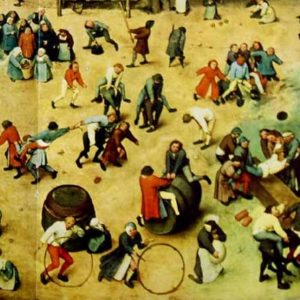
Reclaiming the cultural heritage of children’s games
Children’s games played at streets were one of the most important medium for child culture. Themes, rules and roles followed what children wanted to play. Players could change rules by agreement with other players. Names, symbols and plot were all defined by local culture. Children could play with social taboos and authorities. Immigrants brought opportunities […] - Jul 22, 2011 -
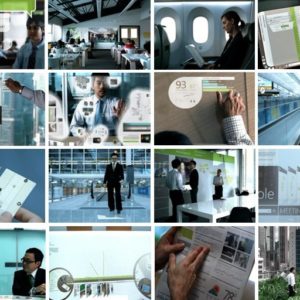
Cultural Studies of Design Fictions
Design fictions are speculative scenarios about everyday use of new technologies. They are produced mainly by companies for branding their vision of the future, exploring popular imaginary and desires. Nokia Morph (2008), for example, is a short animation that shows how nanotechnology could be applied to cellphones to make them more flexible, durable and fashionable. […] - Jul 22, 2011 -
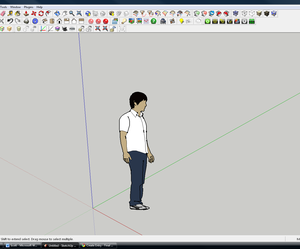
The uses of the human body in CAD
Yesterday I was in Germany for a collaborative meeting with some researchers working with computing and spation reasoning. I presented a poster outlining the challenges of my PhD research. Schloss Etelsen, the venue, couldn’t be better for reflecting about space abstract modeling. Look at the site: Coincidence or not, the 19th century castle had been […] - Jul 1, 2011 -
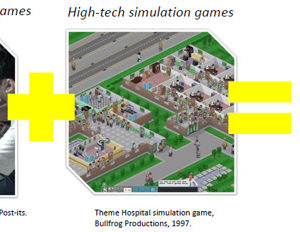
Collaborative Planning for Healthcare Environments
Abstract: The research goal is to develop tools for bridging participant’s abstraction gap within healthcare facilities projects. Tools that help participants create and manipulate representations of abstract concepts like space use and time management based on participant’s concrete experience. It’s important that these tools can be used both in group meetings and individual contexts for […] - Jul 1, 2011 -

Co-creation tools for Architecture
Today I found a very nice example of what I’m researching in my PhD program. Liz Sanders is a well know practitioner that have written mainly about using expressive tools for users to collaborate in design process. Her papers always have some colorful pictures like that: Today I discovered through a record talk she gave […] - Jun 28, 2011 -
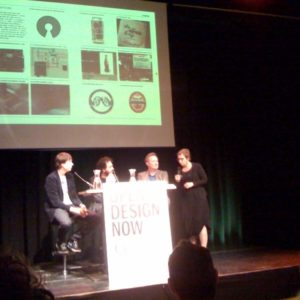
Open Design and weapons of mass destruction
Yesterday I went to the Open Design Now book launch in Amsterdam. People were so excited with the possibilities of openness, that few mentioned potential drawbacks of it. The only potential drawback discussed there was about the possibilities of not making money from it. It’s true that Open Design doesn’t have clear business models right […] - Jun 9, 2011 -
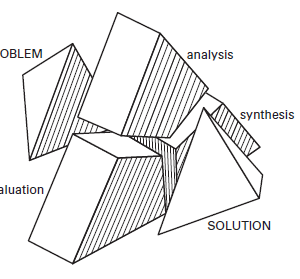 Both Design Thinking business discourse and research relies heavily on the problem-solution dichotomy for explaining what design is. The emphasis is given to go beyond the common-sense notion of design as form shaping and open new spaces for design in science and business. The aesthetics of form shaping is not entirely rejected in this turn, but reduced to an aspect […] - May 13, 2011
Both Design Thinking business discourse and research relies heavily on the problem-solution dichotomy for explaining what design is. The emphasis is given to go beyond the common-sense notion of design as form shaping and open new spaces for design in science and business. The aesthetics of form shaping is not entirely rejected in this turn, but reduced to an aspect […] - May 13, 2011 -
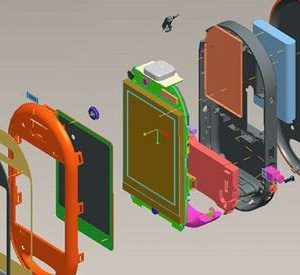
Open Design and Free Design are not the same
Design is a messy word with many different meanings. When people wants to stay focused on a practical matter, they add a noun to it: Graphic Design, Furniture Design. When they want to qualify Design, for instance, they use an adjective: Industrial Design, Good Design. It´s a simple statement that an adjective can change the […] - May 10, 2011 -
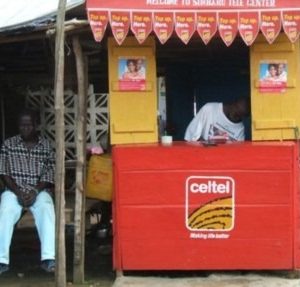
Designer’s role in a Free Design world
At the beginning of the year, I gave a talk with my friend Gonçalo Ferraz at a Design student conference about the future role of the professional designer. We envisioned a big leap in design practice, moving from designing products to designing processes. Going further than Service Design and Co-design approaches, we expect that people […] - May 2, 2011 -
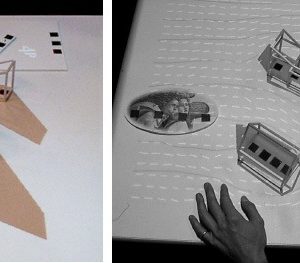
Tools for concrete collaboration
The traditional free meeting model for participation where supposedly every stakeholder can talk about their concerns often doesn’t satisfy the participants, for many reasons. The consensus is built up on participant’s fatigue; when one give up discussing a project stake not because she start to agree, but because she’s too tired to discuss it. This […] - Apr 29, 2011 -
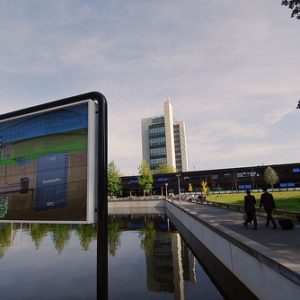
First draft for my PhD Research
Two weeks ago I moved from Curitiba, Brazil, to Enschede, Netherlands, in order to conduct a PhD Research at the University of Twente. I’m now working at the Construction Management & Engineering department. It’s a whole new experience for me: a new country, a new language, and a new research area, of course. Our department […] - Apr 27, 2011 -
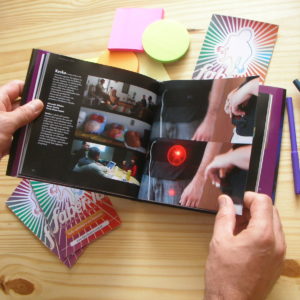
Almanaque 2010 – Faber-Ludens Interaction Design Yearbook
The yearbook showcase Interaction Design student work from Faber-Ludens Institute, Brazil. Projects range from desktop applications to public services, all designed with the human being in mind. Get a look at inspiring new ideas for interacting with people through old and new technology! Language: Portuguese / English Editor: Frederick van Amstel The print version of […] - Feb 15, 2011 -
Free Design at Faber-Ludens Institute
Free Software communities have developed very efficient methods and tools to share programming code, however, their user interfaces are often difficult to use for people that are aside from this process. Nobody seems to know how to include Interaction Design in Free Software projects, since their development dynamics are very different. Interaction Design on […] - Feb 14, 2011 -
 Tongos is a series of educational robot toys meant to support basic literacy created by Cassiano Azevedo during his studies at Faber-Ludens Interaction Design Institute. The toy stimulates children to associate letters and their combinations with sounds. Each robot can read a combination of images and letters: The toy is activated when children put letters […] - Dec 5, 2010
Tongos is a series of educational robot toys meant to support basic literacy created by Cassiano Azevedo during his studies at Faber-Ludens Interaction Design Institute. The toy stimulates children to associate letters and their combinations with sounds. Each robot can read a combination of images and letters: The toy is activated when children put letters […] - Dec 5, 2010 -
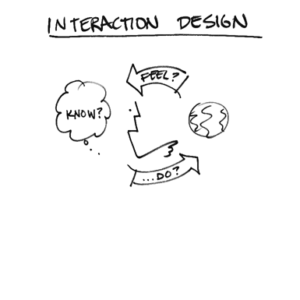
Interaction (Design) is a complex phenomenon
A common reference for defining Interaction Design are Bill Verplank’s drawings, one of the creators of the noun. Bill defines Interaction Design as a question threefolded: How do you do? What sort of ways do you affect the world: poke it, manipulate it, sit on it? How do you feel? What do you sense of […] - Oct 28, 2010 -
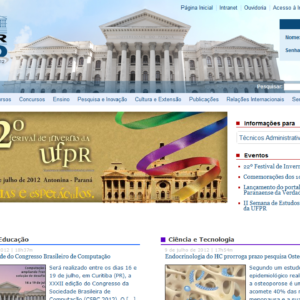
UFPR University Website (2010)
The website of a major public university, with hundreds of pages and departments competing for a pixel at the homepage. It took 3 years to redesign it from the ground up. The University had to assemble a team to develop and manage it internally. My role was to train and guide this team to achieve […] - Sep 11, 2010 -
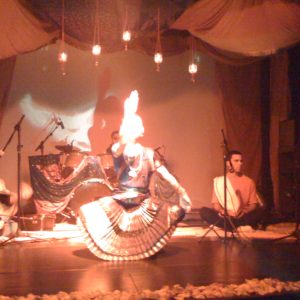
Bharatanatyam with projection mapping (2010)
Projection mapping with a virtual trace of the dancer, with colors and tones changing according to the music. The show led by Caminho Vaikuntha band aimed to present a fusion of Hindustani music and western rock. The projection mapping represented the encounter of the two worlds in the body of the dancer. The projection mapping […] - Aug 24, 2010 -
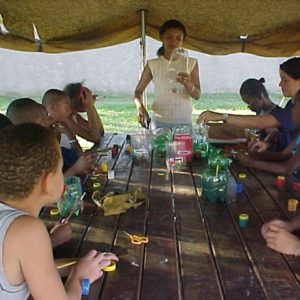
Toy Hack for opening the cultural black box
Last saturday, I organized a Toy Hack workshop at the brazilian national design students meetup with the purpose of invinting young designers to open the black box of electronic products, mix it’s components and see what happens. The new frankentoys created by the participants are shown in this video (portuguese): Industrial Designers are commonly not […] - Jul 20, 2010 -
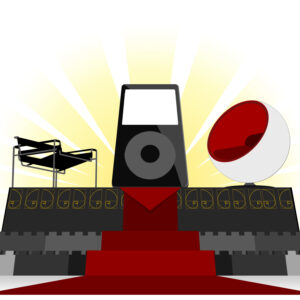
The Church of the Divine Design (2010)
The Church of the Divine Design is a provocative design fiction project developed at Faber-Ludens Institute for Interaction Design. This initiative humorously critiques and explores the role of design and designers in contemporary society by parodying the rise of Protestant work ethic and corporativism in Brazilian design practice. It seeks to engage the public in […] - Jul 11, 2010 -
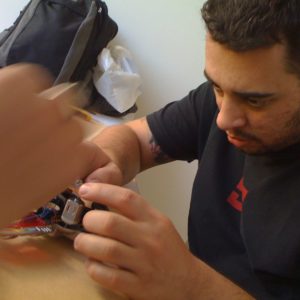
Communal virtualities and complicated pleasures
At the beginning of the Internet, we spoke a lot about virtual communities. We believed that we could create new worlds without borders and conflicts, driven by the information flow and organized by explicit interaction rules. The more the network becomes popular, the more the cyber-utopia gets sallow. What people wants is not information but […] - Jul 9, 2010 -

Trends, cliches and cultural reproduction in Design
Design is sometimes used as synonymous with innovation, creativity, innovation, cutting edge. But how much design is able to bring the new? The society fears and rejects movements that propose radical changes, such as the Landless Movement, hackerism and Punk, but deify changes proposed by design because this changes do not threaten the status quo, […] - Jul 9, 2010 -
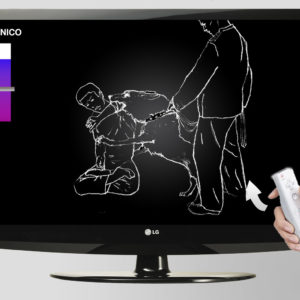
Critical games to reflect on violence
Often, videogames are considered the cause of inadequate violent acts. Traditional media prefer to find an easy culprit instead of discussing the broader problem: the origins of urban violence. The gamer that enacts an inadequate violent act would do it by the influence of videogames. To avoid this behavior, the gamer should not be exposed […] - Jul 7, 2010 -
In my Interaction Design Foundations course, I explain to students that tangible interfaces are becoming widespread because they explore the human body as an input device. This makes the interaction more sociable and affective. In one class, I brought a Dance Dance Revolution pad for our students to experiment with and they took it to […] - Jul 7, 2010
-
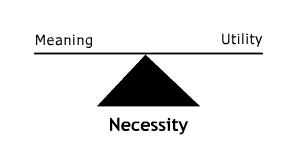
Customer necessity is the mother of invention
The first thing to do when starting a project is defining its goals. Sometimes, the goal can be broken down in sub-goals, but one of them must prevail and, generally, this goal accounts for company needs, not customer needs. For example, the overused goal “increase customer loyalty” emerges from the company need of retaining current […] - Jul 7, 2010 -
From Interfaces to Interactions: Participatory Design of the BrOffice.org Portal
Abstract The complexity of communication processes mediated by technology has attracted the attention of several areas. In a pragmatic perspective, Interaction Design strives for designing these medias for a particular community, however this process occurs within a political scenario of cultural conflicts. The option of participatory design advocates the individual´s autonomy to develop social uses […] - Jul 7, 2010 -
After blogging for 6 years in portuguese on Usabilidoido, now I start to talk with the international community. - Jul 7, 2010
-
Power over Mediated Agency and its Ethical Implications for Interaction Design
AbstractThere is little discussion about power within Interaction Design field. To call attention to this issue, we present a model for discussing conflicts that arises at the human-artifact interface. We argue that artifacts support human behavior by providing adaptations, but these adaptations can expand or restrict human actions. Human action cannot be fully controlled by […] - Jul 7, 2010 -
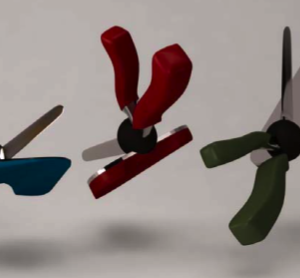 Regular discipline – 24 hours – post-graduate program in Interior Design – Sustentare Business School Three Cognitive Psychology theories are presented: Information Processing, Activity Theory and Embodied Cognition. The first one show students how the mind works, the second one helps working with social constrains and the third one accounts for affect and emotions. For […] - May 12, 2010
Regular discipline – 24 hours – post-graduate program in Interior Design – Sustentare Business School Three Cognitive Psychology theories are presented: Information Processing, Activity Theory and Embodied Cognition. The first one show students how the mind works, the second one helps working with social constrains and the third one accounts for affect and emotions. For […] - May 12, 2010 -
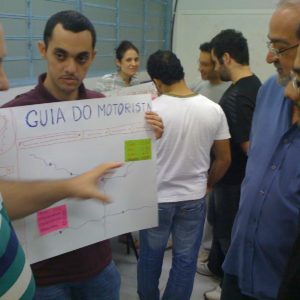 Regular course – 30 hours – post-graduate program in Web Development – UEM. This course is a Design introduction for programmers. Design is presented in a practical manner in order to show how it´s methods can help the team collaborate to achieve the best Web user experience. Each student group had to create a Web […] - Apr 10, 2010
Regular course – 30 hours – post-graduate program in Web Development – UEM. This course is a Design introduction for programmers. Design is presented in a practical manner in order to show how it´s methods can help the team collaborate to achieve the best Web user experience. Each student group had to create a Web […] - Apr 10, 2010 -
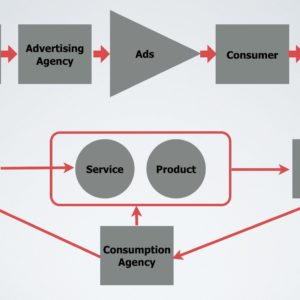 Consumption Agency is a speculative design project aimed at imagining what communism inside capitalism would look like. Roughly speaking, the business model is a combination of an advertising agency with a bank. Why so? Currently, goods and services are pushed to consumers, who have to choose and pay for each offer. Banks help consumers in […] - Jan 2, 2010
Consumption Agency is a speculative design project aimed at imagining what communism inside capitalism would look like. Roughly speaking, the business model is a combination of an advertising agency with a bank. Why so? Currently, goods and services are pushed to consumers, who have to choose and pay for each offer. Banks help consumers in […] - Jan 2, 2010 -
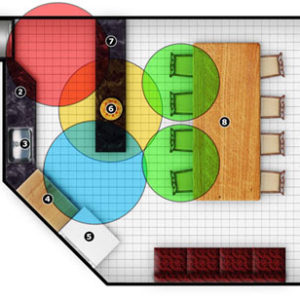
Interaction Design Foundations
Regular discipline – 40 hours – post-graduate program in Interaction Design – Faber-Ludens Interaction Design Institute. The goal of this course is to engage students into deep reflection about the possibilities of Interaction Design. The biggest challenge is to make them perceive that Interaction Design is not tied to any particular technology. It does what […] - Jul 9, 2009 -
Usability and User Interfaces Ergonomics
Optional discipline – 30 hours – Undergrad Course on Design – Unisul This was the first discipline in the optional Digital Design emphasis. The Bachelor encompass all the areas of Design, but in the last year they can get emphasis on one area. In this discipline, they have to perceive that their generic methodologies could […] - Jul 7, 2009 -
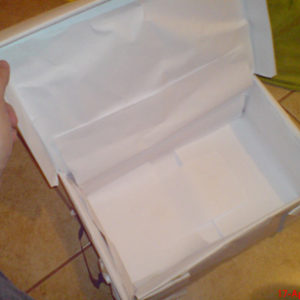 Regular discipline – 24 hours – post-graduate program in Interaction Design – Faber-Ludens Interaction Design Institute. Technology can be used for social control or for social freedom. The main goal of this discipline was to demonstrate the social impact of technology and to inspire designers to be conscious of it´s accountability. Adopting the Social Design […] - Jul 4, 2009
Regular discipline – 24 hours – post-graduate program in Interaction Design – Faber-Ludens Interaction Design Institute. Technology can be used for social control or for social freedom. The main goal of this discipline was to demonstrate the social impact of technology and to inspire designers to be conscious of it´s accountability. Adopting the Social Design […] - Jul 4, 2009 -
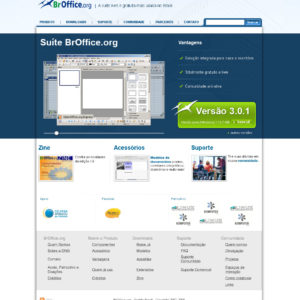 The website of the Brazilian OpenOffice.org community was a major hub for free software activism in Brazil. As a case-study for my masters, I helped the community redesigning their website through experimental participatory design techniques. The community was dispersed across the country in a way that face-to-face workshops would be impossible. I had to develop […] - Nov 24, 2008
The website of the Brazilian OpenOffice.org community was a major hub for free software activism in Brazil. As a case-study for my masters, I helped the community redesigning their website through experimental participatory design techniques. The community was dispersed across the country in a way that face-to-face workshops would be impossible. I had to develop […] - Nov 24, 2008 -
Optional discipline – 30 hours – Undergrad Course on Design – Unisul At the last discipline of the Digital Design emphasis, students has to learn how to develop a viable product for the local market. They has to prove that their projects would be feasible culturally, economically and technologically. Project management, business plan and technology […] - Jul 12, 2008
-
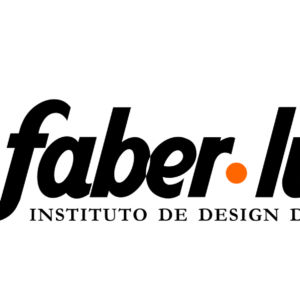
Faber-Ludens Interaction Design Institute (2007-2012)
Inspired by European Design schools that embraced the Digital Culture, like Ivrea Institute and its successor, Copenhagen Institute for Interaction Design (cIId), a multidisciplinary group founded Faber-Ludens Institute for Interaction Design in Curitiba, in 2007. As a non-profit organization, Faber-Ludens had a democratic (sometimes anarchic) governance model, which favored intense collaboration between its members and […] - Mar 26, 2007 -

Graphic Animation for the Internet
Regular discipline – 80 hours – Undergrad Course on Web Design – Opet This was the first contact students had with the Macromedia Flash software, an major tool for web designers. In order to create a ludic context for learning software operations, students were assigned to produce a short animation movie. Before using Flash, they […] - Jul 7, 2006 -
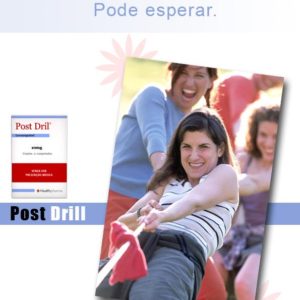 Regular discipline – 60 hours – Undergrad Course on Web Design – Opet The Web Design Course at this University was considered a Communication Course, so this discipline was fundamental to them. The first discussion was about linguistic bias against people that didn’t have concluded their basic studies. In Brazil, there are many people that […] - Jul 7, 2006
Regular discipline – 60 hours – Undergrad Course on Web Design – Opet The Web Design Course at this University was considered a Communication Course, so this discipline was fundamental to them. The first discussion was about linguistic bias against people that didn’t have concluded their basic studies. In Brazil, there are many people that […] - Jul 7, 2006 -
Literary Analysis and Expression
Regular discipline – 30 hours – Undergrad Course on Design – Unisul A writing course for designers. Most students didn’t like to write, so this was a tough discipline. In order to motivate students, they were challenged to start a blog about any professional topic they like. This was the first blogging experience for some […] - Jan 7, 2006 -
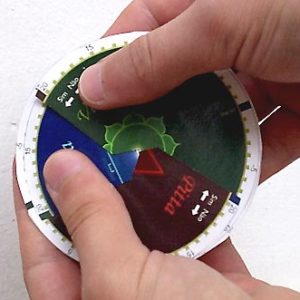 A body-composition test based on traditional Indian medicine, Ayurveda. The disc is used to mark the responses of the person to the questionnaire, giving immediate visual feedback on the predominance of one dosha over another. This was created for an Indian Restaurant in Brazil who served dishes tailored to the ayurvedic body types. An interactive […] - Nov 24, 2005
A body-composition test based on traditional Indian medicine, Ayurveda. The disc is used to mark the responses of the person to the questionnaire, giving immediate visual feedback on the predominance of one dosha over another. This was created for an Indian Restaurant in Brazil who served dishes tailored to the ayurvedic body types. An interactive […] - Nov 24, 2005 -
 One of the first websites I made in my career was for an advertising company. Every section has a funny animation with a baby that represents the audience for the ads produced by the company. It won the Construction New Media Award 2003 in Student category. The website is archived here. - Jul 11, 2003
One of the first websites I made in my career was for an advertising company. Every section has a funny animation with a baby that represents the audience for the ads produced by the company. It won the Construction New Media Award 2003 in Student category. The website is archived here. - Jul 11, 2003 -
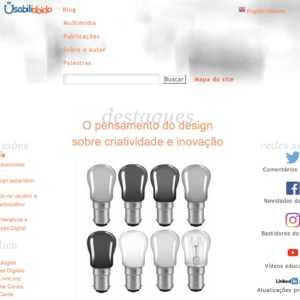 Usabilidoido is a cross-media Science dissemination project that includes a weblog, a podcast, a Twitter account, a Slideshare gallery, an Instagram account, a Facebook page, and a Youtube channel. Topics range from usability, interaction design, experience design, participatory design, and other issues linked to Frederick van Amstel’s research and practice. Launched in 2003, Usabilidoido is known […] - Apr 18, 2003
Usabilidoido is a cross-media Science dissemination project that includes a weblog, a podcast, a Twitter account, a Slideshare gallery, an Instagram account, a Facebook page, and a Youtube channel. Topics range from usability, interaction design, experience design, participatory design, and other issues linked to Frederick van Amstel’s research and practice. Launched in 2003, Usabilidoido is known […] - Apr 18, 2003 -
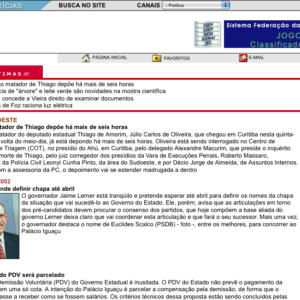 This was my first job: webmaster and webdesigner for a regional news agency in Brazil’s South. I worked there as an internship during my bachelor’s in journalism. I assisted the journalists to make the transition from writing for press to write multimedia stories on the web. The experience in this agency let me realize I […] - Nov 24, 2002
This was my first job: webmaster and webdesigner for a regional news agency in Brazil’s South. I worked there as an internship during my bachelor’s in journalism. I assisted the journalists to make the transition from writing for press to write multimedia stories on the web. The experience in this agency let me realize I […] - Nov 24, 2002
Frederick van Amstel
Design researcher & educator
